

Contact Information:
Assistant Professor Vorapat Inkarojrit, Ph.D.
Assistant President for Special Affairs
Chulalongkorn University
254 Phaya Thai Road, Pathumwan, Bangkok 10330
THAILAND
Email: Vorapat.i@chula.ac.th
Tel: +66 2 218 3341





Contact Information:
Assistant Professor Vorapat Inkarojrit, Ph.D.
Assistant President for Special Affairs
Chulalongkorn University
254 Phaya Thai Road, Pathumwan, Bangkok 10330
THAILAND
Email: Vorapat.i@chula.ac.th
Tel: +66 2 218 3341


Chulalongkorn University has actively engaged with the Sustainable Development Goals (SDGs), which were officially adopted by the United Nations in 2015 as a universal call to action to end poverty and restore the environment to improve people’s lives on the planet.
Chulalongkorn University’s dedication to addressing global challenges and contributing to a better future is commendable. The university has continued to make efforts towards achieving the SDGs despite the unprecedented challenges posed by the COVID-19 pandemic, digital transformation, and environmental events of recent years. This resilience and adaptability demonstrate the university’s high level of commitment to making a positive impact on society and the world. It is also notable that the university has received recognition for its efforts connected to various objectives of the SDGs such as quality education, economic growth, social inequality, innovation, and sustainable communities. The university does not work only within the Thai society but also to plans to collaborate more with other regional and global partners.
Being ranked no. 1 in Thailand by both QS (Quacquarelli Symonds) and THE (Times Higher Education) World University Rankings 2024 is a testament to the university’s excellence in education and research. The university is also recognized globally in the THE Impact Ranking, which focuses on SDG nos. 4, 8, 9, 15, 16 and 17.
Chulalongkorn University continues to work towards achievement of its key mission to become a “Research University That Teaches,” with an emphasis on entrepreneurship development, critical thinking, innovative research, and sustainable communities, all of which aligns well with the SDGs and the evolving needs for future leaders of the 21st century.
This year’s Sustainability Report showcases the university’s ongoing efforts and achievements in supporting the UN’s Global Goals. Chulalongkorn University hopes that such progress and initiatives can help inspire others to take action and contribute to a more sustainable and equitable world.
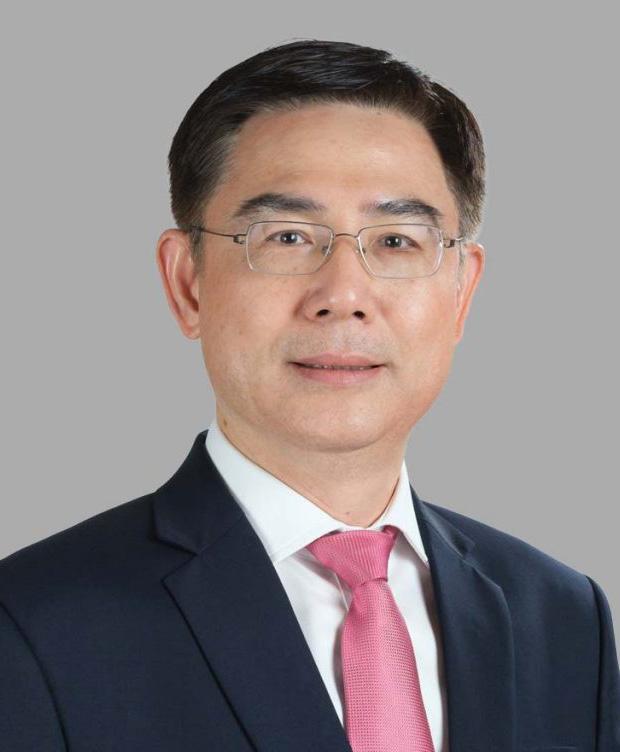
 Professor Bundhit Eua-arporn, Ph.D.
Professor Bundhit Eua-arporn, Ph.D.


Chulalongkorn University was founded in March 1917 by King Vajiravudh (King Rama VI) as a tribute to his father, King Chulalongkorn (King Rama V). As Thailand’s leading academic institution, Chulalongkorn University has since committed itself to contributing to the development of Thailand’s national higher education by disseminating academic knowledge and know-how, and empowering all students with the skills they will need to serve society after graduation.
The university focuses on three key missions:
• Preparing future leaders with creativity, analytical thinking, and morality;
• Developing impactful research and innovations; and
• Promoting sustainable development for society
Located in the central district of Bangkok, the university currently has 19 faculties; 24 schools, colleges, and institutes; and 7,996 faculty members. According to the Office of Strategy Management and Budgeting, in the 2022 Academic Year, there were over 41,262 students enrolled in the university. This included 28,457 Bachelor’s degree students, 8,855 who were working towards a Master’s degree, 3,059 Doctoral students, 829 higher graduate
students, and 62 studying for a Diploma or Graduate Diploma. Among this student population, over 1,300 were international students who had come to Chulalongkorn University from around the world.
The university recognizes the growing importance of innovation and research for sustainable communities. As a result, during the 2020-2023 academic years, Chulalongkorn University focused its research funds on sustainability-related projects. In 2022 alone, there were more than 1,200 projects which promote the SDG Goals.
This year the university has also been recognized by the QS World University Rankings 2024; Chulalongkorn University is ranked 211th among nearly 3,000 universities worldwide. Such recognition reflects Chulalongkorn University’s ongoing development as a world-class university in terms of SDG Impact.
Chulalongkorn University constantly works towards carrying out its mission as a “Research University That Teaches” by focusing on creating knowledge and developing innovations to improve quality of life for the Thai people as well as the broader global community through sustainable development.
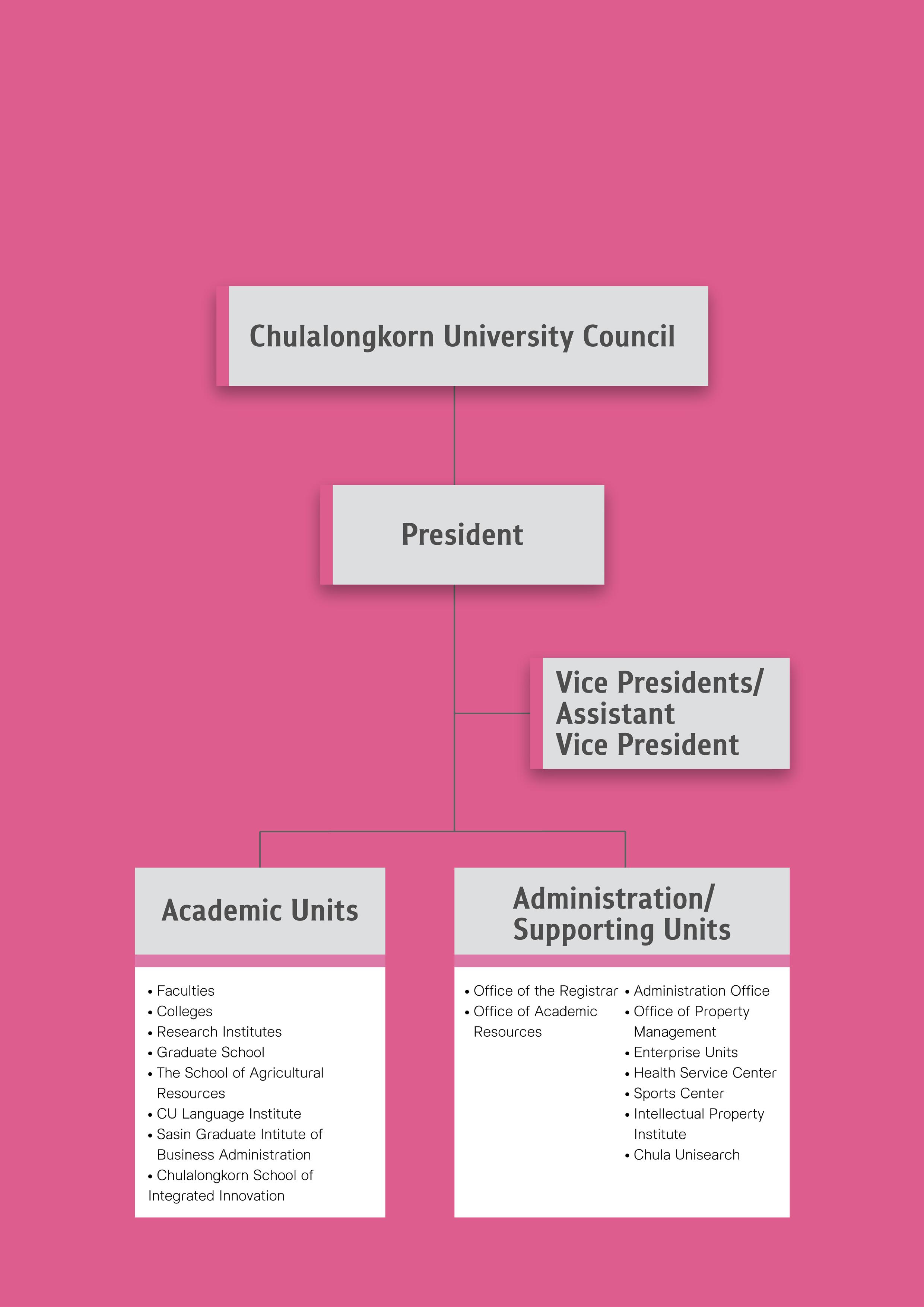


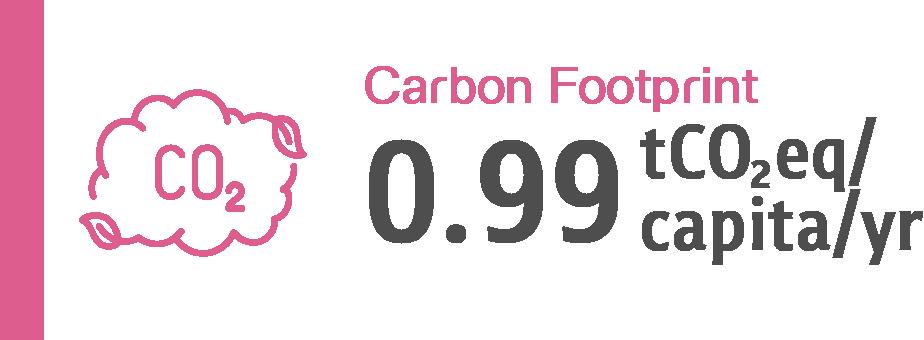



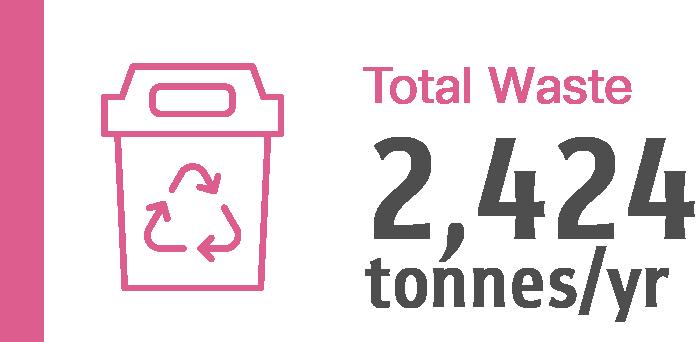

In the 2022-2023 academic year, Chulalongkorn University continued its commitment to sustainability through the CU Global Challenge, which is an initiative that brings together students, staff, and faculty to make a positive impact on society. During this period, the project expanded its reach to the Saraburi province, where students engaged in rice farming activities aimed at enhancing food security within the Saraburi campus area. Moreover, the CU Volunteer Hub, comprising both Thai and international student volunteers, supported by the Student Affairs Office, played an essential role in collaborating with local communities to develop better understanding of local lifestyles and rice farming, and undertaking tree-planting activities in the Saraburi region. Chulalongkorn University’s overarching goal is to foster international collaboration in activities that create sustainable and lasting positive impacts on communities.
Furthermore, Chulalongkorn University partnered with Universiti Sains Malaysia to establish the SDG Integrated Project and Young Leader Exchange program. This initiative involves student leaders from the CU Volunteer Hub and dormitory leaders, and focuses on promoting sustainability within the university by developing a bicycle infrastructure and engaging with surrounding communities to improve the quality of life for local residents. These initiatives are set to continue into the 2023-2024 academic year.
In addition, Chulalongkorn University recognizes the importance of creating a shared understanding among its staff regarding the United Nations’ 17 Sustainable Development Goals (SDGs). To address this, the university initiated the Chula SDG: Beyond Leading Change project during the 2022-2023 academic year. The project’s objective is to build teams capable of inspiring staff to develop projects that contribute to sustainable development. The goal is to empower staff with the knowledge and skills needed to foster sustainable development and promote the long-term well-being of both the university and society. In September 2022, Chulalongkorn University made a significant commitment by declaring its intention to reduce greenhouse gas emissions. The primary objectives are to achieve “Carbon Neutrality” by 2040, which means offsetting carbon dioxide (CO2) emissions by planting trees or through other methods, and reaching “Net Zero Greenhouse Gas Emissions” by 2050. This declaration was made during the Chula Sustainability Fest 2022, which took place from September 2nd to 4th, 2022 at the Chulalongkorn University Centenary Park. The event served as a platform for knowledge exchange, inspiration, and developing awareness of the importance of sustainable living. It was coorganized by the Office of Physical Resources Management together with the Center for Safety, Health and Environment of Chulalongkorn University (SHECU), the Office of Student Affairs, Communication Center, and partner networks.
Chulalongkorn University remains steadfast in its commitment to these ambitious sustainability and development goals, aiming to make a positive and lasting impact on the community, environment, and society as a whole.
This is the sixth sustainability report to be published by the university. Covered within this report are the projects

Prof. Narin Hiransuthikul, M.D., Ph.D. Vice President for Strategic Monitoring and Assessment, Planning, Budgeting and Wellbeing implemented in 2022-2023. The reporting encompasses all units of Chulalongkorn University, except the Chulalongkorn University Demonstration Primary School, Chulalongkorn University Demonstration Secondary School, and the King Chulalongkorn Memorial Hospital.
Professor Narin Hiransuthikul, M.D., Ph.D.
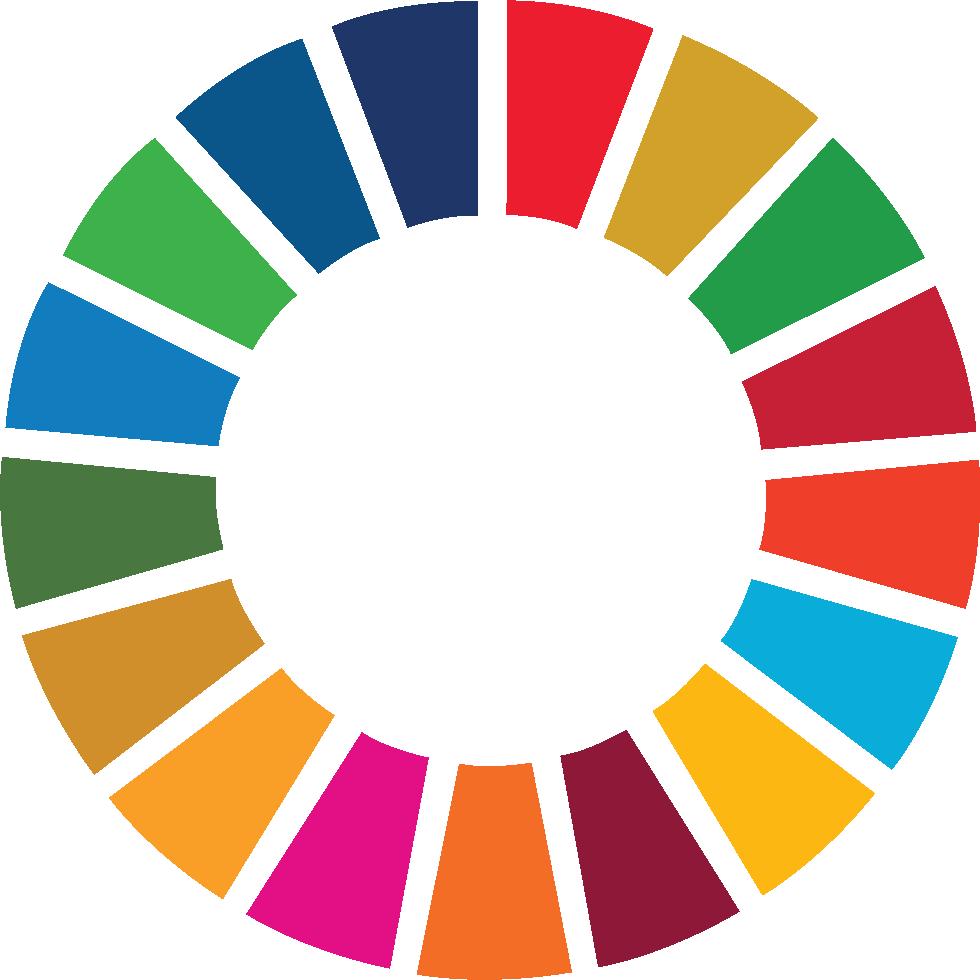
The General Education Center at Chulalongkorn University, also known as GenEd Chula, is committed to the development and promotion of general education and lifelong learning initiatives that align with the United Nations Sustainable Development Goals (SDGs). GenEd Chula offers a diverse range of courses and activities aimed at fostering sustainable development and enhancing the quality of education.
GenEd Chula has structured its courses into seven groups covering various aspects of sustainable development, including global leadership, community engagement, understanding Thai culture, innovation for rural development, royal teachings, education for sustainable development, and agricultural natural resources and environmental management.
GenEd Chula has adopted blended learning approaches to enhance learning flexibility. Among a number of initiatives, GenEd Chula established the Chula Neuron platform for online courses, including partnerships with various organizations, which enables learners to acquire credits transferable to Chulalongkorn University degree programs. These programs are designed to cater to students, alumni,
staff, school students, and the general public.
The listed courses exemplify the university’s commitment to sustainable development and SDGs, and includes courses like “Introduction to Sustainable Development,” “Innovation for Sustainable Rural Development,” “King Bhumibol’s Royal Teachings,” “Education for Sustainable Development,” and “Agricultural Natural Resources and Environmental Management.” These courses cover a wide range of topics, from the fundamentals of sustainable development to innovative solutions for rural development and the teachings of King Bhumibol, all aimed at community development. The focus is on developing a global mindset, enhancing understanding of emerging issues, promoting sustainable development alternatives, and nurturing active citizens with democratic values to transform and develop sustainable societies in line with the SDGs.
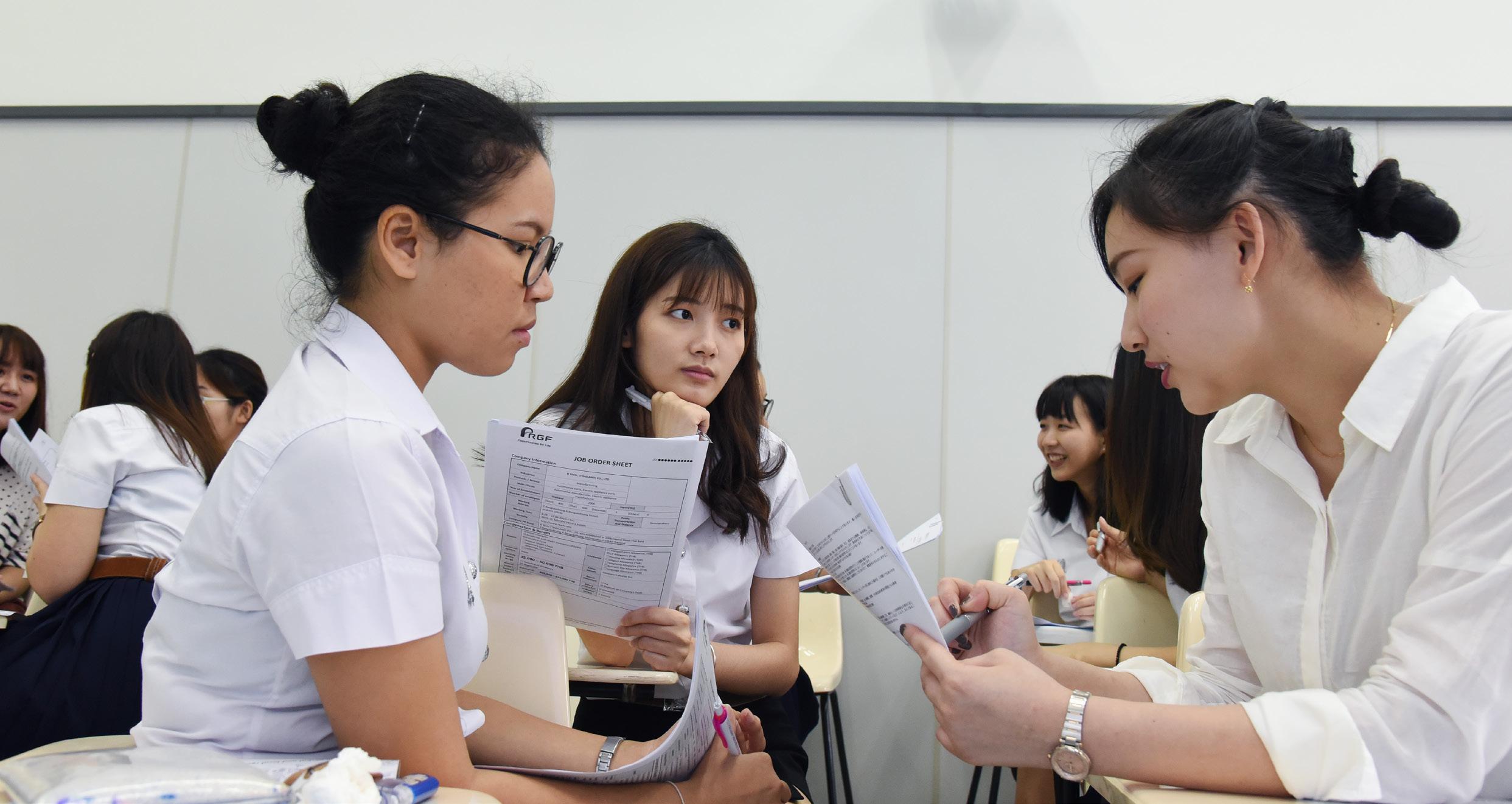
Since the 2020 fiscal year, Chulalongkorn University has implemented a research and development management strategy with clear plans to enhance human resources and reduce budget redundancy in support of innovative research and development activities led by university staff. Additionally, access to resources of partner research organizations both within and outside of the country has been revitalized.
In the 2022 fiscal year, Chulalongkorn University Council introduced an essential policy intended to move the university forward as a leader in research with three primary directions: high Impact research, research focused on creating practical innovations, and research aimed at revolutionizing teaching through originality.
The “high Impact” research emphasizes dedicated faculty units or specialist centers within the university, with autonomy to advance research strategies in the Science of Health, Technology, Social Sciences, and Humanities, with the aim of producing original research that meets international standards and is published in internationally recognized academic journals,.
As of September 2023, Chulalongkorn University had formed 218 research groups or specialist centers with the ability to cover the four branches of science: Health Sciences, Technology, Social Sciences, and Humanities. The numerous contributions of these research groups and specialist centers align with the Sustainable Development Goals (SDGs).
Under the research strategy, a mechanism called Research and Innovation Platforms (RIIP) has been established to expand the impact of research. These platforms are oriented towards key beneficiary groups; they have been set up with initial technology readiness levels (TRLs) at stages 4-5, and their outputs are evaluated in terms of Social Return on Investment (SROI). The average social return for these projects is 1.38, with an average 3-year potential SROI of 2.97.
The SROI evaluation of these projects supported by the Research and Innovation Platforms (RIIPs) does not aim to assess the potential of research and innovation outcomes for real-sector impact. Instead, it focuses on measuring outcomes to enhance the University’s research and innovation capacity for sustainable development.
In the 2024 fiscal year, the research and innovation platform’s mechanism will be aligned with the Research Pathway tool, which will be an integral part of the university’s research development efforts. The tool’s methodology is being adapted for assessing SDG-aligned research impacts, including ESG-ROI, Sustainability Evaluation, and System Evaluation.
This comprehensive strategy places Chulalongkorn University at the forefront of research and innovation, contributing to both the academic community and sustainable development initiatives in various fields.
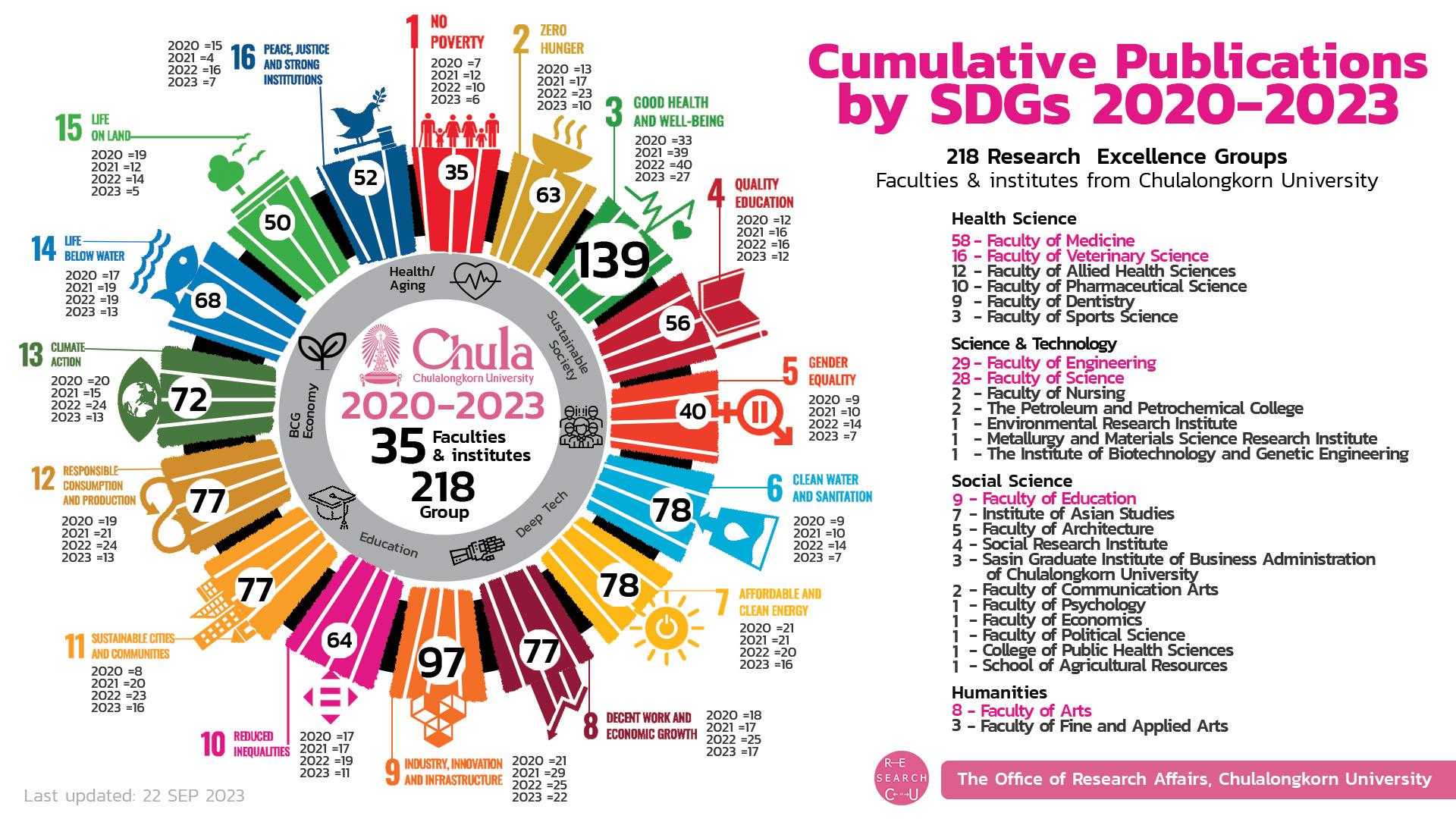
The capacity building program has been recognized as a process of strengthening stakeholders’ skills. For students and academic staff, necessary skills are embedded within coursework and extra-curricular activities. Specific Sustainable Development Goals (SDGs) are emphasized based on areas of expertise in related academic programs. For non-academic staff, the crucial elements of the process comprise data collection and analysis, policy framework, governance, and promotion of action as well as inclusion of SDGs. Realizing the importance of capacity building, the Chulalongkorn University Sustainability Taskforce and the Office of Human Resource Management (HRM) teamed up to develop the program, which was first launched in August 2021
As education for sustainable development demands a profound change in paradigms, the underlying principle for the program was developed based on reflective practices, project-based learning, and the acquisition of skills and tools that will allow the participants to develop their own sustainability philosophies. In project-based learning, the student starts with a real-world problem, researches the issue, investigates different perspectives, explores solutions from a variety of angles, and develops a comprehensive plan to solve the problem. Furthermore, collaboration with community members and sharing of the final product with that community and broader audiences is encouraged. The final program consists of three modules. The first aims to provide general knowledge about SDGs and raise awareness of local and global challenges; in pursuit of this aim, students are introduced to examples of current campus initiatives. The second module focuses on the design thinking process, in which participants are asked to empathize, define, and
ideate potential solutions to sustainability problems. The last module utilizes the project-based leaning approach, in which skills are developed through engaging projects based on real-world problems.
Due to the COVID-19 outbreak, at the program’s inception, the first and second modules were offered as online courses and consulting sessions. The third module, however, comprised face-to-face activities where participants were divided into groups of 6-8 people. Each group was asked to think about a real-world problem on campus, to pair it with one of the 17 SDGs, and then to come up with a pilot project that would help solve the problem. Thus far, 70 staff from various units across campus have completed the program. Although the project period was short (~3 months) and only a limited numbers of SDGs were explored, participants were given opportunity to gain experience and practice their skills related to researching problems in relation to SDGs, data collection and analysis, and to propose solutions with real-world limitations. In addition, participants were equipped with competencies that will be required in the future, including social competencies, methodological competencies, personal competencies, and domain competencies. It is expected that the interplay of these key competencies will not only enable the supporting staff to solve sustainability problems in their daily operational practices but also to raise levels of productivity and create healthier and happier working environments.

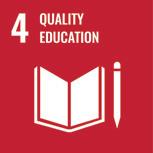
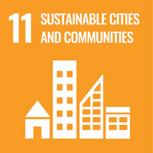
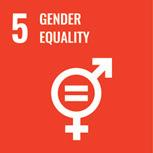




In the pursuit of personal and academic success, health and well-being are often relegated to secondary concerns. However, Chulalongkorn University, a leading educational institution, takes a comprehensive approach to address this issue. Recognizing that good health transcends physical fitness and includes emotional, mental, and social well-being, Chulalongkorn University has adopted a multifaceted strategy to promote health and wellbeing among its students and staff. These innovative programs and initiatives are aimed at creating a community of healthy and thriving individuals.
Chulalongkorn University’s commitment to well-being begins with its annual health check-up program. This initiative serves as a foundational pillar for disease prevention and early intervention. These check-ups act as baseline assessments, identifying risk factors and potential health issues, and, thus, laying the groundwork for strategies to enhance well-being. The “Chula Healthy Report,” generated by College of Public Health Sciences, plays a pivotal role in the analysis of individual and collective health data. The insights gleaned from this report drive the university’s health promotion strategies, fostering interdisciplinary collaboration and ensuring a holistic approach to well-being. This data-driven approach serves as a testament to Chulalongkorn University’s dedication to addressing health concerns on multiple fronts.
Chulalongkorn University goes a step further by recognizing the critical role of mental health in overall well-being. The university’s program “Journey Here: Building Mental Health Immunity” underscores the significance of psychological resilience. Through the active involvement of subject matter experts and community members, this program equips individuals with the tools they need to build mental health immunity. In an era marked by heightened stress and psychological challenges, such initiatives are indispensable. By fostering mental health strength, Chulalongkorn University is enhancing its community’s ability to face life’s challenges head-on.
The university takes its commitment to wellbeing beyond clinical check-ups and mental health support. Chula Healthy Day is a remarkable event that serves as a platform for spreading sustainable health awareness. This event features a range of activities, including information booths, workshops, and exhibitions, all geared towards educating and encouraging participation in health initiatives. By
engaging students and staff in this multifaceted event, Chulalongkorn University is creating a culture of health that extends beyond the individual and into the community.
Chulalongkorn University acknowledges that true well-being requires continuous learning. To this end, the Faculty of Psychology has initiated training programs in psychology and counseling that empower participants to apply their knowledge effectively in various life situations. In a forwardlooking move, the faculty plans to introduce short courses with credit transfer options. This will allow participants to further their studies and pursue a deeper understanding of psychology and counseling. The introduction of lifelong learning opportunities ensures that Chulalongkorn University’s commitment to well-being extends throughout an individual’s lifetime.
By providing annual health check-ups, fostering mental health immunity, hosting Chula Healthy Day, and offering lifelong learning opportunities, the university not only safeguards the health of its community but also empowers individuals to lead healthier and more fulfilling lives. This commitment to addressing health across various dimensions underscores the university’s mission to enhance the overall well-being of its students and staff.
In conclusion, Chulalongkorn University is committed to the belief that an institution’s responsibility transcends the realm of academic development—it extends to nurturing a healthy and well-rounded community that can confront life’s challenges with resilience and vigor.
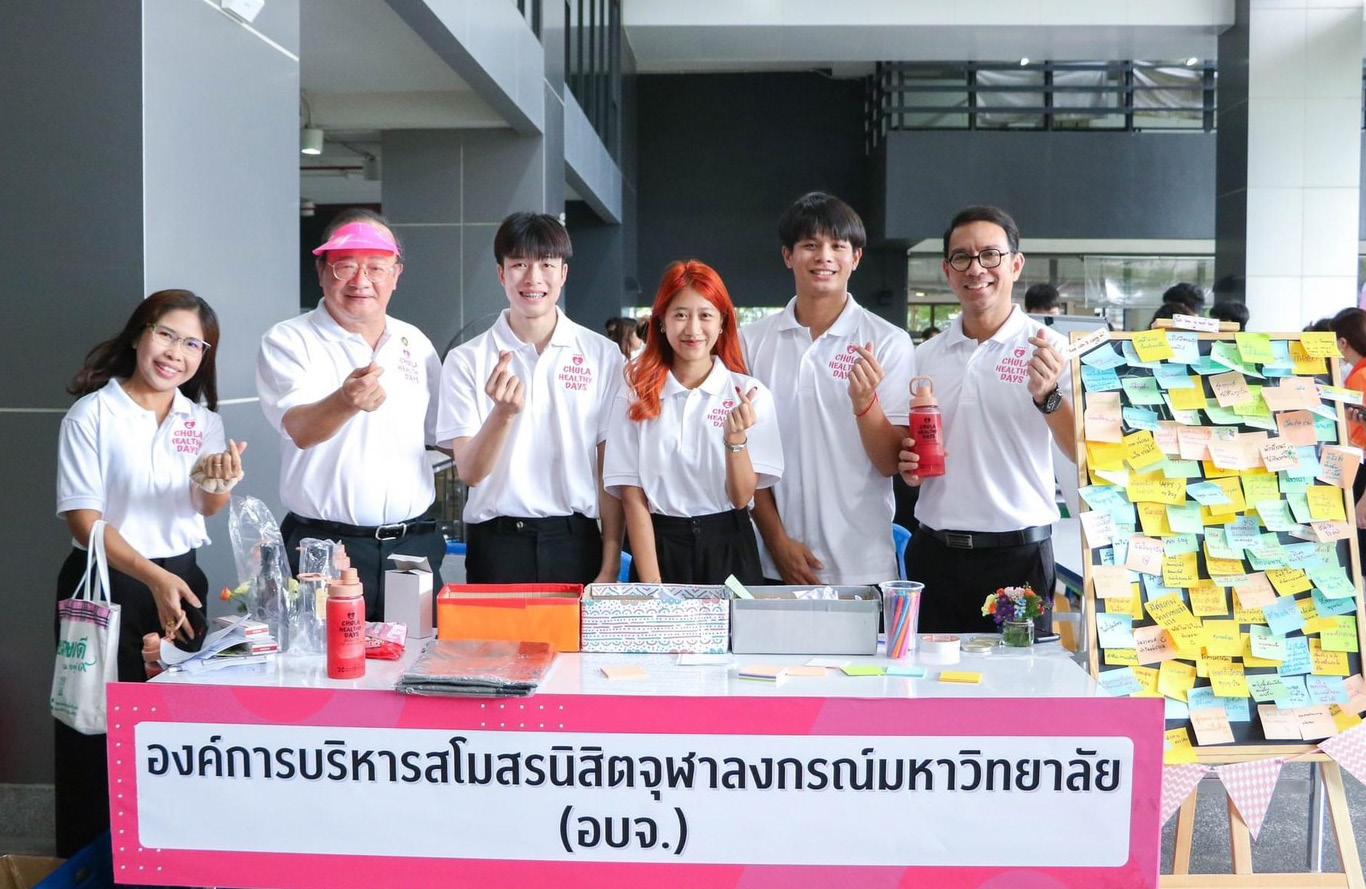



The Chula Race to Zero project is a forwardlooking, multi-faceted initiative to transform Chulalongkorn University into a sustainability exemplar. It emphasizes a holistic approach encompassing technology, economics, and environmental considerations while seeking input and collaboration from various stakeholders. The project is expected to define the future course of the university towards a sustainable and eco-conscious institution. Five Key Strategies for Chula 2050 NetZero Transition are:
Energy Transition: Chulalongkorn University is actively shifting from traditional energy sources to zero-carbon energy systems. One notable collaboration is with the Metropolitan Electricity Authority (MEA); we are working together to install solar photovoltaic (PV) systems on various university buildings (Solar Rooftop). This initiative targets the installation of these systems on 65 buildings across the university, with 14 already in operation. Upon completion, this system of solar power collectors is expected to contribute 25% of the university’s electricity needs.
Improving Energy System Resilience: The university conducts periodic evaluations of its electrical system efficiency, replacing outdated equipment with energy-efficient alternatives. Additionally, building energy management systems (CU BEMs) have been implemented to optimize energy usage.
Creating Green Growth: Chulalongkorn University supports green research and technology development at the national and international levels. The Bio-Circular-Green economy Technology & Engineering Center at the Faculty of Engineering collaborates with public and private sector organizations to develop carbon-neutral technologies. The Thailand CCUS Consortium,
involving various stakeholders, focuses on carbon capture, utilization, and storage (CCUS) to transform CO 2 from a pollutant into a commercial resource.
Lifestyle Transition: The university promotes low-carbon transportation options on its campus, including electric buses, bicycles, electric tuktuks, and electric scooters. Additionally, pedestrian walkways have been enhanced to facilitate convenient and eco-friendly commuting. The Chula Zero Waste initiative manages waste efficiently to minimize its adverse impact on the environment.
Social Transition Social Support System: Chulalongkorn University actively engages its community, faculty, staff, and students in initiatives to reduce greenhouse gas emissions. This involves online platforms for communication, awareness campaigns, and activities to encourage sustainable practices.
Future Initiatives: The next phase of the Chula Race to Zero project involves a detailed analysis of the university’s potential for reducing greenhouse gas emissions and the formulation of a comprehensive strategy that aligns with the university’s mission. Five key strategies, encompassing energy efficiency, alternative energy, waste management, transportation, and green agriculture and forestry, will be explored. Notably, existing technologies with a proven track record will be prioritized. Potential measures will be carefully assessed to consider their technological feasibility, economic viability, and environmental implications. The goal is to develop a sustainable and integrated approach for the university’s continued development.
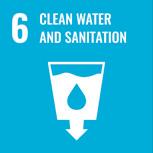




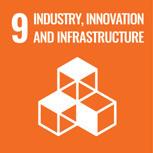


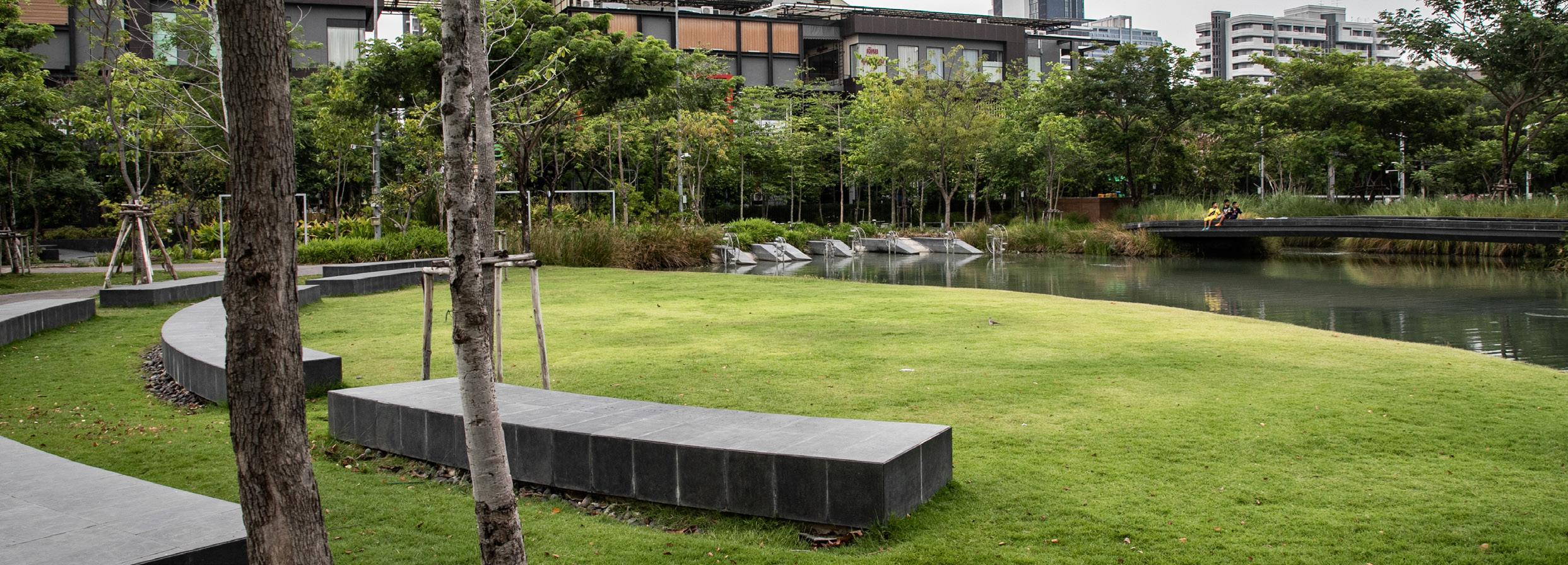

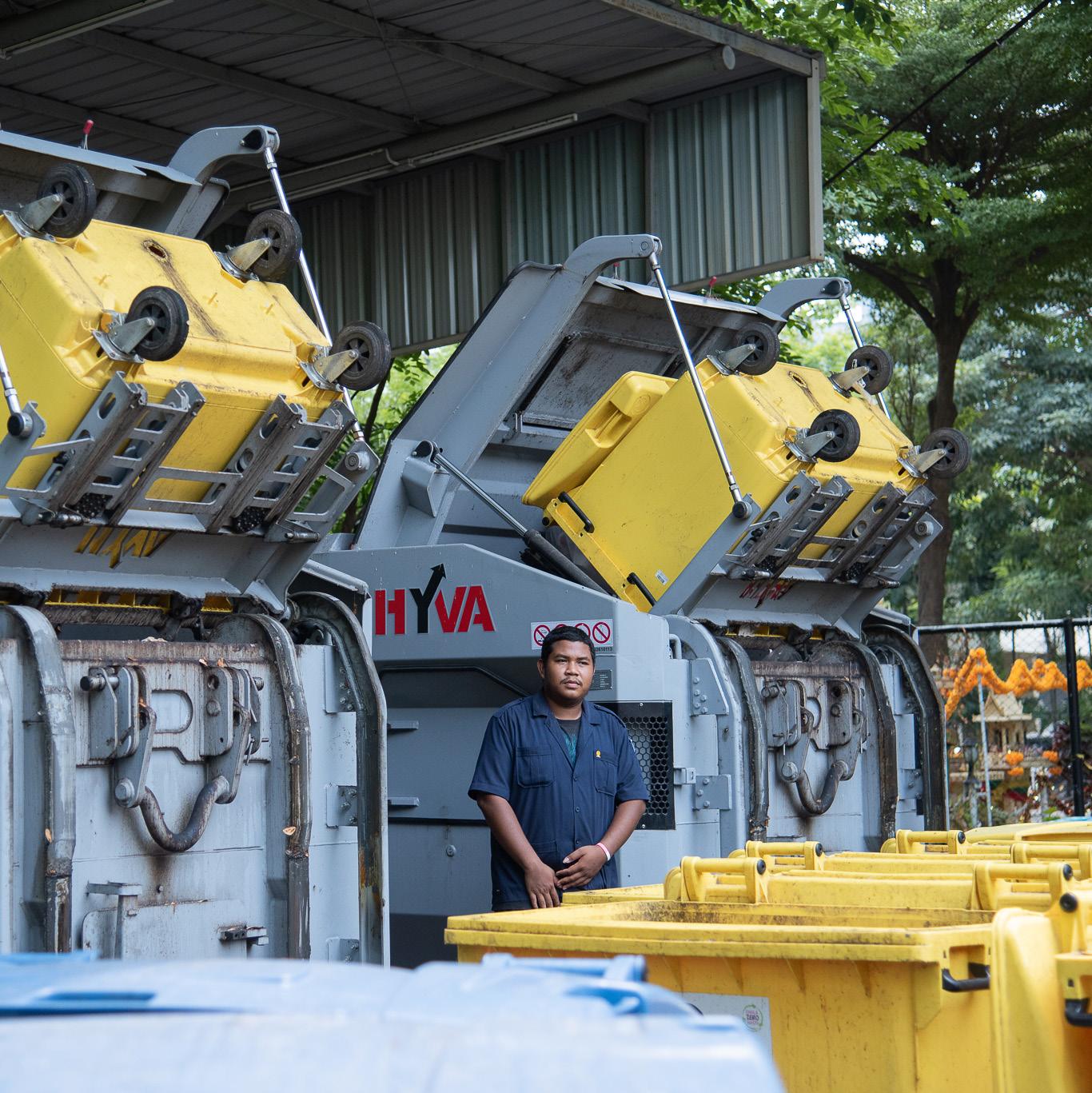
In 2017, the seeds of transformation were sown as Chulalongkorn University took an unprecedented step towards a more sustainable future with the launch of the Chula Zero Waste Initiative led by Chulalongkorn University’s Environmental Research Institute and the Physical Resources Management Office. At the heart of this initiative lies a bold aspiration: to reduce the amount of waste destined for landfills.
The first phase of the initiative, spanning from its inception until 2021, set an ambitious target: to reduce the waste generated on the university campus by 30%. This endeavor was not only about reducing waste but also about reshaping attitudes and behaviors towards consumption and disposal. A pivotal step in achieving the target was the 2018 announcement on Measures to Reduce Single-Use Plastic Waste in the University
Since then, all shops on campus have been obliged to refrain from using styrofoam containers and oxo-degradable plastic bags. This strategic move to no longer provide free plastic bags to customers is both an economic instrument and a nudge towards behavioral change, marking a significant departure from conventional practices. Through policies, education, awareness campaigns, and the establishment of efficient waste separation systems, Chula exceeded its initial goal and paved the way for a more conscientious approach to waste generation.
As the initiative transitioned into its second phase, which runs from 2021 to 2024, the overarching goal was substantially increased; the current objective is to achieve a 75% reduction in the waste diversion rate by 2025. To realize this goal, there has been an ongoing effort to get students and staff involved and expand knowledge to the surrounding communities.
Collaboration has been a key factor driving the success of the university’s many initiatives. Looking into the future, Chula envisions more collaborative endeavors with its student body, the City of Bangkok, and intergovernmental organizations like the United Nations Environment Programme (UNEP). Such collaboration not only lends credibility to the university’s efforts but also amplifies its impact on a broader scale. In 2023, for the first time, The Student Government of Chulalongkorn University (SGCU) set up a Sustainability division. Together with the Chula Zero Waste initiative, more joint workshops and training sessions for student club leaders, members, and interested individuals are planned to foster a culture of mindful consumption, and to raise awareness of ecological impacts from the grassroot level. Scaling up to the city level, the initiative has set its sights on a new frontier— extending its impact beyond the university grounds to neighboring communities. This involves partnering with the Bangkok Metropolitan Administration, the Thai Health Promotion Foundation and other influential organizations as well as collaboration with 9 buildings and offices, 4 local schools, and a temple under the project called “Pathum Wan Zero Waste”. By offering expertise and guidance, Chula aims to serve as a trainer and catalyst for positive change in waste management practices. This
endeavor aligns perfectly with the initiative’s ethos of sharing knowledge, making a social impact, and fostering a sense of environmental responsibility. The initiative has not only garnered attention locally but has also set an inspiring example on a global scale as the project has become a model for other regions aspiring to embrace sustainability. Visitors and participants in prominent international events, such as the Prince Mahidol Award Conference, have been drawn to Chulalongkorn University to witness the positive transformations firsthand. The initiative’s collaboration with the UNEP on the international day of Zero Waste has further elevated its global recognition. The UNEP’s expertise and global reach bolster collaborative efforts between regions, enabling us to exchange valuable insights and best practices from across the globe.
In conclusion, the Chula Zero Waste Initiative exemplifies the power of vision, partnership, and collective action. From its inception in 2017 to its current efforts in fostering waste diversion, partnering with influential organizations, and community engagement, the initiative embodies a commitment to shaping a sustainable tomorrow. With its eyes set on a horizon of social transformation, Chulalongkorn University is leading the way in demonstrating that change is not just possible—it is within our grasp.








Chulalongkorn University has embarked on a remarkable journey to align itself with sustainable development goals. One of the latest initiatives is a remarkable project set in the picturesque Nan Province. This project, aptly named the “Sustainable Green Initiative,” aims to restore and revitalize an ecologically important area while fostering environmental consciousness among students and engaging with local communities.
Nan Province holds a strategic place in Chulalongkorn University’s sustainability strategy. The province hosts the Center of Learning Network for the Region (CLNR), making it integral to the university’s community outreach and research. However, despite its significance, the region faces formidable environmental challenges. Activities like large-scale corn farming have contributed to the release of substantial carbon dioxide (CO 2) emissions and air pollution.
The vast corn fields are easily recognized as a significant contributor to environmental degradation in the region since the most common method for disposing of corn stubble is by burning it, which not only releases CO 2 but also contributes to the annual problem of PM 2.5 air pollution. The region’s agricultural areas include over 550,000 rai (approximately 220,000 acres) of corn fields, 331,398 rai of rice paddies, and 277,260 rai of rubber plantations. This situation is a significant concern not only for environmentalists but also for local communities affected by air pollution.
To combat these ecological challenges, Chulalongkorn University has launched a multifaceted initiative aimed at restoring and revitalizing the environment while enhancing student engagement and experiential learning.
Reforestation with Dipterocarpus Trees: The heart of this initiative is the reforestation of the region with Dipterocarpus trees. These trees are well-suited for restoring ecosystems and sequestering carbon, thus providing a sustainable solution to the problem of CO2 production.
Innovative Techniques: This project employs innovative methods like the introduction of Mycorrhiza for enhancing tree growth and the use of polymer to improve soil moisture retention. These techniques are contributing to the long-term ecological restoration of the area.
Five-Level Forest Planting: A distinctive feature of this initiative is a five-level forest planting approach that includes tall, medium, short, ground cover, and subterranean plants to maximize ecological benefits
and restore a biodiverse ecosystem.
Community Involvement: What sets this project apart is its engagement with the local community. Residents have generously offered a portion of their land to plant trees, further demonstrating their commitment to reforestation.
This initiative’s importance transcends ecological restoration. It aims to create a lasting impact on both the environment and the university’s students. Chulalongkorn University’s objectives for this project include:
Fostering Environmental Awareness: By engaging students in activities that involve ecological restoration, the project aims to cultivate awareness of sustainable environmental practices among the student body.
Community Collaboration: In an exemplary case of an academic institution being an active participant in community development, the project encourages collaboration between students, alumni, and the local community.
Ecosystem Restoration: The primary goal is to restore the ecosystem, mitigate CO2 emissions, and combat land degradation in order to achieve equilibrium within the local ecology and contribute to a healthier planet.
Experiential Learning: As a great example of hands-on education that goes beyond the confines of a classroom, the initiative offers students an opportunity to engage with the community and the environment, translating theory into practice.
Cultural Learning: The project also promotes understanding of the region’s history and culture, which adds a layer of cultural richness to the academic experience and demonstrates how ecological sustainability is intertwined with cultural heritage.
Chulalongkorn University’s “Sustainable Green Initiative” is not just a project; it represents the institution’s commitment to sustainability, community engagement, and nurturing a sense of environmental responsibility among its students and the wider community. By combining education, community development, and ecological restoration, this initiative encapsulates the very essence of what modern universities should aspire to achieve in the age of sustainability.

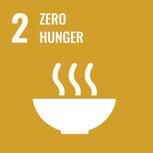








In the wake of the COVID-19 pandemic, Chulalongkorn University is taking significant strides towards Sustainable Development Goal 1 - the eradication of poverty. One remarkable initiative, spearheaded by Assistant Professor Yupin Patarapongsant, Ph.D., Sasin School of Management, Chulalongkorn University is the “Driving Economic and Social Recovery PostCOVID-19 with the BCG Economy” project. This project is not just a response to the challenges brought forth by the pandemic, but a continuation of the university’s commitment to sustainable development. The initiative stems from the “University to Tambon (Integrated Sub-district Economic and Social Upgrading Project) at Sasin,” and it is helping to develop fresh perspectives on recovery.
At the heart of this endeavor lies the invaluable Thailand Community Big Data (TCD). Gathered during a previous initiative, these data serve as a treasure trove of insights that unveil the region’s potential, resource readiness, and the rich biological and cultural diversity within the area. The data comprise not just collected statistics, but the building blocks for local development.
The driving force behind this project is the BCG (Bio-Circular-Green) Economy, which is a visionary economic strategy that harnesses the power of sustainability. BCG is about doing business in a way that nurtures and respects the environment, supports local communities, and ensures economic growth. Crucially, this project is not just about theories and strategies; it is about real, tangible impact. It is also about increasing employment opportunities for graduates and residents in the region at a time when these opportunities are crucial for recovery. The importance of this project cannot be overstated. BCG takes an integrated approach, drawing upon the knowledge, technology, and innovation that already exists; it also fosters collaboration with local government organizations and engages various stakeholders. Together, they tackle challenges faced by the community, with poverty alleviation as the ultimate goal.
Teaming up with the Government Pension Fund of Thailand, Professor Wilert Puriwat, D.Phil. (Oxon), Dean of Faculty of Commerce and Accountancy at Chulalongkorn University has undertaken a mission to empower individuals with a vital weapon: financial literacy. The project aims to provide people, especially those with financial challenges, with the knowledge and tools they need to break free from poverty.
Through dynamic workshops, accessible digital resources, and community engagement, the project imparts essential skills. From prudent budgeting to shrewd investment decisions, participants learn to navigate the complex financial landscape, securing their future and laying the foundation for sustainable livelihoods.
What sets this initiative apart is its holistic approach, reaching deep into communities and addressing the root causes of poverty. By arming individuals with knowledge, Chulalongkorn University is championing the spirit of SDG 1 – eradicating poverty in all its forms. This project is a testament to the university’s commitment to creating lasting impact and a brighter future for all.
In alignment with Sustainable Development Goal 1, the College of Population Studies proudly spearheads the groundbreaking “Innovation Project to Enhance Livelihoods and Income Opportunities for the Elderly and Retired Workforce through Digital Platforms.” This visionary initiative, under Associate Professor Ruttiya Bhula-Or, Ph.D., Deputy Dean of College of Population Studies, Chulalongkorn University, has set out to elevate and safeguard the economic prospects of Thailand’s elderly and retired population, effectively promoting economic inclusivity while systematically reducing long-standing disparities.
As the swift transformation of labor landscapes is catalyzed by the advent of the internet, digitally-controlled machinery, and artificial intelligence, it becomes increasingly clear that adaptability is the key to sustained livelihoods across all age brackets. However, a considerable segment of the elderly and retired workforce, encompassing individuals aged 45 to 59 (pre-retirement) and those aged sixty and beyond, encounters significant challenges in keeping pace with these changes. These challenges manifest primarily in terms of their access to and proficient use of digital technologies. To compound matters, there has been an unfortunate dearth of research and development endeavors aimed at fostering new employment opportunities for this demographic while effectively harnessing the transformative potential of digital technologies.
The platform caters to two primary target groups: firstly, the elderly and retired citizens aged fifty and above, who stand to benefit significantly from the post-retirement livelihood support and opportunities, and secondly, the broader community. This inclusive approach invites active participation from the youth and the general public alike, forging a sense of shared responsibility toward the creation of a more equitable and economically vibrant society.
This transformative project aspires to cultivate an entire ecosystem wherein elderly and retired citizens can adapt and thrive. Operating within the framework of the Sufficiency Economy philosophy, the project is founded upon a twofold objective -- to provide essential economic stability, and to enhance the income of our elder citizens -- thereby contributing substantially to the overarching goal of poverty reduction.
Moreover, the innovative strategies conceived in this project hold the potential to serve as pioneering models for comprehensive plans aimed at promoting lifelong learning. These models, in turn, can empower the target population to perpetually upskill and reskill throughout their lives, thereby serving as potent agents for local and societal growth.


The project known as “Enhancing the Capacity of Livestock Farmers, Collaborative Mechanisms, and Sustainable Beef Market Expansion in Nan Province,” led by Assistant Professor Winai Kaewlamun, D.V.M, Ph.D., Deputy Dean of School of Agricultural Resources, Chulalongkorn University, embodies a commitment to alleviating poverty through communitydriven and sustainable agricultural practices.
Nestled in the northern region of Thailand, Nan Province has received generous financial support from the Provincial Livestock Office and provincial budget groups. A pivotal moment arrived in 2020 when the initiative to establish mixed beef cattle systems for small-scale farmers was launched, thanks to the support from the Bureau of Agricultural Economics.
However, it is important to understand that this project transcends cattle farming; it is, more generally, about fostering collaboration and nurturing a robust ecosystem. The approach taken involves forging a network of stakeholders, including educational institutions, government agencies, and local farmers who work together to tackle several pressing challenges that have, in the past, hindered sustainable beef farming in the province.
One of the standout challenges has been the absence of strong collaboration mechanisms, a deficiency that this project seeks to rectify. There’s also significant room for improvement in terms of production efficiency. For example, issues such as the disparity between beef quantity and quality concerning market demands have led to missed opportunities in the past. Additionally, many farmers lack the requisite knowledge and skills for effective production planning. Lastly, a gap exists in terms of accurate and up-to-date data to guide the collaborative development of the beef industry in Nan Province.
The impact of this project radiates in multiple directions. Economically, it empowers local communities by providing interest-free loans that fund group activities. On the social front, the project cultivates on-site activities and raises awareness among farmers. Moreover, as a result of this and similar efforts, government agencies are increasingly prioritizing the development of the beef industry, which presents opportunities for farmers to enhance their incomes.
This initiative, led by Assistant Professor Numpon Insin, Ph.D., Faculty of Science, Chulalongkorn University, exemplifies the university’s commitment to driving positive change by addressing local challenges with innovative solutions. The project’s focal point is to elevate the quality of life for cassava farmers in Na Khom Sub-district, Nakhon Sawan Province, an area marked by persistently low incomes despite the potential for high cassava yields.
The heart of the project lies in its holistic approach to tackling multifaceted challenges that perpetuate poverty among cassava growers. By introducing a novel approach to cassava production, the project aims to create a transformative impact on the socioeconomic landscape of the region. Through the identification and cultivation of suitable cassava varieties for the local context, the project seeks to enhance yields and quality, empowering farmers to command better prices for their produce. Moreover, the project ventures into innovative cassava processing techniques. By establishing a cassava processing facility equipped with modern technology, farmers can add value to their produce and tap into higher-value markets. This strategic move not only boosts farmers’ earnings but also contributes to the creation of a sustainable value chain, generating employment opportunities and fostering economic growth within the community. Furthermore, Chulalongkorn University empowers local farmers with the skills needed to effectively implement modern agricultural practices. This capacitybuilding enhances crop productivity and builds resilience against environmental challenges, further securing farmers’ livelihoods.


The Scholars of Sustenance Foundation (SoS), a distinguished food rescue organization in Thailand, has taken a remarkable step towards bolstering the nation’s food security with a groundbreaking proposal – the National Food Bank Policy. This visionary project by Assistant Professor Numpon Insin, Ph.D., Faculty of Science, Chulalongkorn University, carries a dual purpose: to showcase the significant contributions and unwavering reliability of the SoS Foundation, and, concurrently, to advocate for a comprehensive national food bank policy.
In pursuit of these goals, a series of interviews were conducted with representatives from various organizations. These discussions delved into the current food rescue operations spearheaded by SoS, and the expectations that stakeholders harbor regarding a potential food bank policy. The insights gleaned from these dialogues have been enlightening.
The findings now stand as a valuable resource, equipping the SoS Foundation with indispensable information to fine-tune and amplify its food rescue initiatives. Moreover, the outcomes of these interviews paint a compelling picture, illustrating the pressing necessity for government support, and the imperative need to formulate a national food bank policy.
As Thailand grapples with the challenges of food security and sustainable resource utilization, the SoS Foundation’s initiative is taking center stage and reinforcing the country’s commitment to the Sustainable Development Goals (SDGs) and a hunger-free future for all.
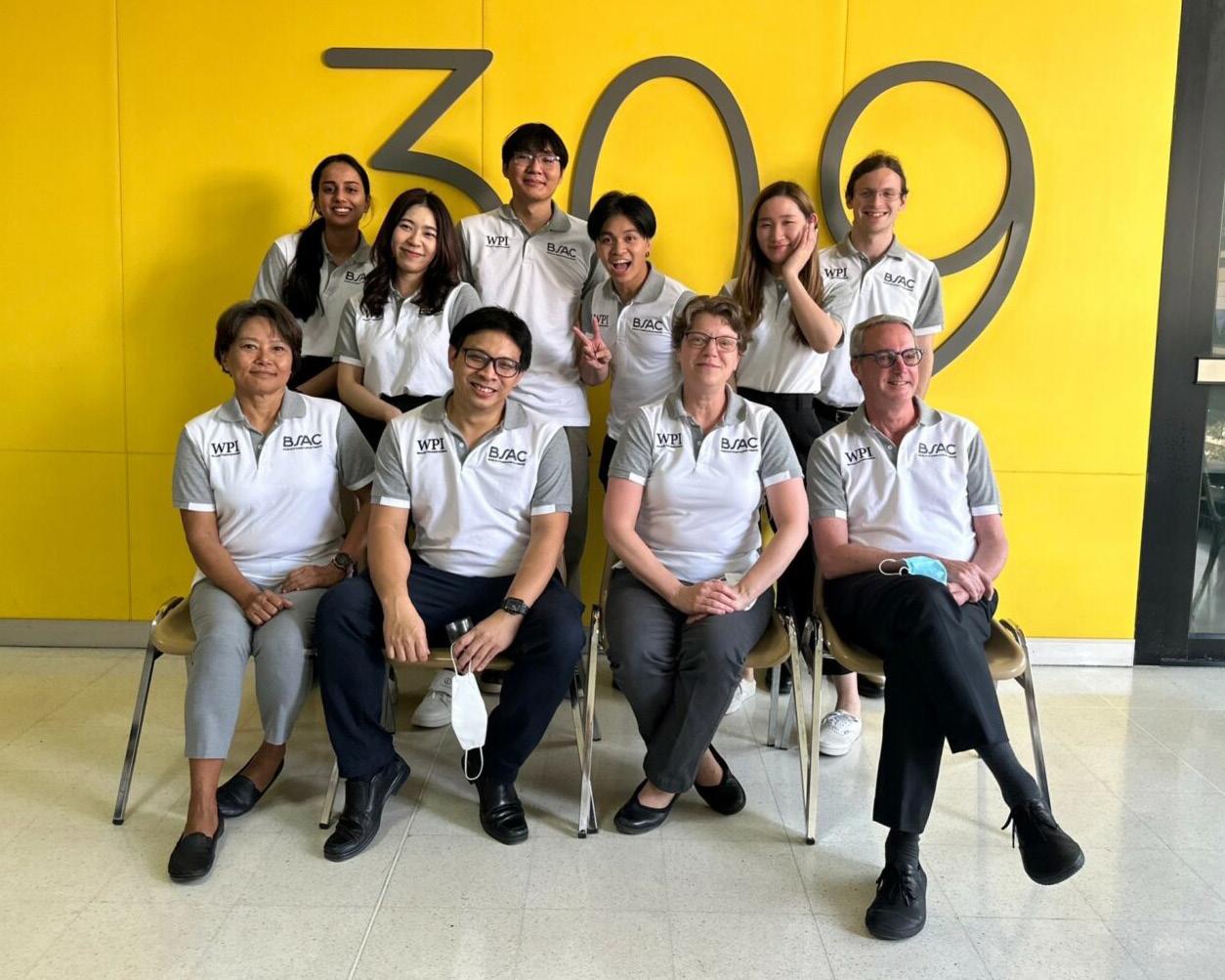
The development of small ruminant production model for small-scale farmers to transform the farmers into ‘smart’ farmers.
The School of Agricultural Resources (SAR), led by Sarawanee Khunmanee, D.V.M., Ph.D., has spearheaded an innovative initiative to shift from monoculture plantation to goat and sheep production in certain areas. Collaborating with School of Agricultural Resources, Chulalongkorn University, and the Nan Provincial Livestock Office, SAR embarked on a transformative project titled “The development of small ruminant production model for small-scale farmers to transform the farmers into smart farmers.” This endeavor, spanning from March 2020 to April 2023, aimed to replace feed corn production with sheep and goat husbandry in the highlands of Nan, benefiting farmers in 10 sub-districts across 7 districts of the province.
Traditionally, unsuitable areas in these highlands were exploited for feed corn production, wreaking havoc on the environment through multiple adverse effects such as deforestation, soil erosion, and the burning of agricultural raw materials. These unsustainable practices resulted in soaring production costs and meager incomes, compelling farmers to seek alternative livelihoods. The initiative introduced goat and sheep rearing as an alternative, offering a manageable and versatile solution that thrives on diverse feed sources.
This project, executed in collaboration with ten organizations, has empowered farmers with essential knowledge and skills in breeding, feeding, hygiene management, and efficient production planning for goats and sheep. Moreover, it has fostered the establishment of a well-structured market channel for these small ruminants.
With 58 participating farmers, including 18 community innovators, the project has not only transformed livelihoods but also provided a sustainable alternative to traditional feed corn cultivation. Nan’s agricultural landscape has evolved, leading to increased income and an improved quality of life for its farmers, and heralding a brighter future for the region’s agricultural sector.

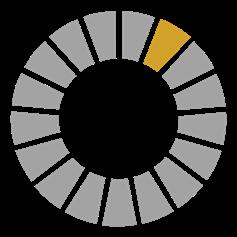
This initiative, under the leadership of Associate Professor Kittisak Ajariyakhajorn, Ph.D., Faculty of Veterinary Science, Chulalongkorn University, offers the promise of transforming dairy farming in humid regions.
At its core, this project aspires to create a dynamic platform that bolsters research, education, and academic services within the faculty. However, it goes beyond academia; it is about forging powerful collaborations that bring together dairy farmers, government agencies, and academic institutions, fostering an environment conducive to learning and progress.
The geographical focus of this endeavor is Saraburi Province, a region characterized by its humid climate. Here, dairy farming faces unique challenges and opportunities, and this project aims to leverage both. By sharing insights, research findings, and technological innovations directly with dairy farming communities in Saraburi, Lopburi, and Nakhon Ratchasima province, the initiative seeks to elevate the industry.
The impact is multifaceted. It is about transferring knowledge and research technology that enables local farmers to enhance their production efficiency and refine their processes, leading to an increase in the quality and quantity of dairy products.
Crucially, the beneficiaries are the dairy farming communities. By providing them with the tools and knowledge to thrive in their profession, this project empowers individuals at the grassroots level, contributing directly to the eradication of hunger.

An initiative led by Professor Chitlada Areesantichai, Ph.D., Dean of the College of Public Health Science, Chulalongkorn University, the Chula Health House, conducts critical research in medical and public health sciences, serving as a hub for graduate and postgraduate students.
The Chula Health House has a threefold impact. Firstly, it delivers essential healthcare services to the community. Secondly, it employs community health data to reduce health risks and enhance healthcare knowledge through academic research. Lastly, it engages local residents in health program design and execution through collaboration with Chulalongkorn University and its network.
This approach aligns with Sustainable Development Goal 3 (SDG 3), Good Health and Well-being, by focusing on essential healthcare and public health while emphasizing community involvement, research, and knowledge dissemination for better health and well-being, both locally and globally.
Led by Worawalun Honglertnapakul, M.D., Department of Ophthalmology, Faculty of Medicine, Chulalongkorn University, in collaboration with Sisaket Hospital, the primary goal of this program is to provide comprehensive medical examinations and surgeries for children suffering from eye diseases and muscle-related eye conditions in remote provinces of Thailand. These areas often lack access to specialized pediatric ophthalmologists, making this initiative crucial in the effort to ensure these young patients can receive appropriate and timely treatment. The aim is to enhance vision, quality of life, and the ability to lead normal lives.
This medical service has been established at various hospitals across different provinces, commencing in Sisaket Province. A dedicated team of pediatric ophthalmologists, comprising specialists and alumni, perform these critical medical interventions with consideration for the specific needs of the children.
This project makes a significant contribution to SDG 3 by directly addressing the healthcare requirements of children in remote areas. It provides specialized medical services that are vital for enhancement of their health and overall well-being. Moreover, it underscores the importance of ensuring equitable access to healthcare services, especially for vulnerable populations residing in underserved regions.
In an aging world, cognitive impairment, particularly Mild Cognitive Impairment (MCI), has emerged as a significant health challenge. MCI is a transitional stage between normal cognitive aging and severe conditions like dementia that impact memory and thinking abilities. The critical concern lies in the potential progression to more severe cognitive impairments that may adversely affect the ability to carry out daily routines and diminish quality of life.
To combat these concerns, Associate Professor Solaphat Hemrungrojn, M.D., Ph.D., in collaboration with the Faculty of Medicine, Chulalongkorn University, National Electronics and Computer Technology Center (NECTEC), and the Faculty of Engineering at Chulalongkorn University, initiated an innovative brain training program for the elderly.
The primary focus of this program is on early intervention and prevention, aiming to delay or mitigate cognitive decline.
A noteworthy achievement of this project is the significant delay in cognitive decline among its participants. Through tailored brain training exercises, over 300 elderly individuals experienced notable improvements in their cognitive abilities. This not only enhances their quality of life but also lightens the load on caregivers and families.
Additionally, the project has a broader impact. Thirty experts underwent specialized training in the program, contributing to its sustainability and scalability. This multiplier effect ensures that the benefits extend to a wider audience of elderly individuals at risk of MCI.
This initiative exemplifies how advanced research and collaboration can address critical healthcare concerns and promote healthy aging, ultimately fostering a society where wellbeing in old age is a shared reality.
The “Development of Online Mental Health Consultation and Mental Health Service Referral Network” project was initiated by Assistant Professor Nattasuda Taephant, Ph.D., Dean of Faculty of Psychology, Chulalongkorn University, in response to concerning mental health statistics in Thailand. The data revealed high suicide rates and an increasing prevalence of depression, partially attributed to inadequate or discontinuous mental health care for individuals with mental health issues. Additionally, the overall happiness of the Thai population had been found to be decreasing.
Despite an increase in mental health services offered by both public and private sectors in Thailand, these services remain insufficient, leading to unmet needs and an inability to reach all individuals in need of mental health care. This gap in mental health care access stems from financial constraints, resource limitations, and an incomplete health coverage system.
The project aims to develop a comprehensive online mental health consultation service (Mental Health Online Service: MOS) that encompasses information provision, psychological counseling, and service referrals. It also seeks to establish a standardized mental health service database for various agencies, including governmental, civil society, and private organizations.
The project strongly aligns with Sustainable Development Goal 3 through the following key aspects: universal healthcare access, mental health promotion and prevention, health workforce development, community-based care, and enhanced access for vulnerable groups.
The Outcomes and Impacts of the project include:
• The MOS service has significantly improved the life satisfaction of users, as evident from statistical analysis.
• Proper referrals have been made to 691 individuals who required mental health services, out of which 428 received appropriate referral services based on their needs.
• An online mental health service database has been established, enabling organizations to access standardized mental health services.
• Mental health promotion activities have been conducted to raise awareness and provide psychological support, with participants expressing high satisfaction with the program.
• Advocacy and policy promotion efforts have reached a wide audience through social media channels, with 493,290 visits to the project’s Facebook page and 3,750 shares of project-related information.
This project is contributing significantly to the improvement of mental health and the well-being of the Thai population, addressing mental health issues. It also sets a model for utilizing digital technologies and community networks to provide accessible mental health care.


Aligned with the National 20-Year Strategy (2020-2039), this project by Professor Pornchai Jansisyanont, D.D.S., M.S., Ph.D., Dean of Faculty of Dentistry, Chulalongkorn University, uses digital technology on high-speed networks to enhance oral healthcare access. The focus is on underserved populations in remote areas of Nan and Saraburi provinces.
Objectives of the project:
• Expand access to oral health screening using intraoral cameras.
• Enable prosthetic dental services through intraoral scanning.
• Establish a real-time consultation platform between local and specialized dentists.
• Focus on disadvantaged groups, reducing healthcare disparities.
• Enhance the skills of local dental professionals.
Key Activities include:
• Planning and monitoring in Nan and Saraburi.
• Training for local healthcare professionals.
• Oral health screening at the community level.
• Delivery of prosthetic dental services.
• Development of a “Thai Teledentistry” app.
The Outcomes and Impacts of the project:
• 6,778 individuals received teledentistry services.
• 2,564 received oral healthcare services.
• 18 individuals received prosthetic dental care.
• The “Thai Teledentistry” app facilitates real-time communication.
The development in Thailand of a novel wound dressing material, Germguard, infused with natural extracts, exemplifies a significant advancement in healthcare. In response to the Thailand 4.0 policy’s call for technological innovation and economic growth in the medical sector, collaboration between the government and private agencies has been crucial. This initiative addresses the high cost of imported medical supplies while enhancing local communities’ economic opportunities.
Leveraging the abundance of locally available natural extracts with medicinal properties, such as mangosteen peel extract, which is rich in antibacterial components, Professor Pitt Supaphol, Ph.D. at the Petroleum and Petrochemical College, Chulalongkorn University, has developed an innovative wound dressing material. This dressing, known as “Xanfoam,” combines Germguard technology for extended material life and increased antimicrobial efficacy. It effectively addresses previous concerns regarding adsorption, antimicrobial resistance, pressure resistance, and longevity.
Collaborative research efforts, including sterilization tests and clinical trials involving faculty from Chulalongkorn University, have validated the product’s potential for bacterial suppression and enhanced wound recovery. Prototype products have been successfully deployed in hospitals, with patients experiencing faster wound healing and reduced infection-related biofilm formation. The project’s achievements have been recognized through government awards, reflecting its significant contribution to the long-term growth of the medical industry while promoting better health and well-being in Thailand and beyond.

Lecturer Varanya Techasukthavorn, from Chulalongkorn University’s Faculty of Allied Health Sciences, in partnership with the Thai Dietetic Association, has embarked on a mission that transcends culinary innovation, with the objective of developing a collection of 46 nourishing recipes designed for the elderly and other patients who grapple with the challenge of chewing and swallowing their food.
These recipes are not just culinary delights; they are lifelines for those who face the often-overlooked struggle of swallowing difficulties. The endeavor is rooted in the principles of the International Dysphagia Diet Standardization Initiative (IDDSI), which aims to ensure that each dish serves not only as a means of sustenance but also a path to enhanced well-being.
While food may be rich in taste and nutrition, it loses its significance if individuals cannot enjoy it due to swallowing issues. This is a prevalent concern, especially among the elderly, and can result in a loss of appetite, malnutrition, and a decline in overall health and quality of life. Lecturer Varanya Techasukthavorn highlights the critical nature of this issue by pointing out that improper swallowing can lead to severe consequences, including food entering the windpipe, potentially causing lung damage or even fatal incidents.
To address these challenges, professionals employ various assessment methods, from bedside tests to sophisticated videofluoroscopic swallow studies. Additionally, innovative devices have been developed to assess the suitability of food and drinks for those with chewing or swallowing difficulties. One such test is the “Fork Pressure Test,” a novel approach to determine if food meets IDDSI standards. By assessing the texture’s suitability for chewing and swallowing, it aids in crafting meals that are both safe and appetizing for individuals with swallowing difficulties.
The Thai Dietetic Association has compiled a recipe book titled “46 Recipes to Train Swallowing.” This groundbreaking cookbook aligns with IDDSI standards and is a pioneering effort to provide meals specifically tailored to the needs of those with swallowing difficulties.
These recipes, ranging from Palo Egg Stew to Hainanese Chicken Rice, have been crafted with precision. The recipes have undergone rigorous testing in hospitals across Bangkok and various provinces, and meet essential criteria, including texture, viscosity, nutritional value, and visual appeal, ensuring they are both nourishing and enticing for patients.
In a future extension of this research, semi-processed high-protein foods and desserts designed for easier swallowing are on the horizon. These innovations promise not only sustenance but also the restoration of the joy of eating for seniors and individuals facing the challenge of swallowing difficulties.

Oral health issues are prevalent, and they can significantly impact people’s daily lives. The treatment of dental conditions is essential to alleviate suffering and prevent further health complications. However, the current approach of repetitive treatments for recurring dental problems is unsustainable and fails to address the root causes. This leads to escalating costs, prolonged treatment periods, and an increased demand for specialized dental professionals. Conventional dental service models often fall short in effectively reaching and serving the entire population, especially economically and socially vulnerable groups.
The Teledent project aims to improve access to dental healthcare services for vulnerable populations. It achieves this by implementing measures such as telemedicine consultations, efficient appointment systems, extended service hours, and transportation services. Furthermore, the project focuses on training village health volunteers to provide basic oral health assessments, which enhances the efficiency of referrals to appropriate healthcare facilities.
Initiated by Issarapong Kaewkamnerdpong, D.D.S., Ph.D. at the Faculty of Dentistry, Chulalongkorn University, the Teledent project is an innovative approach to dental healthcare by addressing inequalities in access to oral health services. Its emphasis on prevention, community involvement, and capacity building for healthcare providers showcases a comprehensive strategy for advancing oral health while promoting universal healthcare access and well-being. This project serves as a model for integrated oral healthcare solutions that improve health outcomes and enhance the quality of life for vulnerable populations.
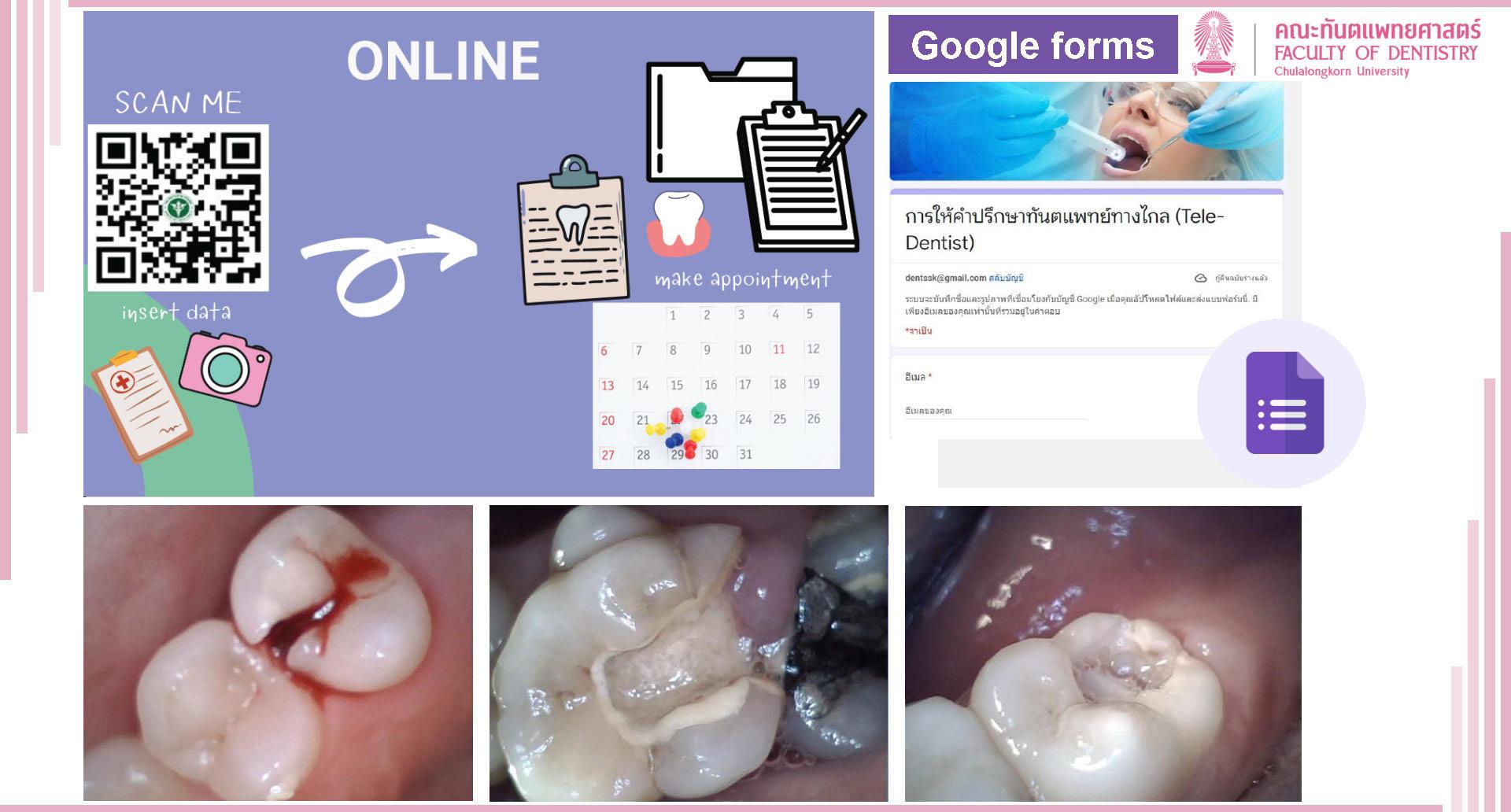
A collaboration between the Faculty of Pharmaceutical Sciences, Chulalongkorn University, the Chulabhorn Royal Academy, and the private sector has resulted in Thailand’s first pediatric favipiravir syrup for COVID-19 patients. The innovation received the Prime Minister’s Award in the government sector category at the Startup and Innovation Thailand Expo 2021.
With the COVID-19 pandemic posing a significant health crisis in Thailand, Assistant Professor Bodin Tuesuwan, Ph.D., Faculty of Pharmaceutical Sciences, Chulalongkorn University, initiated the development of a favipiravir formula to enable hospitals to prepare the medicine in-house. The Chulabhorn Royal Academy provided the active ingredients for this initiative. The liquid favipiravir syrup, specifically formulated for pediatric patients, is sugar-free and flavored with raspberry, ensuring convenient and effective administration.
This initiative enhances the availability of a crucial COVID-19 treatment, making it accessible to a broader range of patients, especially children, and ensuring safe administration, thus advancing the principles of good health and well-being outlined in SDG 3.
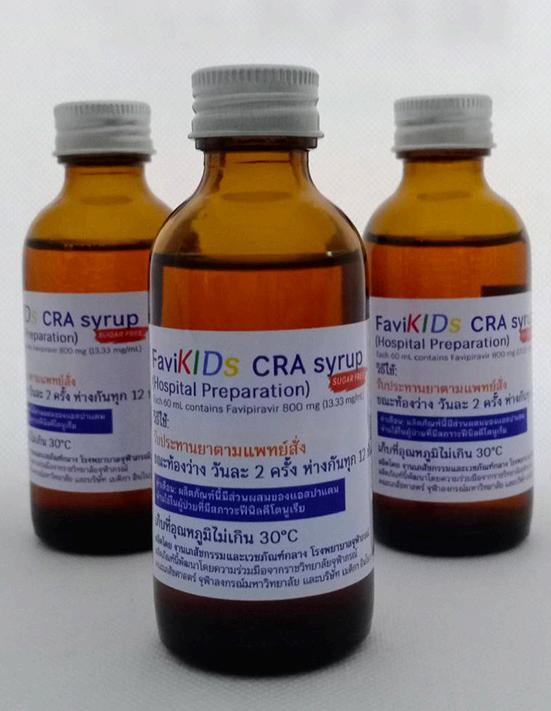
This conference under the supervision of Assistant Professor Suwimon Rojnawee, Ph.D., Faculty of Nursing, Chulalongkorn University adapts nursing education, research, and leadership to align with Thailand’s “Thailand 4.0” and Sustainable Development Goals (SDGs). Established in 2012, Thailand Nursing Honors Society and Sigma Theta Tau International Honor Society of Nursing, Phi Omega-at-Large Chapter aims for knowledge exchange and excellence in nursing education, research, and leadership.
In 2023, Chulalongkorn University’s Faculty of Nursing chaired the 15th annual international conference, uniting nine graduate nursing institutions. The impact included knowledge exchange from international and local experts, insights for 227 participants into research and nursing education, a highly-rated project (90.8% satisfaction), and 24 research papers with six awardees.
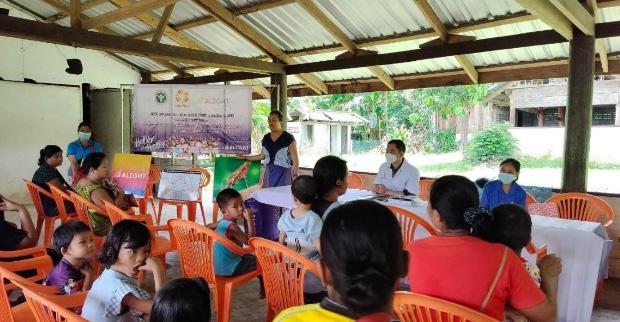
Operational from February 24, 2023, to August 31, 2023, the Malaria-Free Community Initiative was led by Assistant Professor Suttipat Srisutham, Ph.D., Department of Clinical Microscopy, Faculty of Allied Health Sciences, Chulalongkorn University, in collaboration with Raks Thai Foundation, Tak’s World Vision Foundation, and the Alight Foundation Thailand.
Initiated in alignment with the Thai government’s commitment to elimination of malaria, the project represents a linchpin in its strategy. Focusing on proactive case detection, the project aims to target not only symptomatic individuals but also asymptomatic carriers. Detecting these hidden carriers is crucial as they, despite showing no symptoms, can still transmit the malaria parasite to others, perpetuating the disease’s cycle. Thus, uncovering these asymptomatic carriers is pivotal in breaking the transmission chain.
Central to this endeavor is the utilization of advanced medical technology, specifically the real-time PCR HRM technique developed by Assistant Professor Suttipat Srisutham, Ph.D. at the Department of Clinical Microscopy, Faculty of Allied Health Sciences, Chulalongkorn University. Renowned for its speed and pinpoint accuracy, this method can identify all five malaria strains, making it a game-changer for screening infections in high-risk malaria areas within Thailand, notably the provinces of Tak, Si Sa Ket, and Kanchanaburi.
The “Malaria-Free Community Initiative” has three primary objectives:
• Proactive Detection: The project aims to proactively identify malaria infections in the provinces of Tak, Si Sa Ket, and Kanchanaburi, utilizing Rapid Diagnostic Tests (RDTs) and PCR-HRM technology to reach both symptomatic and asymptomatic cases.
• Empowering Students: This initiative instills a sense of social responsibility in students from the Faculty of Allied Health Sciences, Chulalongkorn University. By participating in the project, they contribute to community well-being and gain invaluable real-world experience.
• Sustainable Health: The initiative puts its discoveries to work by offering proactive malaria case detection services. This contributes to the national objective of eradicating malaria and, more broadly, enhances the public health infrastructure in these communities, fostering sustainable health practices.
The project has successfully screened 389 individuals in high-risk areas, including asymptomatic cases.
By targeting malaria and bringing healthcare services to underserved communities, the project contributes to SDG 3’s mission of ensuring healthy lives and promoting well-being. This underscores the project’s vital role in striving for a healthier and malaria-free future.

Diabetes is a global health concern, impacting millions of lives, including those in Thailand where more than 6.1 million people are affected by the disease, half of whom remain undiagnosed. In response to this challenge, Nadnudda Rodthongkum, PH.D. at the Metallurgy and Materials Science Research Institute, Chulalongkorn University, initiated a groundbreaking project focused on Sustainable Development Goal 3 (SDG 3)
The project addresses the need for effective, non-invasive glucose monitoring systems for diabetes management. It aims to create a wearable glucose monitoring device that does not require skin piercing and can transmit data to smartphones for real-time monitoring.
This project has significant implications:
• Improved Diabetes Management: The non-invasive wearable device simplifies glucose monitoring, enhancing patient well-being.
• Early Detection and Prevention: It serves as an efficient tool for identifying at-risk individuals and implementing early intervention.
• Relief on Healthcare Systems: The project could reduce the burden on healthcare systems by minimizing hospital visits and costs.
• Economic Growth: The device’s streamlined production process opens doors for medical device export, stimulating economic growth.
• The project comprises three core research areas:
• Non-Invasive Monitoring Device Development: Creating a device that monitors blood glucose levels without skin piercing.
• Data Transmission System: Establishing a smartphone connection for real-time monitoring and data sharing.
• Testing and Refinement: Rigorous testing and refinement to ensure device accuracy and efficiency.
• The impacts achieved include:
• Knowledge Dissemination: The project’s research findings have been published in a high-impact scientific journal.
• Health and Quality of Life: The non-invasive wearable device empowers individuals with diabetes to manage their health more effectively.
• Economic Growth: Streamlined production processes create opportunities for medical device exports, contributing to economic growth.
• The project exemplifies innovation in healthcare technology, significantly influencing public health. By pioneering a non-invasive wearable glucose monitoring system that seamlessly integrates with smartphones, this project contributes to the realization of SDG 3, ensuring improved health, accessible healthcare, and technological advancement for the betterment of society.

The Faculty of Veterinary Science has embarked on two noteworthy projects aligning with Sustainable Development Goal 3 (SDG 3) - Good Health and Well-being. The first project, conducted from April 18, 2022, to April 20, 2022, centered on controlling the population of stray dogs and cats on Samed Island. Led by Miss Suwarat Wadeerat, D.V.M., The Small Animal Teaching Hospital, Faculty of Veterinary Science, Chulalongkorn University in collaboration with Samed Resort Group and the local sub-district administration implemented measures for sterilization and rabies vaccination along with provision of general disease information to pet owners. The project successfully reduced the population of stray animals and prevented the spread of rabies, contributing to the health and safety of both residents and tourists on the island.
The second project, executed from July 4, 2022, to July 5, 2022, targeted the well-being of pets and the prevention of diseases in the community of Amphoe Mueang, Chon Buri. Also led by Miss Suwarat Wadeerat, D.V.M., The Small Animal Teaching Hospital, Faculty of Veterinary Science, Chulalongkorn University sought to control the dog and cat population through neutering and administration of rabies vaccines while offering disease consultations to pet owners. It successfully reduced the number of stray dogs and cats in the area and minimized the risk of rabies transmission, promoting the health and safety of the local population.
These projects demonstrate the Faculty of Veterinary Science’s commitment to SDG 3 by actively addressing public health concerns related to animals and emphasizing the importance of responsible pet ownership.
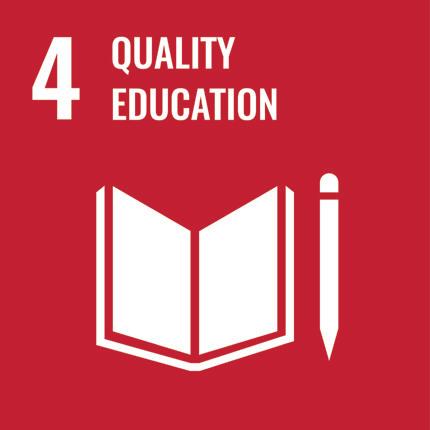
Education stands as the cornerstone of individual development, societal progress, and national prosperity. In Thailand, the government prioritizes education highly, emphasizing equal access and opportunity for all; this commitment is enshrined in a 15-year fundamental education policy, free of charge. However, challenges persist, especially for marginalized groups, including children with facial and cranial abnormalities, often coupled with social issues such as drug abuse, human trafficking, and unemployment.
Recognizing this gap, the Somdech Phra Debaratana Medical Center, led by Professor Emeritus Charan Mahatumarat, M.D., at the Faculty of Medicine, Chulalongkorn University, and the Thai Energy Foundation joined forces to initiate the “One Fund, One Dream, Shaping the Future” project to provide educational scholarships to underprivileged students receiving medical care for facial and cranial abnormalities.
In its inaugural year in 2022, the project granted scholarships totaling 319,300 Thai Baht to 30 deserving students. The impact was profound, alleviating financial burdens on families and providing these students with the highest benefit. They were offered the opportunity to pursue education, reducing the risk of being forced to drop out of the system due to economic hardship. The project plans to continue this effort from 2023 to 2026, expanding its reach to include at least 100 new students. This expanding project aligns with Sustainable Development Goal 4: Quality Education, and contributes significantly to ensuring inclusive and equitable education for all, irrespective of their financial circumstances or medical conditions, fostering a brighter future for Thailand’s youth.

In the realm of Chulalongkorn University’s educational initiatives, the High-Skill Career Innovation Fund project has emerged as a transformative force. Championed by Assistant Professor Chanisa Tantixalerm, Ph.D., Faculty of Education, Chulalongkorn University, this project is dedicated to bridging educational gaps for learners with special needs. Its core mission revolves around enhancing and expanding the impact of high-skill career opportunities tailored to these learners. The multifaceted approach entails not only improving the support systems within vocational education but also delving into profound research aimed at exploring innovative strategies that can elevate the quality of educators. These strategies encompass the enhancement of knowledge and skills while fostering positive attitudes essential for effective teaching of learners with special needs. Moreover, the project is extending its reach to provide comprehensive care, assistance, and the development of necessary skills that can enable a smooth transition into the workforce, thus ensuring these learners are well-prepared for employment.
Collaboration is at the heart of this initiative, as it actively engages a network of entities and stakeholders in the transformative journey towards enhancing employability.
The impacts are far-reaching. Learners with special needs are granted scholarships to pursue advanced vocational certificates; vocational institutions witness a remarkable improvement in the management of special education, and an expanding network for job creation targeting these learners is developing, encompassing both government agencies and private sector organizations. This project, operated under the High-Skill Career Innovation Fund, is not just about education; rather, it is a commitment to creating talent, generating opportunities, and fostering employment. In a society where highly skilled professionals hold the key to economic prosperity and development, initiatives like this one are paving the way for a more inclusive and equitable future, aligning perfectly with the vision of Thailand 4.0.

As the world strives to meet the United Nations’ Sustainable Development Goals (SDGs), education stands at the forefront of creating a better future for all. Among these goals, SDG 4 - Quality Education - holds a pivotal role in shaping a more equitable and sustainable world. The Faculty of Commerce and Accountancy, under the supervision of Professor Wilert Puriwat, D.Phil. (Oxon), at Chulalongkorn University, Thailand, is passionately leading the charge in responding to SDG 4 through transformative projects.
Ensuring Educational Institution Safety
In the era of the “New Normal,” ensuring safety in educational institutions is paramount. The project exemplifies a model for safety and quality in education, directly addressing SDG 4’s call for secure and quality learning environments.
Encouraging Active Learning with Innovative Convenience Store Competition
Active learning is central to effective education. This project emphasizes hands-on learning experiences to equip students with practical skills, making them active contributors to their communities.
This project is dedicated to enhancing financial literacy among school students. By developing high-quality learning materials, it aims to empower individuals with essential life skills and knowledge for responsible financial decision-making.
The UP ACADEMY project focuses on enhancing the quality of education by aligning curricula with real-world business challenges, which prepares students to enter the workforce seamlessly and offers opportunities for continuous learning and development. The primary beneficiaries are the students of Chulalongkorn University’s Faculty of Commerce and Accountancy.
Recognizing the importance of digital literacy, the project seeks to bridge the digital divide by providing necessary technological resources to underserved students, directly supporting SDG 4 by ensuring equal access to quality education.
This project, which emphasizes the vital role of small and medium-sized enterprises (SMEs) in Thailand’s economic future, relies on a partnership with the Department of International Trade Promotion (DITP). The initiative supports academic activities, knowledge sharing, and trade promotion activities aimed at empowering Thai SMEs to grow domestically and internationally. The primary beneficiaries are small and medium-sized enterprises (SMEs) in Thailand.
By continually enhancing the quality of higher education, the project strives to prepare students with the knowledge and skills they need to excel in a competitive world, directly contributing to SDG 4’s vision of providing quality education.
In a rapidly changing world, upskilling and reskilling are vital to adapt to evolving demands in the job market. This project encourages continuous learning among adults and professionals.
In collaboration with the World Economic Forum, the project generates the Future of Jobs Report, a vital survey that influences changes in business and organizational landscapes, driving preparedness for the rapidly transforming job market.
The Innovation for Society project highlights the importance of integrating sustainability principles into business education. By doing so, the project prepares students to contribute to sustainable development, and aligns with SDG 4’s emphasis on relevant skills.

Collectively, these projects embody the faculty’s holistic approach to SDG 4. They emphasize lifelong learning, inclusivity, and adaptability, ensuring education remains relevant to evolving societal needs. The information generated from these projects is invaluable to government agencies, executives, entrepreneurs, educational institutions, and the interested public. Moreover, they offer insights into crucial aspects of changing job markets, facilitating effective human resource planning and development.
These projects not only respond to the challenges of today but also illuminate the path to future-ready education, empowering individuals, and organizations to thrive in an ever-changing world.
The Faculty of Arts at Chulalongkorn University, led by Assistant Professor Nirada Chitrakara, Ph.D., is deeply committed to advancing the United Nations Sustainable Development Goal 4 (SDG 4), dedicated to Quality Education. Through a series of eight dynamic projects, the faculty demonstrates its resolute commitment to the pursuit of quality education, lifelong learning, and the promotion of sustainable development.
Language Lessons through the Screen is a project that embraces innovative teaching methods to make language education more accessible and lifelong learning possible.
Toward Global Humanities promotes a global perspective on cultural studies and contemporary societal issues.
Gender Diversity in TV Series is aimed at raising awareness about gender diversity in media to educate and enlighten the academic community and the public.
Linguistic Change in Pandemics is involved in exploring the effects of pandemics on language, enhancing language competence, and global awareness.
The Spread of English focuses on the global influence of the English language while promoting global social understanding.
ASEAN and the West aims to promote a comprehensive understanding of ASEANWestern interactions to foster cultural competence.
Environmental History is a program intended to Increase awareness of global societal issues by studying environmental history.
Virtual Field Trips for Geography Teaching involves leveraging technology to provide virtual field trips, fostering intellectual development.
These projects reflect the faculty’s dedication to quality education, inclusivity, and addressing contemporary issues, in direct alignment with SDG 4. Together, they contribute to a more informed, inclusive, and aware society, and create a better and more informed world through quality education and lifelong learning, both within and beyond the universitiy’s academic community.
Sustainable Development Goal 4 (SDG 4) underscores the significance of quality, inclusive, and accessible education for all. In this context, initiated by Associate Professor Naruemon Thabchumpon, Ph.D. at the Faculty of Political Science, transdisciplinary education has emerged as a powerful tool.
Transdisciplinary education seeks to transcend traditional boundaries within academia. Instead, it promotes an approach where students, teachers, and researchers engage with diverse forms of knowledge and varying perspectives. This method complements SDG 4 by advocating inclusive and high-quality education.
The Teaching Manual is a manual dedicated to transdisciplinary research; it acts as a practical resource for educators, students, and researchers, and draws on insights from a diverse group of contributors, making it adaptable and accessible through online platforms. This openness fosters flexibility, allowing users to tailor their learning experiences to specific contexts and needs.
The Teaching Manual promotes:
• Inclusivity and Equity - Transdisciplinarity welcomes diverse perspectives and voices, aligning with SDG 4’s commitment to education for all.
• Quality Education - The manual promotes critical thinking, reflexivity, and knowledge synthesis, enhancing the quality of education.
• Lifelong Learning - Transdisciplinary education nurtures a culture of continuous learning, resonating with SDG 4’s call for lifelong learning opportunities.
• Global Citizenship - By addressing global challenges, transdisciplinarity encourages a sense of global citizenship, reflecting SDG 4’s global perspective.
• Partnerships - Collaboration is at the heart of both the manual’s development and SDG 4’s emphasis on global partnerships.
• Ethics and Values - The manual’s ethical considerations align with SDG 4’s focus on instilling values and ethics in education.
Transdisciplinary education, as exemplified by the teaching manual, embodies the principles of SDG 4. Its inclusive, adaptable, and quality-driven approach empowers individuals and contributes to societal progress, thereby advancing the broader goals of sustainable development.


Chulalongkorn University’s Language Institute, under the guidance of Assistant Professor Wutthiphong Laoriandee, Ph.D., is actively engaged in supporting Sustainable Development Goal 4 (SDG4). Through a series of impactful initiatives, the Language Institute demonstrates a commitment to improving education, particularly in the realm of language instruction. Here is an overview of four key projects undertaken by the Language Institute.
International Research Webinar 2022 - “Sustainable Development Goals: Ensuring Quality Education and Leveraging Innovative Classrooms”
This international research webinar focused on the critical role of SDG 4 in promoting inclusive and equitable quality education. By offering a platform for discussions on research and development in the field of language education, it helped foster innovative practices and the development of quality education standards. The event targeted English language practitioners, researchers, administrators, policymakers, and students, both locally and internationally.
Reskilling and Upskilling Secondary School Teachers in Thailand
This project centers on elevating the skills and knowledge of secondary school English teachers in Thailand. Since proficient teachers are essential for enhancing students’ language proficiency and readiness, the project aims to provide real-world training, ensuring that these educators can adapt to evolving teaching approaches effectively. The program targets 30-40 secondary school English teachers across the country.
Equitable and Inclusive Language Education Seminar: New Paradigms, Pathways, and Possibilities
This seminar, under the theme “Equitable and Inclusive Language Education: New Paradigms, Pathways, and Possibilities,” emphasizes the importance of diversity in education. It encourages dialogue among educators, policy-makers, and other stakeholders to explore innovative classroom practices and policy implementation. The project has a profound impact on improving English language teaching quality in Thailand.
Enhancing English Language Teaching Skills at the Primary Level - Phase 1
This project supports primary school English teachers in Thailand, enhancing their teaching skills and English proficiency. The project aims to uplift the knowledge and capabilities of these teachers through training, directly contributing to quality education at the primary level. The initiative targets 100 primary school English teachers in both government and private schools.
In summary, the Language Institute at Chulalongkorn University actively participates in the pursuit of SDG 4 - Quality Education, covering a spectrum of educational levels, from primary to secondary, with a focus on strengthening language teaching and learning. By advancing language education and adopting innovative practices, the Language Institute plays a vital role in ensuring quality education and fulfilling the objectives of SDG 4. Through research, training, and seminars, these programs and practices foster an inclusive and equitable learning environment, positively impacting both educators and students alike.

The Faculty of Economics at Chulalongkorn University, in collaboration with SEAC, ITIM, and Degree Plus, embarked on a mission to address the evolving demands of the 21st century by developing a curriculum that nurtures essential life skills and fosters lifelong learning opportunities. This initiative, spanning from October 2022 to September 2023, is a response to the rapid societal changes where the need to continually acquire and update skills has become paramount.
Recognizing its role in enhancing educational accessibility and skills development, the Faculty of Economics has partnered with various organizations to create and promote curricula that facilitate the acquisition of new skills. Moreover, the faculty has taken steps to make these training programs widely accessible, thereby reducing societal disparities, and embracing a lifelong learning approach.
These curricula focus on two primary objectives. First, they aim to upskill and reskill individuals, ensuring they possess the updated competencies needed for contemporary jobs. Second, they strive to widen access to quality Economics education through online platforms, catering to the evolving educational landscape. Skill development certificate programs, such as Economic and Business Data Analysis, Mini Master in HR Management, Risk Management, Project Investment Analysis and Management, Human Resource Development, and Strategies for Achieving Competitive Advantage, have garnered significant interest from government institutions, the private sector, and the public, benefiting over 1,200 participants.
Additionally, the program seeks to broaden educational opportunities, as exemplified by the Foundation Economics for High School Students Program. This initiative enables high school students, both in Bangkok and various other provinces, to gain a university-level education in economics. Its objective is to equip students with essential information for making informed decisions when pursuing a degree in Economics at the higher education level.
In summary, this collaborative effort aligns with Sustainable Development Goal 4 (SDG 4) and addresses the evolving educational needs of the 21st century, ensuring individuals have access to skills development and educational opportunities that empower them to thrive in an ever-changing world.
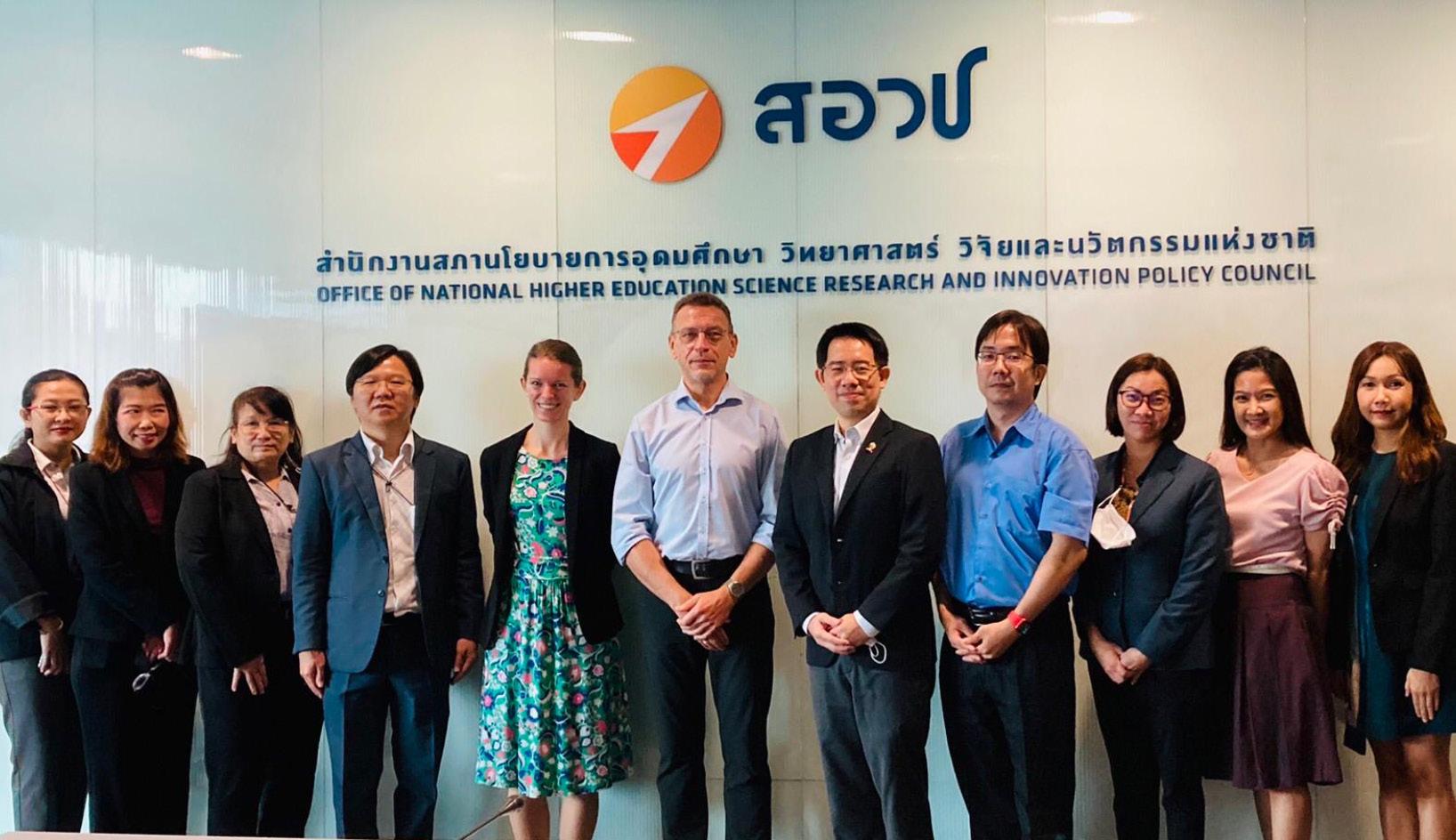
Thailand’s metal plating industry stands at a crossroads, grappling with the challenges posed by rapid technological advancements. Small and Medium-sized Enterprises (SMEs) within this sector are particularly susceptible, as they struggle to keep pace with the everevolving landscape of technology and innovation. At the forefront of this transformation is the Metallurgy and Materials Science Research Institute, Chulalongkorn University, led by the visionary Professor Yuttanant Boonyongmaneerat, Ph.D.
Among the myriad issues faced by Thailand’s metal plating industry, one looms largestthe critical skills gap pervasive throughout its workforce. From fundamental electrochemistry principles to the need for specialized professionals such as machine operators, quality inspectors, and cutting-edge researchers, this industry demands a diverse and dynamic skill set. However, the current educational infrastructure in Thailand falls short of delivering these specialized skills, leading to a significant “skills gap” affecting both existing professionals and those aspiring to join the industry.
In response to this formidable challenge, Chulalongkorn University has joined forces with the Fraunhofer Institute IPA and Thailand Professional Qualification Institutes to embark on an ambitious project. Their combined mission is to create a tailor-made Human Resource Development Platform meticulously designed to cater to the unique requirements of the metal plating industry. This holistic platform encompasses curriculum development, collaboration with stakeholders, and the creation of specialized course content, ensuring that education and training precisely align with industry demands and professional benchmarks.
A pivotal element of this endeavor is Continuous Vocational Education & Training (C-VET), emphasizing the continuous nature of learning. C-VET provides existing industry professionals with opportunities to augment and modernize their skill sets, guaranteeing their competitiveness and adaptability within a swiftly evolving field.
Yet, the project’s aspirations extend beyond the immediate horizon. It envisions creating a scalable model for human resource development capable of enhancing the capacities of diverse industry clusters. This ripple effect offers the potential to bolster the competitiveness of numerous sectors within Thailand’s economy.
In the context of Sustainable Development Goals (SDGs), this project harmonizes seamlessly with SDG 4: Quality Education. It actively advocates for the nurturing of a highly skilled and adaptable workforce, a prerequisite not solely for the metal plating industry, but for various sectors grappling with the need for adept professionals. In doing so, it underscores the pivotal role of education in preparing individuals to confront the challenges posed by a rapidly evolving job market.

In a bid to promote educational inclusivity and empower students outside the formal education system, the “Support and Development of Teachers and Out-of-School Children Mechanism” project came to life. This initiative was launched on July 15, 2020 by the Faculty of Education; specifically, it was undertaken by the “Children and Youth Development Research Unit” within the Department of Lifelong Education, led by Associate Professor Wirathep Pathumcharoenwattana, Ph.D. and a dedicated team. The project was sponsored by the Equitable Education Fund (EEF), established by the Equitable Educational Act of 2018. The EEF’s mission focuses on promoting and supporting children and youth without access to conventional education.
This initiative sought to address the needs of children outside the formal education system, striving to create a more diverse, flexible, and inclusive framework to reach these students in various provinces across the nation.
Activities within the scope of this endeavor included collecting data on both teachers and out-of-school children, and organizing interactive learning forums to assess the situations, needs, and developmental requirements of these children. Training sessions providing practical insights were conducted to enhance the capabilities of teachers working with these students. A knowledge repository was established to support the work of teachers with out-of-school children.
Furthermore, the project encompassed field visits, continuous support, coaching, and advisory roles for initiatives that received funding from the EEF. This collective approach involved various local and national stakeholders, such as provincial governors, education officials, local health agencies, and educational institutions.
The impact of the project was remarkable, directly benefiting 3,161 out-of-school children, and a total of 35,003 children involved in different projects. These children gained essential skills and developed a profound understanding of their own interests and abilities, empowering them to pursue skill development, livelihoods, and basic education beyond the conventional school environment.
By extending educational support to out-of-school children and enhancing the skills of teachers, the project contributed significantly to the broader goal of global educational inclusivity.
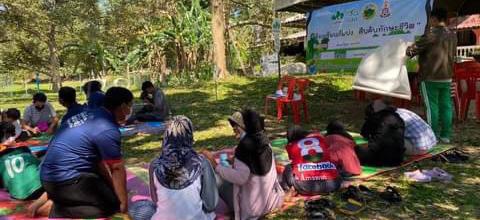
The project, “Development of Competencies for Non-Formal Education Teachers,” developed by Associate Professor Wirathep Pathumcharoenwattana, Ph.D., Head of Department of Lifelong Education, Faculty of Education, Chulalongkorn University, seeks to improve the competencies of teachers working with out-of-school children in Thailand.
It addresses several key issues related to the education of children who are not part of the formal education system. First, it aims to develop a competency-based model for the teachers working with these young learners, ensuring that they can provide the necessary education, support, and guidance to children facing diverse challenges. The project involves collaborating with various stakeholders, including government agencies, non-governmental organizations, and universities, to develop and implement this model.
The “Development of Competencies for Non-Formal Education Teachers” project aligns with SDG 4 by promoting inclusive education, enhancing teacher competencies, and providing equal opportunities for out-ofschool children, thereby contributing to the broader agenda of sustainable development.

Led by Assistant Professor Montakarn Chuemchit, Ph.D., Deputy Dean of the College of Public Health Sciences, Chulalongkorn University, this research project delves into the experience of violence among women migrant workers (WMW) coming to Thailand from Lao PDR, Myanmar, and Cambodia.
The study’s potential impact is significant. It will contribute valuable evidence regarding Violence Against Women (VAW) within the context of labor migration in the ASEAN region. It seeks to explore the intricate connections between migration and the vulnerability of WMW to violence. By identifying risk factors that expose WMW to violence and exploitation, as well as protective measures and coping strategies that can mitigate these risks, the research aims to prioritize the voices and perspectives of women and survivors. Ultimately, it aspires to inform program development and service delivery that is responsive to the needs of these vulnerable populations.
The primary target audience for this research comprises female migrant workers from Myanmar, Cambodia, and Laos who are currently residing in Thailand. This project aligns closely with Sustainable Development Goal 5 (SDG 5) - Gender Equality, as it addresses the issue of violence against women, particularly in the context of labor migration, and seeks to empower and protect these women through research-based solutions and advocacy.
In a pioneering move, Chulalongkorn University’s Faculty of Medicine in Thailand is reshaping healthcare for gender-diverse individuals. Led by Associate Professor Krasean Panyakhamlerd, M.D., this initiative is not only breaking new ground but also advancing Goal 5 of the Sustainable Development Goals (SDGs) – Gender Equality.
This visionary project responds to shifting social norms, legal changes, and the recognition of diverse gender identities. It aims to create a healthcare environment that is accessible, respectful, and non-discriminatory for all, regardless of age or gender identity.
Gender Health Clinic, King Chulalongkorn Memorial Hospital established in March 2018. The clinic’s primary mission revolves around three pillars:
Holistic Care: The clinic collaborates closely with the Center of Excellence in Transgender Health at Chulalongkorn University, ensuring that gender-diverse individuals receive comprehensive, coordinated care. This approach streamlines patient care and reduces wait times.
Knowledge Sharing: The project conducts national conferences on transgender health, educating medical and public health professionals. These conferences have attracted over 400 participants, fostering a deeper understanding of transgender healthcare.
Educational Resources: A significant milestone was the creation of Thailand’s first comprehensive transgender healthcare manual. It serves as a guide for medical and public health practitioners, promoting correct and up-to-date care practices.
The impact of this initiative is substantial:
Enhanced Access and Satisfaction: Gender-diverse individuals now experience more convenient and satisfying healthcare services. They feel respected and confident when seeking medical care, including the provision of psychiatric services and shorter waiting times.
Knowledge Dissemination: National conferences have empowered medical professionals and public health workers with the knowledge and practical skills required for transgender healthcare. The inclusion of renowned experts has also raised awareness among the general public, fostering greater acceptance of gender diversity.
Educational Resources: The comprehensive healthcare manual ensures that medical practitioners and public health workers across Thailand have access to standardized, upto-date transgender healthcare guidelines.
Research Contributions: Several research studies related to gender-diverse individuals have been published in prestigious international journals, serving as references for Thailand’s societal and healthcare advancements.
This groundbreaking project not only promotes Gender Equality (SDG 5) but also contributes significantly to reducing health-related inequalities, promoting the well-being of gender-diverse individuals, and conserving the country’s healthcare budget. As Thailand continues to lead in transgender healthcare, it sets an inspiring example for the world to follow in the path toward gender equality.

In a proactive initiative led by Assistant Professor Surat Kwanmuang, Ph.D., Chulalongkorn University’s Faculty of Engineering, in collaboration with student scholars, has embarked on a transformative project with far-reaching implications for clean water accessibility in Nan Province, Thailand. The project’s primary objective is to foster sustainable local development and cultivate a sense of social responsibility among community members. At its heart lies an annual engineering camp where students pool their talents and resources to make a tangible impact.
Through extensive surveys and data collection within the Sunta community of Nan Province, a pressing issue came to the forefront: water scarcity. Particularly during dry seasons, the community grappled with insufficient water for both consumption and agriculture, apart from corn cultivation. This scarcity had cascading effects, from encroachments on forest reserve areas to severe smoke pollution caused by the burning of corn stalks. While the village was situated near perennial streams, the volume and depth of water were inadequate for practical use. The solution, determined by the project team, lay in constructing check dams to trap water and establishing a robust system to channel water to reservoirs. Furthermore, storage tanks were needed to ensure a consistent water supply for the community.
The impacts of this project resonate powerfully with Sustainable Development Goal 6 (SDG 6) - Clean Water and Sanitation. By ensuring year-round access to clean water, the project directly addresses SDG 6’s mandate of ensuring the availability and sustainable management of water and sanitation for all. This not only contributes to environmental sustainability but also enhances the livelihoods and well-being of Sunta community residents. In addition to fulfilling the basic human right to clean water, the initiative has developed vital engineering skills in student scholars, bolstered their community engagement abilities, and imbued them with a profound sense of social responsibility. As a model for sustainable community development and responsible citizenship, the Faculty of Engineering’s Visawapat Dam at Huai Tang Ho in Nan Province sets a compelling example for realizing the objectives of SDG 6 on a local scale.


Chula Zero Waste is an initiative by Chulalongkorn University that involves the installation of 130 water dispensers across the university campus. These dispensers are part of a sustainable waste management project within the university, covering an area of 1 square kilometer. The dispensers cater to the needs of over 40,000 students and staff, and they are strategically located in various campus buildings, including offices and food facilities.
These water dispensers are regularly maintained and have their filters replaced as needed. Some of them, especially those in high-traffic areas like food facilities, may require more frequent filter changes given their heavy use.
Importantly, these water dispensers are designed to provide clean drinking water for everyone within the university community, not just students and staff. Approximately 19 dispenser locations have been identified across the campus. These locations include cafeteria areas, university buildings, and student dormitories, ensuring that anyone in these areas can access clean drinking water for free.
Beyond the convenience and accessibility of clean water, Chula Zero Waste aligns with Sustainable Development Goal 6 (SDG 6) - Clean Water and Sanitation. This initiative promotes access to clean water for all, regardless of status within the university. It also encourages the responsible use of water resources by reducing unnecessary plastic waste. Users can fill their reusable water bottles at these dispensers, eliminating the need to purchase bottled water in single-use plastic containers. This contributes to reducing plastic waste, with the potential to prevent up to three plastic bottles per visit.
In summary, Chula Zero Waste is an initiative that not only provides easy access to clean drinking water for everyone within Chulalongkorn University but also promotes sustainability by reducing plastic waste. It directly aligns with SDG 6, contributing to the global effort to ensure clean water and sanitation for all.

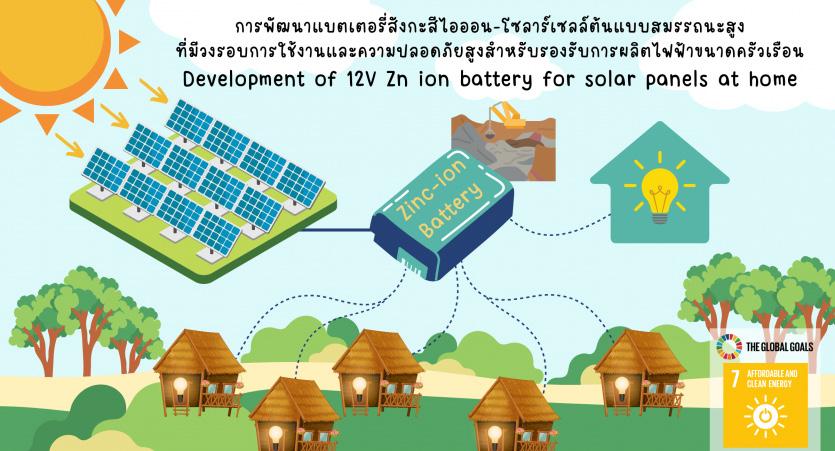
In a world where sustainable energy is becoming increasingly crucial, Professor Pranut Potiyaraj, Ph.D. and his team at the Metallurgy and Materials Science Research Institute, Chulalongkorn University, are pioneering an innovative project that holds the potential to revolutionize access to clean and affordable energy. Their research focuses on the development of high-capacity zinc-ion batteries integrated with solar cells, offering an efficient and cost-effective solution for household electricity production.
One of the main challenges of renewable energy sources like solar power is their intermittency. Traditional lithium-ion batteries, although widely used, are subject to safety concerns and the need to address production costs; however, zinc-ion batteries possess remarkable advantages. They boast high capacity, safety features, environmental sustainability, and cost-effectiveness, and the research team is able to capitalize on Thailand’s abundant zinc resources, particularly in the Doi Pha Dang in Tak Province, to produce these batteries.
The impact of this project is far-reaching, particularly in the context of Sustainable Development Goal 7 (SDG 7): Affordable and Clean Energy. By developing a dependable and affordable energy storage solution, the critical need for accessible and clean energy is addressed. This innovative approach can be a game-changer for off-grid communities and regions near protected areas, where traditional power infrastructure is impractical. Moreover, there are economic implications, such as reducing reliance on imported battery technology and fostering local production.
In summary, this innovative research project offers a promising path to continued energy access and potential solutions to affordability challenges. It also taps into Thailand’s natural zinc resources to provide clean, sustainable energy solutions. By creating a secure and cost-effective means of energy storage and distribution, this project aligns seamlessly with SDG 7’s goal of ensuring universal access to affordable, reliable, sustainable, and modern energy while it empowers communities with the tools they need to embrace renewable energy sources, bringing us closer to a future powered by clean and accessible energy for all.

Southeast Asia is undergoing a pivotal energy transition, driven by the Clean, Affordable, and Secure Energy (CASE) project. Led by Siripha Junlakarn, Ph.D., and orchestrated by the Energy Research Institute, Chulalongkorn University, this initiative is set to revolutionize the energy landscape across the region, aligning closely with the United Nations Sustainable Development Goal 7 (SDG 7).
The CASE project has its sights firmly set on four key nations: Indonesia, the Philippines, Thailand, and Vietnam. The primary objective of the project is to redefine the narrative and mindset surrounding energy transition. This paradigm shift is essential for fostering long-term impacts and, most importantly, safeguarding the environment.
At the heart of CASE lies the promotion of renewable energy sources; the project aims to increase the share of electricity generation derived from renewable sources. By doing so, the current heavy reliance on fossil fuels can be reduced, a crucial step in lowering greenhouse gas emissions and mitigating climate change. In addition to environmental benefits, this transition creates economic opportunities; moreover, the renewable energy sector generates employment opportunities while reducing damage to the environment and associated health issues.
The CASE project also offers valuable policy recommendations for governments that can empower public institutions to achieve their climate change objectives effectively. This multi-pronged approach embodies the spirit of SDG 7, advancing accessibility, affordability, and sustainability of energy sources while safeguarding the environment and fostering economic growth.
The CASE project’s target groups encompass a broad spectrum, including governments and other public sector organizations, local think tanks, civil society organizations, and the private sector, including financial institutions and investors. This comprehensive approach ensures that the initiative will not merely remain a blueprint, but will be transformed into a catalyst for real change in energy practices, accessibility, and climate action.

In a research endeavor led by Ornicha Anuchitchanchai, Ph.D., at the Transportation Institute, Chulalongkorn University, the focus is firmly set on understanding the evolving landscape of personal transportation in Thailand, with a particular emphasis on electric bicycles (e-bikes). The project seeks to unravel the intricate web of factors that influence consumers’ choices and attitudes toward e-bikes. Furthermore, it aims to shed light on the critical factors that prompt consumers to make the switch from traditional gasolinepowered vehicles to e-bikes. Crucially, this research anticipates future trends in consumer acceptance, offering a roadmap for sustainable transportation in Thailand.
This research project holds significant implications for Sustainable Development Goal 7 (SDG 7): Affordable and Clean Energy. By examining consumer preferences for e-bikes, it lays the groundwork for informed policy recommendations that can propel a shift away from conventional, fossil fuel-dependent vehicles.
Moreover, the positive impacts of this project reach into the realm of economic development. The project engages a diverse set of stakeholders, including governmental bodies like the Ministry of Energy, the Ministry of Industry, and the Ministry of Transport, along with industry players in the automotive sector. As it shapes policies and promotes e-bike adoption, the project stands as a catalyst for the broader goal of achieving clean and sustainable energy solutions in Thailand.


The Aquatic Resources Research Institute (ARRI) at Chulalongkorn University is actively involved in two projects led by Assistant Professor Nilnaj Chaitanawisuti, Ph.D., each addressing critical environmental concerns and contributing to Sustainable Development Goal 8 (SDG 8): “Decent Work and Economic Growth.”
Community-Based Learning Center for Flower Crab Aquaculture and Flower Crab Bank: ARRI has established a “Flower Crab Bank” in Chonburi, Thailand, which aims to revive the declining population of flower crabs along the coast. The project has introduced community-based learning centers to educate and train local communities in sustainable flower crab aquaculture. By creating economic opportunities and promoting responsible practices, this initiative aligns with SDG 8’s goal of fostering decent work and sustainable economic growth.
Technology and Innovation for Soft Coral Propagation: ARRI, in collaboration with Chulalongkorn University, is spearheading a project focused on the propagation and conservation of soft corals, which are crucial to marine ecosystems. With declining coral populations caused by climate change and human activities, the project’s objective is to develop technology and innovation for breeding and conserving soft corals. By promoting the sustainable trade of soft corals, this project directly contributes to SDG 8’s mission of economic growth through responsible economic activities.
Both projects exemplify ARRI’s dedication to addressing environmental challenges through technological innovation, job creation, and sustainable economic growth. Each showcases how academic research and community-based efforts can play a significant role in supporting the United Nations’ sustainable development agenda, particularly SDG 8.
A collaboration between the Faculty of Commerce and Accountancy, Chulalongkorn University, overseen by Associate Professor Sarun Chookhiatti, the Department of Business Development under the Ministry of Commerce, and the Department of Agriculture Extensions under the Ministry of Agriculture and Cooperatives is forging a path towards Sustainable Development Goal 8 (SDG 8).
This initiative aims to support Small and Micro Community Enterprises (SMCEs) by implementing efficient accounting systems. Through training and expertise offered through the initiative, community members are equipped with the essential tools needed to enhance their businesses. In essence, inclusive and sustainable economic growth is nurtured, aligning perfectly with SDG 8’s objectives.
Through this collaboration, students from Chulalongkorn University’s Faculty of Commerce and Accountancy are gaining valuable experience as they are empowered to design and implement accounting systems tailored to the specific needs of SMCEs. This initiative not only fosters the development of students’ leadership and management skills but also promotes their critical thinking, communication skills, and problem-solving abilities.
Moreover, the project’s engagement with SMCEs in the community ensures a direct impact on local businesses. The newly implemented accounting systems empower these enterprises to operate more efficiently, make informed decisions, and expand their market reach. As a result, the project stimulates economic activity, generates employment opportunities, and contributes to the overall economic growth of the community.
In conclusion, this collaborative project echoes the principles of SDG 8 by promoting sustained, inclusive, and sustainable economic growth. It demonstrates how academic institutions, government bodies, and community enterprises can work together to create a more prosperous and equitable future for all.


In an effort to revitalize the ailing forests of Nan Province in Northern Thailand, the Kasikorn Thai Foundation and Chulalongkorn University’s Faculty of Pharmaceutical Sciences have initiated a collaborative project. Under the leadership of Professor Pornanong Aramwit, Ph.D., this endeavor combines academic expertise with community involvement to promote sustainable agribusiness and economic recovery.
The primary goal is the restoration of forest areas that have been adversely affected by unsustainable agricultural practices. This initiative capitalizes on Nan Province’s potential for cultivating high-value crops and traditional herbs, and actively engages the local community in driving economic development.
The project’s impact is threefold -- forest rehabilitation, increased income for local farmers, and the international recognition of Thai herbal products -- all contributing to economic growth.
This initiative is specifically aimed at local herb farmers in Nan Province and those interested in sustainable agribusiness, closely aligning with UN Sustainable Development Goal 8, which focuses on promoting sustained, inclusive economic growth and providing decent work for all.
This collaborative effort clearly shows the synergy between academia and communities in pursuing sustainable development. It serves as a model for fostering inclusive agribusiness growth and promoting local economic revival.
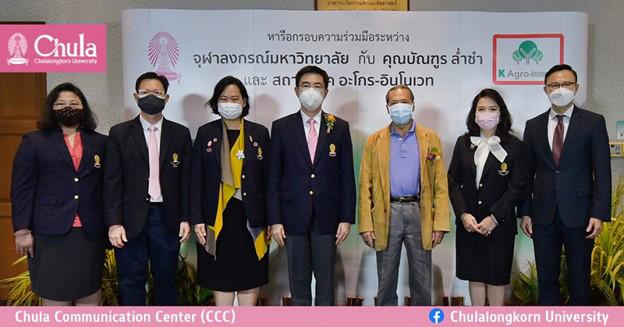
Chulalongkorn University’s School of Integrated Innovation (CSII), guided by Pietro Borsano, Ph.D., is spearheading an educational revolution through its ‘Industry Term Project.’ This pioneering initiative serves as a bridge between academia and industry, with a special focus on advancing Sustainable Development Goal 8 (SDG 8).
At its core, the ‘Industry Term Project’ equips students with practical skills, making them workforce-ready, and it directly aligns with SDG 8 by fostering sustained economic growth and providing opportunities for decent work. Industry partners collaborate with CSII by proposing projects that complement the school’s diverse courses, spanning Digital Transformation, business model innovation, R&D management, entrepreneurship, and more. This synergy offers dual benefits: students gain hands-on experience, while industry partners receive actionable solutions.
The project’s scope extends beyond traditional partnerships. Additional support from mentors, advisors, and domain experts ensures students receive expert guidance, and industry partners are able to access specialized knowledge, maximizing the project’s impact.
The leadership of Pietro Borsano, Ph.D. in this transformative project underscores Chulalongkorn University’s commitment to SDGs. Beyond addressing SDG 8, this collaboration fosters a culture of innovation and entrepreneurship, nurturing a skilled workforce and benefiting society at large as it promotes responsible business practices and environmental sustainability, reflecting the university’s dedication to driving positive change.
Thailand is undergoing significant demographic changes, transitioning into a “Completely Aged Society.” As the working-age population decreases, the nation is increasingly reliant on international labor; however, Thailand’s integration policies for these workers have faced criticism for being outdated. It is vital to review and reshape these policies to meet contemporary challenges.
Policy Review: This project aims to comprehensively review Thailand’s international labor integration policies from the past three decades, tracing their evolution and context.
Identifying Challenges: The project identifies gaps and challenges in these policies, considering the influence of social movements, public opinions, and labor issues.
Policy Recommendations: Evidence-based policy recommendations are developed based on research findings and stakeholder input to align policies with Thailand’s changing labor landscape.
This project, headed by Sayamol Charoenratana, Ph.D., Leader of the Human Security and Equity Research Unit, Social Research Institute, Chulalongkorn University, targets academics, government officials, NGOs, laborers, and migrant laborers. By examining existing policies and proposing evidence-based recommendations, it aims to bridge the knowledge gap regarding migrant integration policies in Thailand.
Aligned with UN Sustainable Development Goal 8 (SDG 8) of “Decent Work and Economic Growth,” this project fosters sustainable economic development and supports labor rights, contributing to achieving the goals of decent work and economic growth in Thailand. Moreover, it helps ensure that the nation’s labor force remains adaptable amid demographic and economic shifts.


The School of Agricultural Resources, under the guidance of Assistant Professor Tansiphorn Na Nan, Ph.D. at Chulalongkorn University, launched a novel initiative to enhance the cocoa supply chain in Nan Province, Thailand. This project, supported by the Program Management Unit for Area-based Development (PMU-A) from 2021 to 2023, addressed the challenges faced by the cocoa industry. It focused on improving product quality, aligning production with market demand, promoting organic farming, and enhancing both skills and employment opportunities. This initiative served as a learning station for farmers and promoted the development of high-quality cocoa.
In summary, the project enhanced the capacity of 200 cocoa farming families, and improved their ability to adapt to changing weather conditions. It increased the production of high-quality cocoa and empowered local businesses, including agricultural cooperatives, community enterprises, and cocoa product manufacturers. These outcomes contributed to the sustainable development of the cocoa industry in the region which was strongly aligned with Sustainable Development Goal 8 (SDG 8).

The “Digital Platform Innovation for Agricultural Competitiveness and Marketing” project, running from 2023 to 2024, led by Pornpod Sridan, Ph.D., Leader of BCG towards Sustainable Development Research Unit, Social Research Institute, Chulalongkorn University, aims to address key challenges in the agriculture sector, particularly in Chachoengsao Province, Thailand. This region relies heavily on agriculture, especially mango production, which contributes significantly to the local economy. However, the sustainability of the industry is threatened by several challenges, such as aging farmers, limited technology adoption, and insufficient market access.
The project’s objectives are as follows:
1. Study agricultural business and marketing challenges.
2. Develop agricultural business and marketing plans using the BCG economic model.
3. Create a digital platform to enhance farmers’ market competitiveness.
This project aligns with Sustainable Development Goal 8 (SDG 8) by addressing economic growth, decent work, and promoting sustained and inclusive economic development. It empowers farmers by enhancing their market access through digital platforms and improving their income opportunities. It also aims to boost the local economy and create a sustainable agricultural ecosystem.
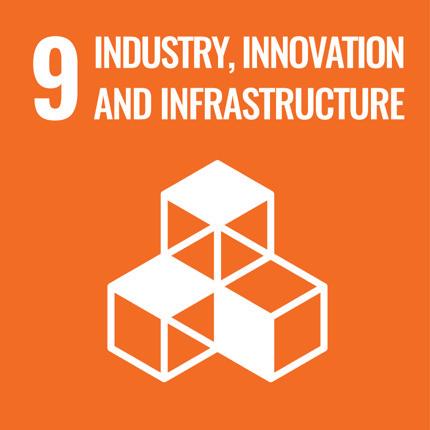
In a rapidly evolving global landscape, Thailand is making a strategic move to bolster its economic prowess through the power of research and innovation. Led by Associate Professor Manachaya Uruyos, Ph.D., from Chulalongkorn University’s Faculty of Economics, this visionary project not only underscores Thailand’s commitment to progress but also aligns seamlessly with Sustainable Development Goal 9 (SDG 9) - “Industry, Innovation, and Infrastructure.”
At the heart of this endeavor lies a profound economic theory: technology serves as the catalyst for sustained economic growth. It asserts that targeted investments in Research and Development (R&D) and the expansion of the R&D workforce are paramount.
This research initiative presents valuable insights into the intricate relationship between public R&D investments and sustained economic expansion. In doing so, it equips policymakers with the knowledge they need to steer Thailand’s development towards sustainable growth and innovation, squarely within the realm of SDG 9.
The potential impact is nothing short of transformative. By establishing a clear connection between R&D investments and long-term economic expansion, policymakers have the ability to wield this knowledge as a potent tool for informed decisions. This will, in turn, bolster Thailand’s progress towards sustainable economic growth and innovation, in perfect resonance with SDG 9’s overarching goal.
In the ever-evolving landscape of Thailand’s economy, the industrial sector has long been a cornerstone of growth and prosperity. However, as the world hurtles further into the digital age, the boundaries between traditional manufacturing and emerging service industries have begun to blur. This transformation is driven by evolving modern technology and a user-centric approach, creating new opportunities and challenges for Thailand’s economic landscape.
To address these shifts and bolster Thailand’s industrial competitiveness, Chulalongkorn University’s Faculty of Economics, led by Assistant Professor Thanee Chaiwat, Ph.D., embarked on a visionary endeavor, the “Economic Industry Development Project” for the 2023 fiscal year.
Defining the ‘Economic Industry’: One of the primary goals of this project was to define the concept of the “economic industry.” This nuanced definition was intended to provide clarity in understanding the scope and boundaries of this dynamic sector. By doing so, it becomes possible to chart a course towards targeted policies and support mechanisms that can elevate Thailand’s economic industry to new heights.
Categorizing Economic Industries: The project delved into categorizing economic industries -- a process that involved classifying industries into distinct categories as a vital step in formulating effective policies and development strategies. The project identified at least five promising branches of the economic industry, each with unique potential for growth over the next 1-5 years. The target for these strategies encompassed public-sector organizations, private enterprises, and stakeholders invested in Thailand’s economic future.
Crucial Collaboration and Policy Support: The project sought essential collaborations. Key among these was the partnership with the Office of Industrial Economics (OIE) under the Ministry of Industry. Together, they aimed to create and advocate for policies that could fortify Thailand’s economic industry sector, fostering sustainable economic growth.
The projected impact of this endeavor is immense. By clearly defining the “economic industry,” policymakers can direct resources and support more effectively, thus driving the growth of Thailand’s industrial sector. Furthermore, the categorization of economic industries offers a structured approach to developing strategies and policies tailored to specific industry branches. This ensures that efforts are focused, resources optimized, and developmental initiatives set up for success.
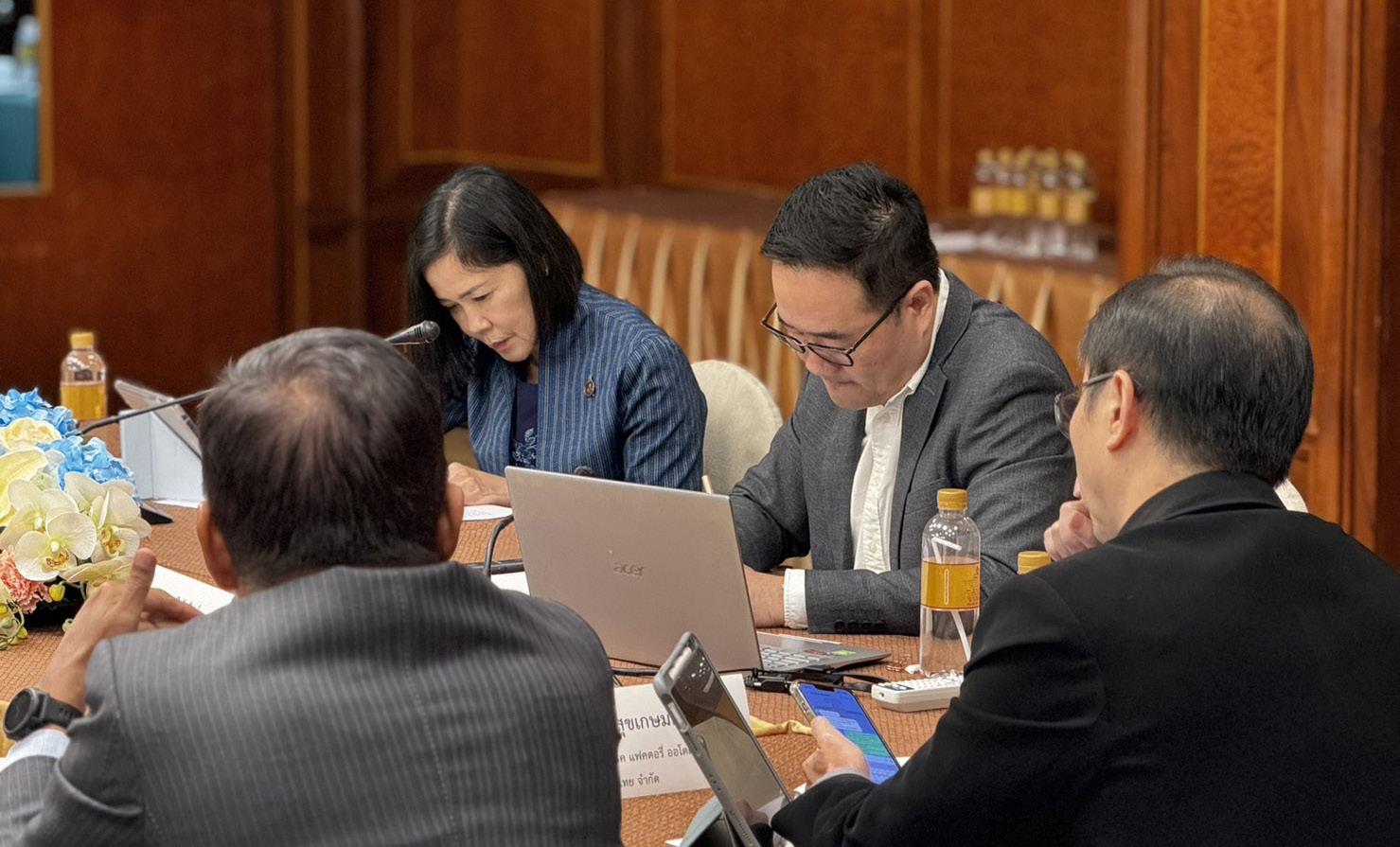

Thailand’s Department of International Trade Promotion (DITP) and Chulalongkorn University’s Faculty of Commerce and Accountancy, led by Professor Wilert Puriwat, D.Phil. (Oxon), have united in a transformative project aimed at advancing small and medium-sized enterprises (SMEs). With a profound commitment to ushering these businesses into the modern economic landscape, this collaborative endeavor seeks to provide academic support, disseminate critical knowledge concerning Thai business development, and empower SMEs.
At its core, this initiative represents a synergy between academia and industry, with a strong emphasis on enhancing practical skills and job readiness of those who own, manage, or are employed by SMEs.
While the primary partnership revolves around Chulalongkorn University’s Faculty of Commerce and Accountancy, SMEs, and the Department of International Trade Promotion, this project warmly welcomes additional expertise. This extended network ensures SMEs have access to specialized knowledge, a pivotal aspect in amplifying the project’s impact. To this end, the Faculty of Commerce and Accountancy serves as the link between the DITP and Thai SMEs, hosting knowledge sharing sessions, securing guest speakers, running academic activities and workshops, publicizing information from the DITP, and promoting joint research efforts involving the three parties. Meanwhile, the DITP is in charge of holding exhibitions on international trade and supplying news and updates to the faculty.
It is expected that, with the substantial resources and solid know-how of the two organizations, the alliance will successfully boost the competitive edge of Thai SMEs, assisting them to grow steadily and contribute to the Thai economy in a sustainable manner.
This project delivers extensive benefits to SMEs, individuals, and communities. By augmenting the knowledge, skills, and competitiveness of SMEs, a substantial contribution is made to economic growth, in direct alignment with SDG 9. Furthermore, this collaboration nurtures a culture of innovation and entrepreneurship, essential facets of a thriving modern economy.
The Faculty of Architecture at Chulalongkorn University, with guidance from Assistant Professor Shanya Orasutthikul, Ph.D., is spearheading a groundbreaking initiative: crafting sustainable 3D printing filaments using recycled PETG plastic, aptly named rPETG. Notably, this undertaking strongly aligns with the United Nations Sustainable Development Goal 9 (SDG 9).
The prevalent 3D printing method, particularly fused deposition modeling (FDM), has become a focal point of environmental concern due to its linear production model, which not only exhausts resources but also significantly contributes to waste. This laudable project epitomizes the principles of SDG 9 by actively promoting sustainable industrial practices, nurturing innovation, and bolstering the development of essential infrastructure.
At its core, the rPETG filament project embodies the concept of a circular economy. This visionary initiative repurposes PETG plastic to create 3D printing filaments, championing the philosophy of reduce, reuse, and recycle; the project serves as an encouraging catalyst for PETG recycling, potentially inspiring similar endeavors.
The ripple effect of this project offers benefits not only with respect to plastic recycling and 3D printing but also with respect to educational institutions and organizations ardently committed to the cause of sustainability.
In essence, this project harmoniously blends the realms of sustainability and innovation within the 3D printing domain, establishing an impressive alignment with SDG 9. Its inherent potential to revamp resource management and reshape industry practices marks a significant stride towards a world of 3D printing that is inherently eco-conscious.
Led by Associate Professor Sutee Anantsuksomsri, Ph.D. from Chulalongkorn University’s Faculty of Architecture, this research venture, in collaboration with Dr. Adele Esposito Andujar from the Centre national de la recherche scient fique (CNRS), France, and Assistant Professor Dr. Nij Tontisirin from Thammasat University, delves into the profound impact of the Belt and Road Initiative and Chinese Investments on urban evolution within Southeast Asia. Employing Thailand’s Eastern Economic Corridor (EEC) as a compelling case study, this project has unearthed valuable insights into the region’s urban transformation.
The study’s implications span across various dimensions of sustainability—social, economic, and environmental. By scrutinizing the intricate interplay between the Belt and Road Initiative, Chinese investments, and urban evolution, this research contributes to the development of sustainable strategies that foster inclusive growth, economic prosperity, and ecological equilibrium. Its ripple effects are anticipated to benefit not only the bustling city of Pattaya but also its diverse populace and the Economic Bases Development Office for Eastern Economic Corridor.
This endeavour aligns seamlessly with the aspirations of Sustainable Development Goal 9 (SDG 9) - Industry, Innovation, and Infrastructure. It underscores the project’s dedication to advancing sustainable urban development and enhancing the connectivity, resilience, and inclusivity of vital infrastructure. As the Belt and Road Initiative continues to reshape urban landscapes across Southeast Asia, this research serves as a guiding light, ensuring that progress is harmonized with sustainability, benefiting present and future generations alike.
The Open Chula Data project, spearheaded by Chulalongkorn University’s Office of Information Technology and led by Mr. Tharakorn Chongchua and Mr. Chin Ruengvilairat, served as a pivotal hub for open data accessibility. Its mission was to democratize data, enabling everyone to access and harness information for diverse applications, such as analysis, innovation, and collaboration. By facilitating data utilization, this initiative fueled creativity and innovation across various domains, ultimately fostering positive change and progress.
Running from May 3, 2022, to February 26, 2023, the project published data in various formats, offering data previews, visualizations, and automatic Application Programming Interfaces (APIs) for the datasets. Furthermore, in addition to disseminating open data within Chulalongkorn University, this initiative extended its reach to the broader public by sharing datasets with the Open Government Data of Thailand. This democratization of information empowered citizens and interested individuals to access Chulalongkorn University’s data, leveraging it for various purposes. For instance, educational data could be analyzed to enhance and align curriculum development with the rapidly evolving global landscape. This supported human resource development in Thailand, equipping individuals with the knowledge and skills needed to thrive in an ever-changing world and fostering a culture of creativity and innovation that benefits society at large.
Open Chula Data resonates deeply with Sustainable Development Goal 9 (SDG 9) - Industry, Innovation, and Infrastructure. By championing open data, this project contributed to building resilient, inclusive, and sustainable infrastructure. It promoted innovation by making valuable data accessible to all, fostering technological advancement, and enabling progress toward more equitable and sustainable development.
The swine industry is facing a crisis due to the African swine fever outbreak, necessitating an urgent increase in pig production. One crucial aspect of this challenge is optimizing swine reproduction, particularly the breeding of sows. Traditional methods for detecting the estrus cycle in sows have often been subjective and challenging to scale up. This project introduces an innovative solution, utilizing progesterone testing strips to precisely monitor the estrus cycle in female pigs, significantly enhancing swine breeding efficiency.
Challenges Addressed
1. Inefficient Estrus Detection: The conventional method of estrus detection in female pigs is based on behavioral observation, rendering it unreliable and subject to human error.
2. Prepubertal Gilt Identification: Identifying prepubertal gilts before sexual maturity remains a daunting challenge, leading to inaccuracies in swine breeding.
This project aims to:
1. Develop Reliable Progesterone Testing Strips: Create dependable progesterone testing strips to accurately detect estrus cycles in swine.
2. Enhance Swine Breeding Efficiency: Improve breeding efficiency by accurately identifying optimal breeding times, thereby reducing losses.
3. Extend Sow Productivity: Increase the productive lifespan of breeding sows, resulting in higher piglet production.
4. Boost Economic Returns: Contribute to the sustainability of the swine industry by delivering economic benefits to farmers.
This collaborative effort between researchers from Associate Professor Kittinan Komolpis, Ph.D., The Institute of Biotechnology and Genetic Engineering, and the Faculty of Veterinary Science has successfully developed progesterone testing strips. These strips will be integrated into swine field studies and commercial pig farms.
This project aligns directly with Sustainable Development Goal 9 (SDG 9) - “Industry, Innovation, and Infrastructure.” By introducing innovative technology into the agricultural sector to address swine breeding challenges, the project enhances industry practices, promotes innovation, and strengthens infrastructure in the swine farming sector. The expected outcomes include improved swine production, reduced losses, and greater economic benefits for farmers. This project plays a significant role in fostering technological advancement and industry growth, making a noteworthy contribution to SDG 9’s objectives.
The success of this project holds the potential to revolutionize swine breeding practices, demonstrating the positive outcomes that can be achieved through technology and innovation in the agricultural sector.


In Thailand, solar cell systems are widely used for clean energy production. However, as these systems age or become damaged, the solar panels need to be dismantled and disposed of, leading to an increasing amount of hazardous electronic waste. To address this issue, research has focused on recycling and reusing these discarded solar panels in construction materials.
Studies conducted in laboratories by Assistant Professor Lapyote Prasittisopin, Ph.D., Faculty of Architecture, Chulalongkorn University, have shown that solar cell glass can effectively replace traditional building materials, such as cement and coatings. This approach can help reduce resource consumption, minimize waste, create value from discarded products, and promote sustainable development. Additionally, it has the potential to enhance aesthetic qualities by effectively reflecting light and reducing the need for reflective paint.
This initiative aligns with the United Nations Sustainable Development Goal 9 (SDG 9); it specifically targets innovation and infrastructure development by exploring alternative uses for discarded solar cell glass. By incorporating recycled solar cell glass into construction materials, this project contributes to reducing waste, promoting resource efficiency, and improving the sustainability of infrastructure and industry by addressing the issue of hazardous waste generation from solar panels and seeking to create more sustainable construction materials.
Overall, this research initiative endeavors to develop innovative practices that align with SDG9 and promote a more sustainable approach to infrastructure and construction materials through circular design principles.

The “Insight Wat Pho” application, developed by Wilasinee SuksawangDarnthamrongkul, Ph.D., the Faculty of Architecture at Chulalongkorn University, transforms mobile devices into interactive companions for exploring Wat Pho, a renowned historical and cultural site. Users can simultaneously enjoy tourism and educational experiences as they learn about history, architecture, art, and Thai Buddhist beliefs through audio descriptions in either Thai or English, images, and augmented reality (AR) technology.
The app addresses the challenge of preserving the cultural heritage of Wat Pho in the face of large crowds and limited accessibility due to the vast and intricate nature of the site. It offers interactive activities, including a photo scavenger hunt featuring ancient photographs, and an augmented reality quest to find hidden treasures within the temple. These activities make tourism and learning at Wat Pho more engaging and enjoyable.
“Insight Wat Pho” promotes sustainable development by enhancing cultural understanding and education while contributing to the preservation of historical sites. By making knowledge more accessible and enjoyable, the application helps create a learning community and lifelong opportunities for exploring and caring for Wat Pho’s heritage.
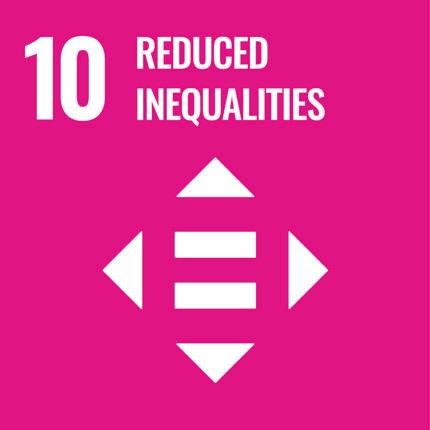
In a world that increasingly recognizes the importance of inclusivity, Chulalongkorn University’s Faculty of Economics is making significant strides towards reducing inequalities and promoting more equitable educational access. Collaborating with EDeaf (Education for the Deaf), this project is a testament to the university’s commitment to empowering individuals with hearing impairments.
The core mission of this initiative is to inspire creativity, nurture latent potential, and create diverse learning opportunities for young members of the deaf community, but it doesn’t stop there. The project also extends its reach to prepare volunteer teachers. These teachers participate in simulated teaching sessions, gaining handson experience in imparting various skills, ranging from photography to culinary arts. This preparation equips them with a profound understanding of the distinctive learning environment within deaf classrooms.
One of the project’s key goals is to develop teaching methods that are effective yet sensitive to the unique needs of the deaf community. By nurturing this understanding among educators, this initiative strives to contribute to nationwide educational equality, and paves the way for a teaching format and curriculum tailored to deaf education, creating lasting impact and inclusivity.
This project resonates deeply with Sustainable Development Goal 10 (SDG 10) - Reduced Inequalities. It embodies Chulalongkorn University’s vision of a society where opportunities are equitable, and no individual is marginalized. ECON For the Deaf is a shining example of the university’s commitment to building a more inclusive world, ensuring that “every voice is heard, and every talent is nurtured.”
In 2016, the Faculty of Medicine introduced the Interprofessional Collaboration Mobile Clinic, led by the esteemed Associate Professor Nond Rojvachiranonda, M.D. This pioneering initiative was conceived to address the healthcare needs of individuals with facial and cranial abnormalities, particularly those residing in rural areas. The overarching goal is to provide these individuals with access to high-quality medical care, effectively eliminating the financial and logistical burdens often associated with seeking treatment in urban hospitals. It is important to note that, while there is an established system for referring rural patients to urban healthcare facilities, that system can often be cumbersome, leading to significant time and financial losses for the patients.
The year 2020 brought plans to expand the project’s reach to cover more regions, specifically the northeastern region, with a focus on Buriram Province, and the northern region, including Chiang Rai Province. These expansion plans, however, were thwarted by the rapid spread of the COVID-19 pandemic.
Nevertheless, in 2022, the project remains steadfast to its original mission: to provide comprehensive, high-quality care for individuals with facial and cranial abnormalities throughout the nation, effectively alleviating the financial burdens they might otherwise face.
The impact of this initiative is threefold:
1. Enhanced Healthcare Access: The project ensures that individuals with facial and cranial abnormalities, irrespective of their geographical location, can access comprehensive care without the hindrance of financial constraints.
2. Data for Development: A significant byproduct of the project is the compilation of invaluable patient data. This data plays a pivotal role in informing the development of preventive care, high-quality medical treatment, and academic research.
3. Strengthened Collaboration: The project has fostered a robust collaboration between King Chulalongkorn Memorial Hospital, the Medical Council of Thailand, and provincial healthcare professionals. This collaborative effort is essential in not only providing medical care but also ensuring the ongoing improvement and accessibility of that care.
The primary target audience for this project comprises individuals with facial and cranial abnormalities residing in various provinces. This population includes both new cases -individuals who have not previously received care from the project -- and returning patients who have received prior care at the project’s facilities.
The Interprofessional Collaboration Mobile Clinic stands as an exemplary effort in bridging the healthcare accessibility gap, particularly for rural residents with facial and cranial abnormalities. This aligns perfectly with the principles of Sustainable Development Goal 10, Reduced Inequality, as it ensures that access to quality medical care is not hindered by financial or geographical constraints. In a world where healthcare inequality is a pressing issue, this initiative is a beacon of hope, emphasizing the importance of accessible and equitable healthcare for all.



In today’s rapidly evolving urban landscape, one of the most pressing issues confronting cities worldwide is urban homelessness, which is characterized by vulnerability, and which is intricately linked to structural changes, economic hardships, and social risks within urban environments. In the bustling city of Bangkok, Thailand, an innovative project has emerged that aims to develop knowledge, improve well-being, and foster networks for homeless and impoverished individuals.
The Urban Homelessness Project, led by Mr. Anuk Pitukthanin, operating under the Institute of Asian Studies at Chulalongkorn University, is a comprehensive effort to address the challenges faced by homeless and impoverished individuals in urban areas, particularly in Bangkok. This project recognizes the intricacies of homelessness and how it relates to the structural transformation and socio-economic risks inherent in the modern urban environment.
The Urban Homelessness Project aligns seamlessly with the principles and objectives of Sustainable Development Goal 10. By targeting homelessness, the project contributes significantly to reduction of inequality in urban settings. Furthermore, it promotes inclusive and sustainable cities, addressing the growing disparities between the homeless and those with secure housing. A distinctive aspect of the project is the active involvement of homeless individuals themselves; this empowers them and acknowledges their role in finding sustainable solutions.
One of the significant impacts of the project is the creation of an “Innovative Housing Service” model. This model emphasizes a network of shared housing arrangements, designed to facilitate access to housing for homeless individuals, and helping to break down the barriers they face when seeking traditional housing options.
The project emphasizes collaboration as a cornerstone of its approach, forming partnerships with government agencies, civil society organizations, and academic institutions. This multi-stakeholder approach is crucial to addressing the multifaceted issue of homelessness effectively.
The Urban Homelessness Project in Bangkok is a notable example of a localized effort with global implications. It addresses the complex issue of urban homelessness by enhancing well-being, fostering innovative housing solutions, and, most importantly, reducing inequalities. It actively contributes to the global mission of creating a more equitable world where all individuals, regardless of their housing status, can lead dignified lives. The project’s collaborative approach, focus on empowerment, and dedication to reducing inequality can serve as a model for other cities striving to combat homelessness while advancing the SDGs.
In the serene islands of Mu Ko Surin, Thailand, Associate Professor Narumon Arunotai, Ph.D., Social Research Institute, Chulalongkorn University, leads a significant project. This project, while focusing on cultural preservation, addresses the issue of statelessness within the Moken community.
The project involves comprehensive data collection to understand the challenges and strengths within the Mu Ko Surin Moken community. Surveys have been carried out in about 80 Moken households to gather data on living conditions, livelihoods, public health, and future perspectives. Moreover, the project relies on active collaboration with governmental agencies, addressing the issue of statelessness and fostering personal development.
This initiative seeks to reduce inequality and enhance the security and basic rights of the Moken people. In addition, it promotes multisectoral collaboration, breaking down barriers and tackling inequality at its roots while it preserves Moken heritage and ensures sustainable development.
Overall, the project combines cultural preservation with inclusive development. It empowers the Moken people and offers hope for marginalized communities globally, aligning with the core principles of SDG 10.
COVID-9 left its mark on Thailand’s economy, especially in Pattani, where unemployment surged during the pandemic. In response, a collaborative project aims to reduce inequality and promote sustainable livelihoods.
Led by Assistant Professor Yupin Patarapongsant, Ph.D., of the Sasin School of Management at Chulalongkorn University, this project, “Examining Personal Savings Behavior and Financial Risk A Case of Islamic Poverty in Pattani, Thailand,” unites several partners, including the National Research Council of Thailand (NRCT), the Provincial Community Development Office, the Islamic Bank of Thailand, and the Islamic Committee of Pattani Province. Under Assistant Professor Yupin Patarapongsant’s guidance, the initiative seeks to empower Pattani’s communities by enhancing economic resilience and advocating financial prudence.
The endeavor revolves around three key goals. Firstly, it aims to bolster economic resilience through skill development, especially in agriculture, to combat poverty. Secondly, it encourages savings behavior and risk management to protect against financial crises. Thirdly, it stimulates local economies by creating value-added products and promoting local brands.
This undertaking serves residents of Rata Pan Yang, Yaring, and Pattani, where economic disparities are pronounced. Activities involve data collection, COVID-19 support, digitalizing governmental agencies, grassroots development, and applying marketing theory to influence savings behavior.
The project aims to promote savings behavior and risk management, fostering social change. It also seeks to develop a user-friendly financial application tailored to the Muslim community, eliminating complexities, and ensuring equitable access to financial services.
This collaborative initiative epitomizes a proactive strategy for reducing inequality in Pattani, closely aligned with SDG 10. By focusing on skill development, economic resilience, and income generation, it empowers marginalized communities. Moreover, the program’s dedication to fostering savings behavior and providing tailored financial solutions ensures equitable access to tools for economic prosperity. This collaborative initiative offers hope for a more equitable and prosperous future.
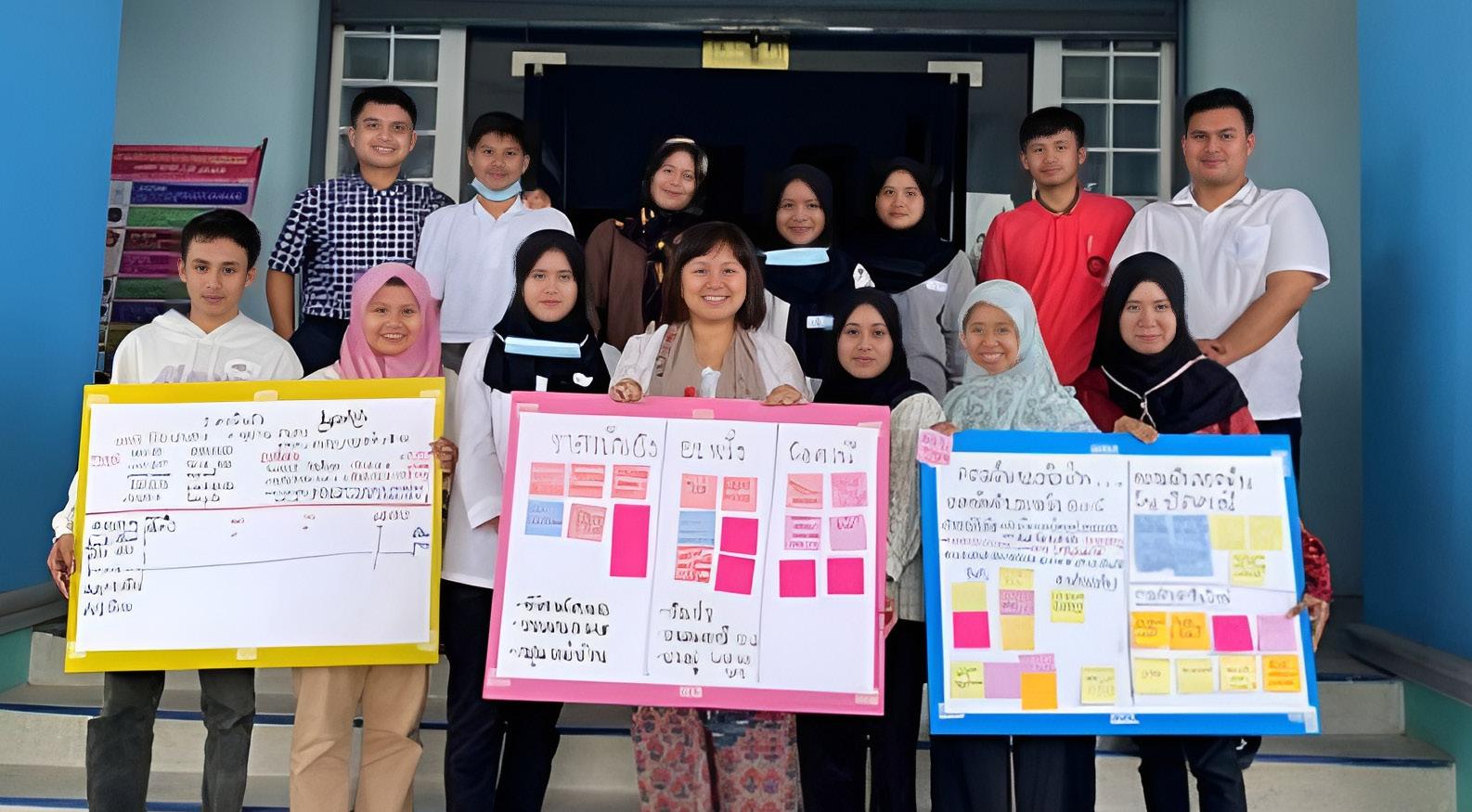

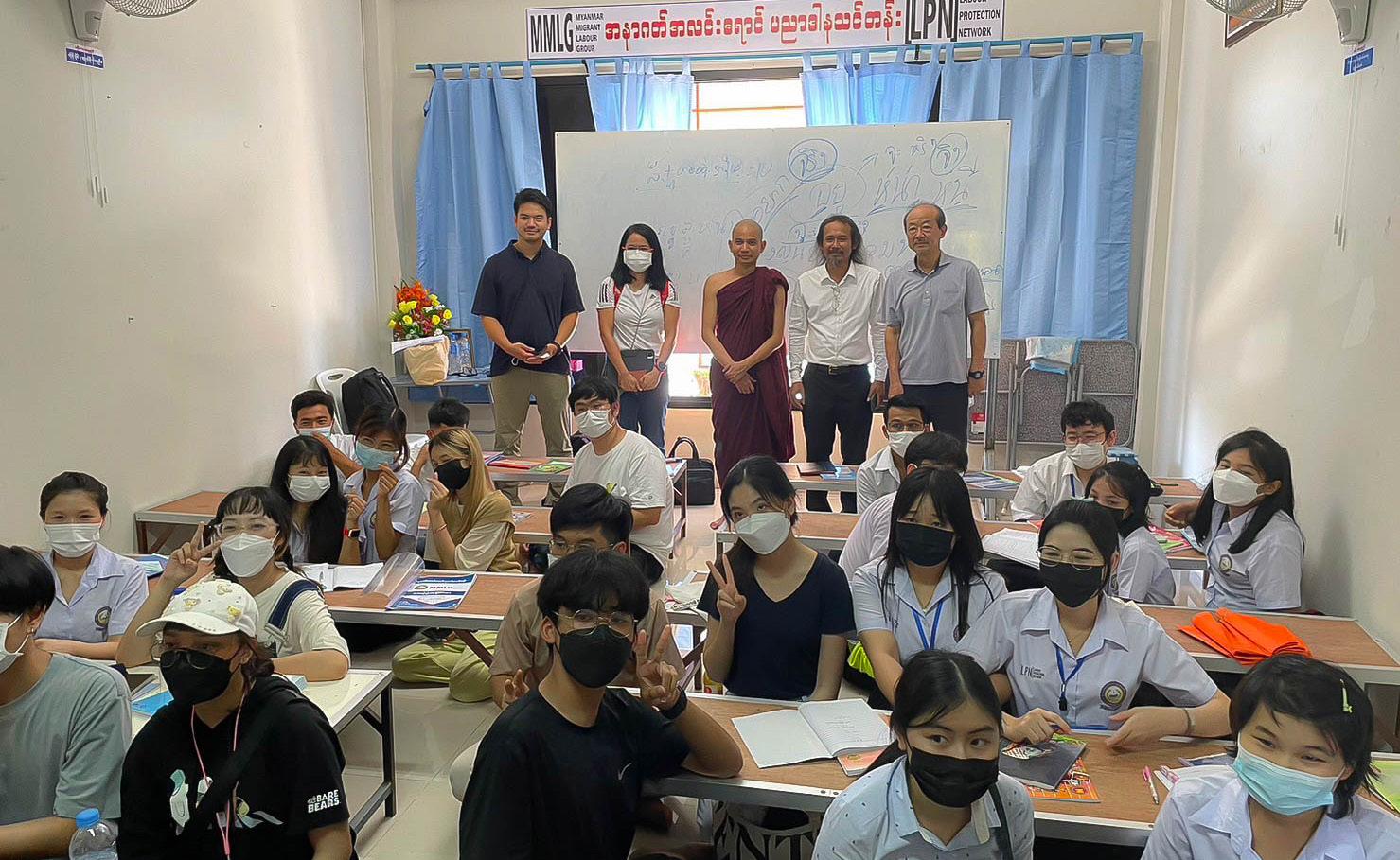
In the Faculty of Communication Arts, Chanettee Tinnam, Ph.D., leads a significant initiative known as the “Community Classroom” project. This endeavor aims to equip students with the necessary skills to become responsible media practitioners. It achieves this by immersing students in social laboratory settings and intimate journalism, encouraging them to explore pressing societal issues aligned with the Sustainable Development Goals (SDGs), and promoting in-depth fieldwork in diverse and distinct communities.
The core objective of this project is for students to conduct fieldwork in various communities to study and comprehend social issues. Leveraging their media expertise, they create advocacy media that addresses these challenges. In the 2022 academic year, students selected four locations for intensive fieldwork:
• The Center for Training and Child Development in Baan Kanjanapisek, focusing on child and youth issues within the justice process.
• Migrant labor communities in Samut Sakhon province, in collaboration with the Labor Rights Promotion Network Foundation, addressing transnational labor concerns.
• Prostitution areas in Nana Alley, in partnership with the Alliance Anti-Trafic (AAT), addressing human trafficking issues.
• The Khlong Lod community, in partnership with the Issarachon Foundation, with a focus on homelessness issues.
All collaborating organizations provided comprehensive support to facilitate a deep understanding of these complex situations.
This project not only enhances students’ media and communication skills but also nurtures their sense of responsibility toward society. It plays a significant role in reshaping pedagogical approaches, fostering community relationships, and establishing networks through National Partnerships.
In conclusion, the “Community Classroom” project within the Faculty of Communication Arts is a compelling example of how students can be empowered to become advocates for societal change through media and journalism. This initiative strongly aligns with the principles of Sustainable Development Goal 10, Reduced Inequality.
Education is a universal right, yet many children face educational crises. To address this issue, the Equitable Education Fund (EEF) launched a pioneering project in four Thai provinces: Phitsanulok, Khon Kaen, Yala, and Bangkok. Operating from July 1, 2022, to February 28, 2023, this project collaborated with academic units at Chulalongkorn University.
Led by Surasak Kao-Iean, Ph.D. and Associate Professor Wirathep Pathumcharoenwattana, Ph.D., the project drew on expertise from Chulalongkorn University’s Children and Youth Development Research Unit, the Department of Educational Research and Psychology, and the Department of Lifelong Education.
The project’s goal was to prevent students from leaving the education system during crises. It employed an area-based approach, using provincial teams and case managers to assess, screen, and provide tailored support to at-risk students.
The objectives were:
• Knowledge Gathering: Collect insights from Child and Youth Assistance Centers to develop guidelines and policies.
• Case-Based Insights: Study real cases to understand dropout factors.
• Driving Policy Change: Create awareness to catalyze policy changes.
This project benefited the EEF by enhancing its support for students in crisis. It aided core teams in provinces, offered a practical guide for professionals, and aligned with SDG 10, working to reduce educational inequalities.


The “Development of Waterfront Community Sustainable Tourism Program in Bangkok Suburban Area” project, led by Associate Professor Thanapan Laiprakobsup, Ph.D., Deputy Dean of Faculty of Political Science, Chulalongkorn University, and his team, aims to promote sustainable tourism and community development in suburban Bangkok, specifically the Khlong Bang Phai waterfront community in Nonthaburi province.
This project seeks to:
• Explore Community Identity: Because understanding the dynamics of waterfront communities in suburban areas in response to changing contexts is crucial, the project delves into the identity of these communities by considering their physical and cultural aspects..
• Foster Local Participation: To bridge the gap between local and urban communities, and because strong relationships depend on understanding community identity, societal changes, and active local engagement, the project emphasizes local involvement.
• Develop Tourism Program: Researchers have spent time analyzing the Khlong Bang Phai community, identifying strengths (e.g., multicultural heritage, proximity to the waterfront, and fruit gardens) and weaknesses (e.g., pollution and limited accessibility), and then proposed a comprehensive tourism program that extends beyond immediate tourist spots, including activities such as temple visits and organic fruit garden tours.
• Enhance Public Spaces: The project suggests developing public areas within the community, particularly at Wat Mo Lee, to support the local tourism program. These spaces serve as recreational areas for residents, tourists, and urban dwellers, fostering social bonds and a sense of community.
Aligned with Sustainable Development Goal 11 (SDG 11) - Sustainable Cities and Communities, this project revitalizes and sustains suburban communities by promoting cultural preservation, environmental sustainability, and community engagement. It aims to create a tourism program that educates visitors about the community’s identity and connects them to the region’s economic and social contexts.

In Saraburi Province, a captivating project has been unfolding that intertwines art, culture, and community spirit in a vivid mosaic. Led by Pichai Thurongkinanon, Ph.D., from the Faculty of Fine and Applied Arts, the “Phra Phutthabat Street Art” initiative transcends mere artistic expression. In fact, it embodies Sustainable Development Goal 11 - Sustainable Cities and Communities, revealing art’s potential as a catalyst for urban transformation.
At its core, “Phra Phutthabat Street Art” is a testament to collaboration. Local stakeholders, including the Phra Phutthabat community, the Saraburi Provincial Cultural Office, Phra Phutthabat Municipality, Phra Phutthabat temples, and Phra Phutthabat Hospital, have united in a remarkable public-private partnership that mirrors the essence of SDG 11, emphasizing inclusive, safe, resilient, and sustainable urban environments.
This initiative breathes life into local legends, weaving them into the urban tapestry. Inspired by literary treasures like the Ramayana epic and Nirat Than Thong Daeng by Thammathibet, Prince Senaphithak, the artistry transcends aesthetics to encapsulate community cultural heritage.
“Phra Phutthabat Street Art” celebrates community identity and creativity. Ordinary streets now burst with vibrancy, showcasing contemporary collaborative artistry, revitalizing public spaces and empowering individuals to embrace their creative potential.
The primary beneficiaries are the residents of Phra Phutthabat and neighboring communities, who have worked tirelessly to transform their urban surroundings into a canvas that embodies the spirit of SDG 11. This project is inspiring, demonstrating art’s transformative power to unite and uplift communities.
“Phra Phutthabat Street Art” symbolizes the convergence of art, culture, and community, forging the path to sustainable urban living. This initiative highlights how creativity can drive positive change, creating a brighter, more sustainable community for all.

In the serene landscapes of Amphoe Ubolratana in Khon Kaen Province, Thailand, a transformative project seeks to cultivate sustainable development and nurture community well-being. Spearheaded by Professor Supawan Tantayanon, Ph.D., from the Faculty of Science, this initiative harmoniously aligns with several Sustainable Development Goals (SDGs); however, its primary focus lies firmly on SDG 10.
At the core of this undertaking lies the Thung Prong community, an area that had, earlier, initiated the concept of an organic farming network. However, a significant challenge loomed large - how to entice local farmers to fully embrace this ecological approach. Conventional farming practices that relied on chemical inputs were leaving an indelible mark on the land.
Driven by a visionary quest to ensure secure and sustainable farming practices across the entire community, this project has carried out extensive research. Its mission is to identify pragmatic approaches that can sow the seeds of commitment to chemical-free agriculture, nurturing a legacy of good health for generations to come.
The effects of this project manifest in two essential ways. Firstly, the project encourages an expansive shift towards the adoption of safe farming practices within the community, significantly reducing chemical contamination in this fertile land. Secondly, this transition towards healthier, organic farming directly translates into a bounty of improved community health.
In conclusion, this initiative not only displays how sustainable farming practices can lead to healthier communities but also highlights its active role in supporting multiple SDGs.
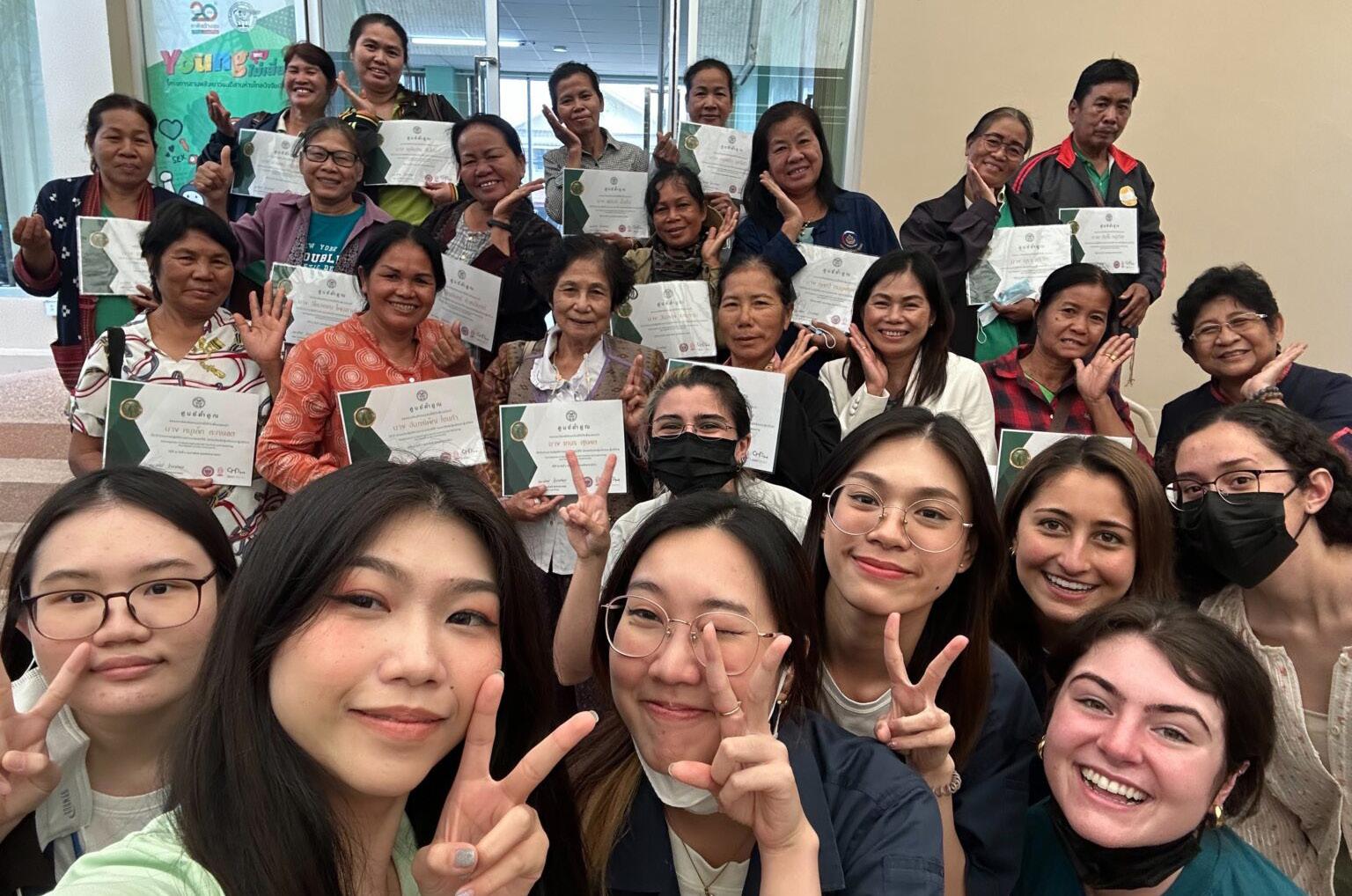
Thailand faces the challenges of transforming into an aging society. Thai ARi, an extension of Chulalongkorn University’s Chula ARi project by the College of Population Studies, Chulalongkorn University, strives to address these challenges and enhance the quality of life for senior citizens across the nation.
This initiative, in alignment with UN Sustainable Development Goal 11 (Sustainable Cities and Communities), involves collaboration between local organizations, government offices, community leaders, and senior citizens. Its primary focus areas include healthcare, technology and innovation, the physical environment, the economy, public participation, and society.
The key focus areas are data-driven policy, healthcare and medical services, economics and sociology, and lifelong learning promotion.
Thai ARi aims to serve as a model for creating sustainable, inclusive communities nationwide, where senior citizens play an active role, contributing to their well-being and societal development.

In the fast-paced concrete jungles of modern urban existence, the toll on mental and physical health is becoming increasingly evident. Overcrowding, pollution, and the enduring effects of the COVID-19 pandemic have amplified the need for innovative solutions that can alleviate stress and enhance well-being in cities. One such remarkable undertaking, led by Assistant Professor Kanokwalee Suteethorn, Ph.D., from the Faculty of Architecture, is the “Forest Bathing, Healing Art and Healing Landscape” project. This project advocates for a transformative urban experience where nature and art are the keys to healing.
Urban environments, characterized by ceaseless noise, air pollution, and high-stress routines, have long been associated with heightened levels of anxiety and stress-related health problems. It is not merely a personal affliction; the impact ripples across economies and societies, posing complex challenges. Acknowledging this, the “Forest Bathing” project aims to examine the roles that nature and art can play in mitigating urban stressors, seeking a healthier and more holistic urban future.
At the core of this initiative is the practice of “forest bathing,” an idea of Japanese origin that does not involve water, but, instead, immerses individuals in the therapeutic embrace of nature. It is about connecting with the natural environment using all of one’s senses. This immersive practice has been shown to reduce stress hormones, lower blood pressure, and contribute to overall mental well-being, providing a nature-infused balm for urbanites.
The project’s mission is to unravel the synergistic relationship between nature and art within urban landscapes. By harnessing the healing properties of both, it explores how thoughtfully designed urban environments can alleviate stress, aid recovery, and enrich the lives of city residents.
The impact of this initiative spans wide:
Advancing Research: By delving into the realm of urban forest bathing, the project is advancing the knowledge surrounding its potential benefits for city dwellers.
Disseminating Knowledge: Sharing insights about healing landscapes and the influence of nature and art on well-being is contributing to a deeper understanding of the environment’s role in human health.
Building a Network: The establishment of a research and education network focused on nature-based therapy and healing environments holds the promise of future discoveries.
Promoting Well-being: Providing knowledge and activities that enhance well-being for students, faculty, and the broader public are key elements of this initiative.
The “Forest Bathing, Healing Art and Healing Landscape” project enriches our comprehension of the therapeutic potential of nature and art, and offers pragmatic insights into designing cities that prioritize the health, happiness, and harmony of residents.


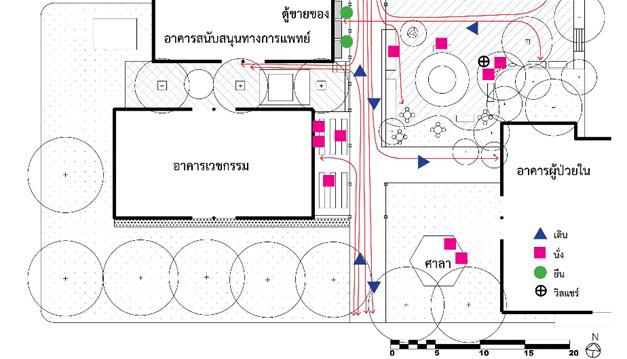
Nestled in the heart of Central Thailand, a groundbreaking project is sprouting, driven by Associate Professor Pavadee Ansusinha from the Faculty of Architecture. At its core, it resonates profoundly with Sustainable Development Goal 11 (SDG 11) - Sustainable Cities and Communities.
This initiative acknowledges something often overlooked – the immense influence of the natural environment on the healing process – and it highlights the role that the surroundings of healthcare institutions play in patient recovery, stress alleviation, and swift recuperation from illnesses. Most notably, the design and development of this project have been tailored to align with the region’s unique hot and humid climate.
The project’s impact reaches far and wide. Its primary aim is to craft outdoor spaces that are thoughtfully designed to address the specific climatic challenges of Central Thailand. These spaces serve more than just functional purposes; rather, they provide patients with serene environments conducive to their overall well-being.
The beneficiaries of this project are diverse. Hospital users are the most direct beneficiaries, experiencing the benefits of these revitalizing outdoor areas firsthand. However, physical management teams overseeing these spaces also gain valuable insights into maintaining and enhancing their therapeutic value, while researchers in related fields find fertile ground for further exploration and study.
While this project’s central focus lies in enhancing outdoor environments within community hospitals, its alignment with SDG 11 remains clear. By creating sustainable and therapeutic outdoor spaces within healthcare settings, it actively contributes to the broader aim of nurturing sustainable and resilient communities.
In summation, this initiative transcends conventional architecture, and comprises a holistic undertaking that embraces sustainability, compassion, and well-being. By recognizing the potent role of nature in the healing process and translating this insight into innovative design and development, the initiative demonstrates how sustainable practices in healthcare can pave the way for greener, more resilient cities and communities.
The Yala Stories festival showcased the rich cultural and natural heritage of Yala, a province often associated with terror; however, the youth of the province undertook to celebrate its diverse and harmonious culture. The event, organized by various local institutions, allowed young people to express their views on their hometown’s potential and future, focusing on sustainability and unity among individuals with different ethnic and religious backgrounds.
Yala Stories aimed to demonstrate the province’s capacity for sustainable growth and development, with locals realizing their town’s potential. Throughout the festival, the Metro Hotel was transformed into a platform for youth to share their perspectives through various media. The event included talks, seminars, cooking demonstrations, walking tours, performances, and a chef’s table dinner.
Mayor Pongsak Yingchoncharoen emphasized Yala’s abundant resources, rich history, and cultural diversity. He highlighted the importance of the younger generation’s involvement in shaping the town’s future and expressed his joy that they were committed to their hometown.
This initiative, led by Associate Professor Ritirong Jiwakanon, Ph.D., Director of Institute of Thai Studies, Chulalongkorn University, aligns with Sustainable Development Goal 11 (SDG 11) - Sustainable Cities and Communities as it seeks to transform Yala into a “learning city” where people of all ages benefit socially, intellectually, and economically from the region’s unique resources, promoting unity and sustainable development in the community.
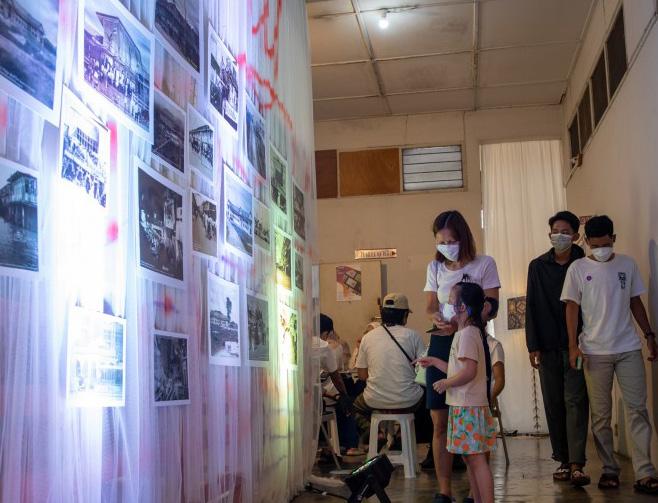

In the serene coastal village of Baan Thung Noi in Prachuap Khiri Khan, Thailand, where the sea meets a beautiful shoreline, a project of significant environmental importance is taking shape. Spearheaded by Assistant Professor M.L. Siripastr Jayanta, from the Faculty of Science, this initiative focuses on waste management and aligns closely with Sustainable Development Goal 12.
Baan Thung Noi is a small fishing village renowned for its scenic beauty. However, like many communities, it grapples with waste management issues. These challenges not only affect the aesthetic appeal of the village but also its overall health and well-being.
The project aims to address these waste management issues by working closely with the community to find suitable solutions. By involving the residents in the process, the initiative seeks to establish effective and sustainable waste management practices.
The envisioned impacts of this project are twofold. Firstly, it strives to create a cleaner and more visually appealing community with sustainable waste management practices in place. Secondly, by achieving this, it opens doors to potential tourism opportunities, fostering economic growth and further community development.
The primary beneficiaries of this project are the residents of Baan Thung Noi who will directly benefit from the improved waste management system.
In conclusion, the waste management project in Baan Thung Noi reflects the essence of SDG 12 - Responsible Consumption and Production. By addressing waste management challenges at the local level and actively involving the community, it highlights the significance of sustainable development within the context of SDG 12.

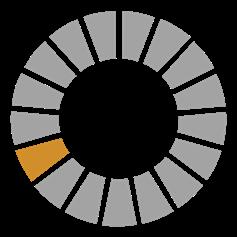
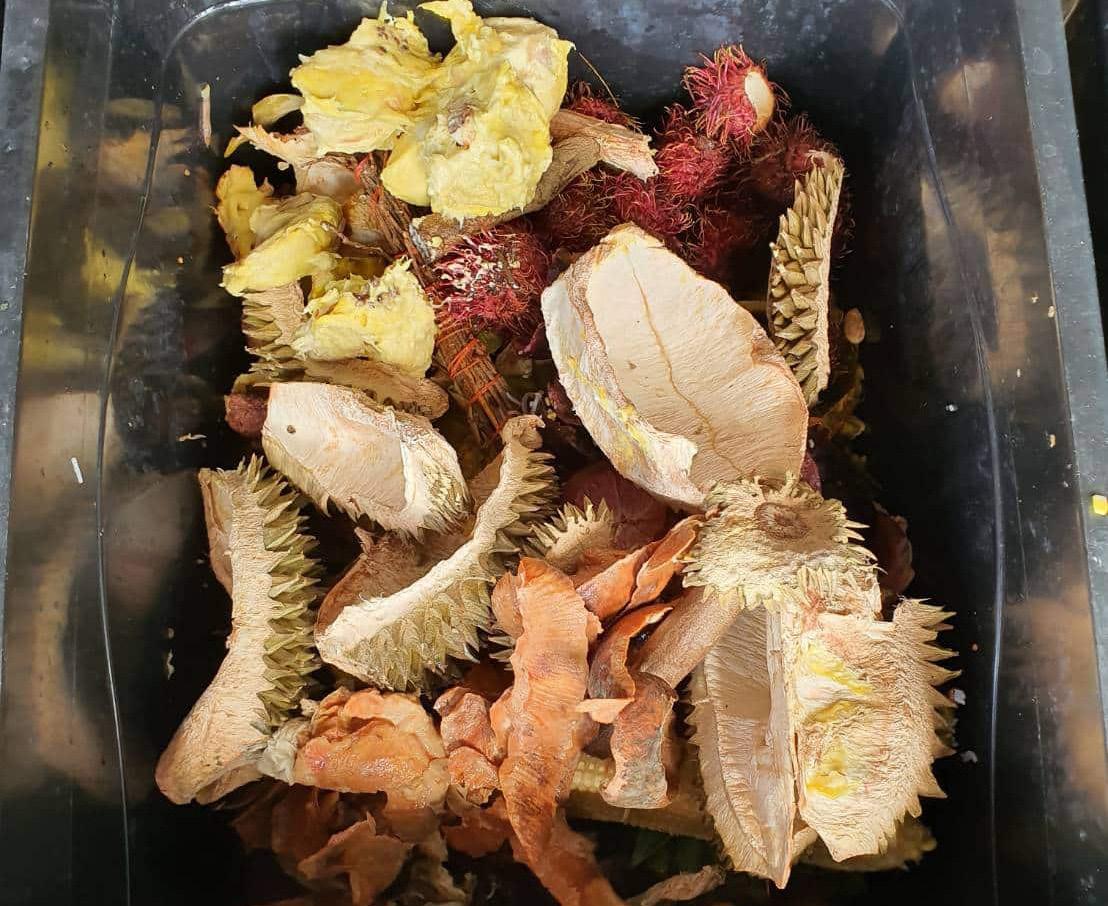
Chulalongkorn University Graduate School (CUGS) is championing the “Nakhon Non Model for Sustainable Food Waste Management” project in collaboration with Nonthaburi Municipality and the Technology and Informatics Institute for Sustainability (TIIS). This initiative, led by Associate Professor Nuta Supakata, Ph.D., addresses the pressing issue of food waste through efficient segregation and management practices, replacing conventional landfill methods.
The project offers several benefits, including reduced landfill waste, economic value measurements, and innovative waste management applications. Crucially, it aligns with four UN Sustainable Development Goals: Zero Hunger (SDG 2), Sustainable Cities and Communities (SDG 11), Responsible Consumption and Production (SDG 12), and Climate Action (SDG 13). Recognized for its significance, the project has received support from the National Research Council of Thailand (NRCT).
This impactful endeavor exemplifies responsible consumption and production (SDG 12), setting a precedent for sustainable food waste management in Thailand.
Led by Yotwadee Hawangchu, Ph.D. and organized by the Environmental Research Institute, this effective and sustainable waste management requires collaborative efforts from all sectors, beginning with addressing the root causes, such as the production of goods and advocating for legislation that promotes recycling and the circular economy. Simultaneously, it necessitates instilling a sense of responsibility for waste management in the public.
At the community level, the key to tackling waste-related issues is community involvement in waste reduction and source separation. Support from local authorities, including communication, awareness campaigns, and providing necessary equipment and materials, is essential. Furthermore, it involves establishing infrastructure and services for community waste separation and the proper disposal or recycling of various waste types, guided by sound academic and safety principles.
This project’s core mission aligns closely with Sustainable Development Goal 12 (SDG12) - Responsible Consumption and Production. By implementing the zero-waste concept and involving local communities in sustainable waste management practices, it contributes to reducing waste generation, promoting responsible consumption, and advancing the principles of the circular economy. Ultimately, this initiative seeks to create more responsible and sustainable waste management practices at the community level, which is fundamental for achieving SDG12’s targets.
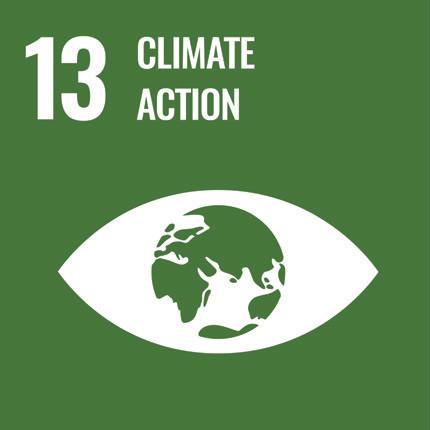
Northern Thailand faces persistent challenges with forest fires, and, in particular, the resulting air pollution affecting local communities. To address this critical issue, a comprehensive study was initiated, led by Assistant Professor M.L. Siripastr Jayanta , the Faculty of Science, aimed at reducing forest burning through the development of an innovative fire tracking website.
The project encompassed several key components:
Youth Education: A crucial aspect involved educating students aged between 11 and 14 on how to effectively utilize the fire tracking website, accompanied by a rigorous evaluation of their proficiency in using this technology.
Community Engagement: The project extended its reach to engage local youth, providing them with the knowledge and skills required to create fire maps, which are instrumental in monitoring and managing forest fires.
User-Centric Approach: Valuable insights were gathered through user feedback via surveys, providing critical data for the continuous enhancement and optimization of the fire tracking website.
Sustainability Initiatives: In line with the project’s commitment to long-term forest protection, discussion, and collaboration with officials from Mae Ping National Park resulted in the innovative “Students Tour Guide” project, aimed at ensuring the sustainability and continuity of forest fire reduction efforts.
The collaborative efforts and ideas generated during the project have set the stage for future developments. This project aligns directly with Sustainable Development Goal 13 (SDG 13) - Climate Action, emphasizing the urgent need for forest fire and pollution mitigation efforts.
The endeavor to combat coastal erosion, protect marine life, and preserve mangrove ecosystems on Koh Klang Island, Krabi Province, has been a collaborative effort marked by gratitude, support, and unwavering dedication.
Thanks to guidance and invaluable insights from the advisors of the project as well as sponsorship from the Population and Community Development Association (PDA), the knowledge and time devoted to this project has significantly contributed to its success.
Moreover, the mentorship of Professor Dr. Santi Pailoplee and Assistant Professor Jes Kettratad, coupled with the leadership of Assistant Professor Numpon Insin, Ph.D., of the Faculty of Science, has helped drive the enthusiastic cooperative efforts from students and faculty at the Ban Koh Klang and Ban Klong Prasong schools. The involvement and dedication of all parties has ignited a passion for change that has radiated through the community.
This initiative perfectly aligns with SDG13 - Climate Action. Coastal erosion, a direct consequence of climate change, poses a significant threat to communities like Koh Klang. By tackling this issue and nurturing marine and mangrove ecosystems, the project has actively contributed to climate resilience and environmental sustainability. The collective efforts serve as a testament to the power of community-driven change, echoing the spirit of SDG 13 in the pursuit of a more sustainable and resilient world.


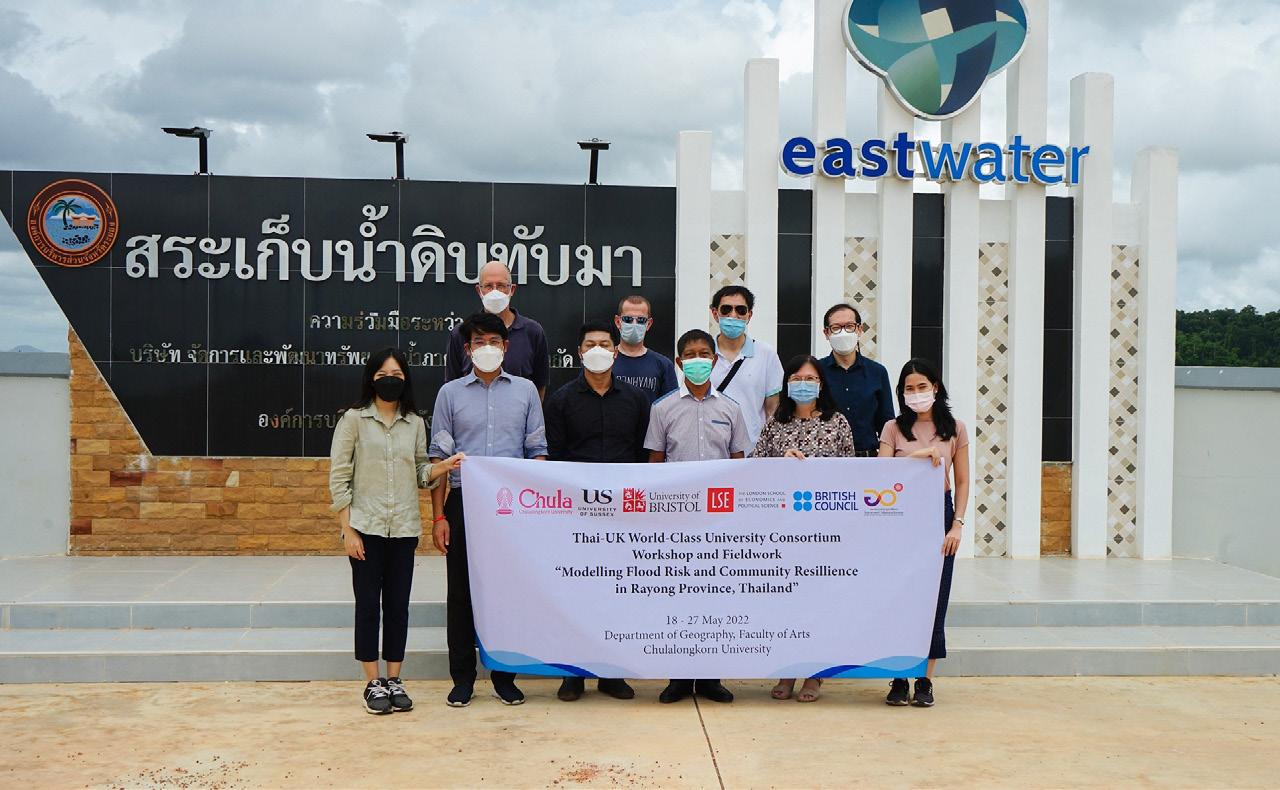
Thailand is among the countries most severely affected by extreme weather, and is faced with recurrent flooding due to the global climate crisis. Addressing this local challenge with global significance, the Faculty of Arts, Chulalongkorn University, led by Associate Professor Pannee Cheewinsiriwat, Ph.D., joined forces with the University of Sussex, London School of Economics and Political Science, and the University of Bristol, in a collaborative endeavor that spanned from February 2022 to January 2023, and brought together a dedicated team comprising not only Associate Professor Cheewinsiriwat and her associates from Chulalongkorn University but also Dr. John Barlow and Dr. Yi Wang from the University of Sussex. The project also enjoyed the expertise of Prof. Hyun Bang Shin from SEAC at the London School of Economics and Political Science, and Prof. Jonathan Rigg from the University of Bristol. Financial support for this initiative was provided by the Thai-UK Worldclass University Consortium and the British Council.
This interdisciplinary partnership employed cutting-edge methodology and expertise in climate science, physical geography, social science, and economics. High-resolution climate modeling was used to create flood risk maps and study the impact of government policies on community responses to flooding. Additionally, the project explored how community knowledge and resilience can inform improved flood management policies for both government and private sectors in Thailand.
In addition, Chulalongkorn University postgraduate researchers joined the project, strengthening the institution’s position as a global center for geography and climate science research and education. This initiative promoted knowledge exchange, benefiting the UK partners with insights into hydrological modeling and flood management policy in Thailand.
Anticipated outcomes encompass a joint pilot research project involving seven trained Thai researchers, the formulation of a research proposal for prospective grants, and collaborative publications presenting the project’s findings. This comprehensive effort offers a platform for knowledge exchange and capacity-building, positioning Chulalongkorn University as a global hub for geography and climate science research and education.
In line with Sustainable Development Goal 13 (SDG 13) for Climate Action, Nan Province is embarking on a transformative journey towards sustainable tourism with an eye on carbon neutrality.
This initiative, led by Puntita Tanwattana, Ph.D., Environmental Research Institute, Chulalongkorn University, comprises two key objectives. First, it scrutinizes the carbon footprint of tourism in Nan Province. Second, it outlines a blueprint for low-carbon tourism, charting a course toward a carbon-neutral future.
The project focuses on five key tourism activities:
• Nan Low-Carbon Products: Encouraging eco-friendly product choices.
• Nan Low Carbon Walking Street: Promoting low-carbon event and festival.
• Nan Low Carbon Organic Meal: Redefining gastronomy with locally sourced, low-carbon organic meals.
• Nan Low Carbon Hotels: Implementing low-carbon practices in accommodations.
• Nan Zero Carbon Travel Route: Designing carbon-neutral travel routes for tourists.
This project is delivering a profound impact, providing markets for low-carbon tourism and carbon credit sales, and spurring economic growth. Communities are gaining sustainable skills and boosting their resilience against climate challenges. Moreover, this research translates findings into practical solutions, going beyond academia.
The commitment of Nan Province to develop carbon-neutral tourism exemplifies SDG 13’s essence, blending economic growth and environmental protection, and it should inspire other regions to pursue similar sustainable paths, fostering a greener, more sustainable planet.
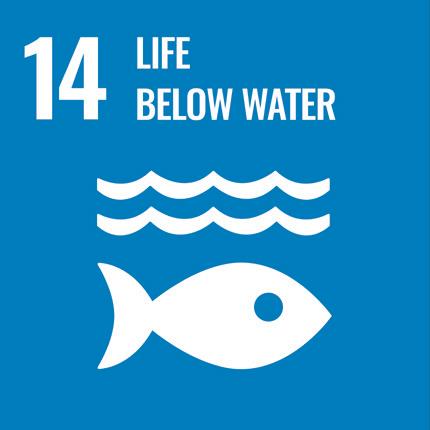
In collaboration with the Environmental Research Institute and Aquatic Resources Research Institute (ARRI) of Chulalongkorn University, Kasetsart University’s Si Racha Fisheries Research Station, and Ko Sichang Municipality, Chulalongkorn University’s Assistant Professor Vorapot Kanokkantapong, Ph.D., Department of Environmental Science, Faculty of Science, spearheaded a year-long project from January to December 2023 to combat microplastic pollution and advance sustainable waste management.
Microplastic pollution, a pressing global concern, poses significant threats to terrestrial and marine ecosystems. These minuscule plastic particles, measuring less than 5 millimeters, accumulate toxins and harm both the environment and human health.
The project’s primary objectives included identifying, categorizing, and quantifying plastic waste and microplastics as well as raising awareness and promoting responsible plastic use and waste disposal practices. The research was carried out on Ko Sichang Island in Chonburi Province, Thailand, known for its ecological significance and maritime activities.
By fostering behavioral changes among locals and tourists on Ko Sichang Island and encouraging sustainable waste management, the project aimed to mitigate plastic pollution’s impact on both land and marine environments. In line with Sustainable Development Goal 14 (SDG 14)
- Life Below Water, the initiative sought to preserve marine resources and enhance the island’s overall environmental sustainability. Ultimately, the project aims to improve the quality of life for the local community while promoting responsible tourism practices.
Tropical peatlands are important ecosystems that offer vital ecosystem services, from biodiversity support to carbon storage and natural hazard regulation. Additionally, they provide food, materials, and clean water to local communities.
However, human activities like draining and fires, compounded by climate change, pose severe threats. These pressures disrupt the ecosystem’s balance and release large carbon emissions, contributing to climate change.
Under the guidance of Associate Professor Sakonvan Chawchai, Ph.D., Faculty of Science, a research project is decoding the history and current status of tropical peatlands. The mission includes:
Understanding Past Records: Exploring historical peatland data to decipher how they have responded to climate changes.
Analyzing Land-Use Changes: Establishing links between historical data and contemporary land-use patterns, crucial for sustainable resource management.
Collaborating with Stakeholders: Engaging stakeholders in peatland resource management to ensure a comprehensive approach to protection.
This research project is essential for preserving tropical peatlands. Its outcomes will enrich the understanding of these ecosystems and provide a blueprint for their preservation, contributing to SDG 14 by ensuring the longevity of life below water and the critical ecosystem services the peatlands provide.
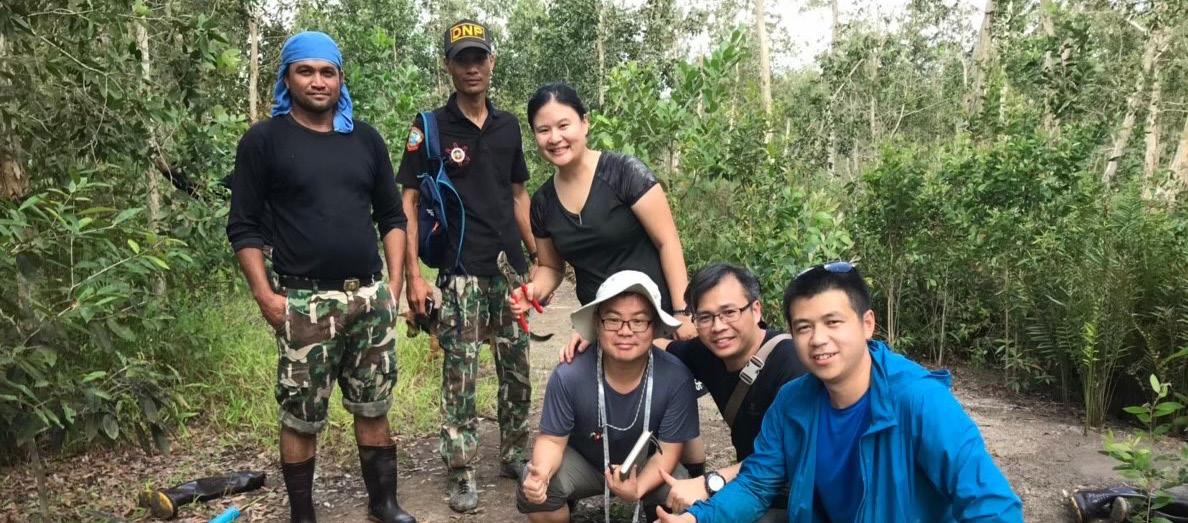
Led by Thanida Haetrakul, Ph.D., Chulalongkorn University’s Veterinary Medical Aquatic Animal Research Center of Excellence (VMARCE), Faculty of Veterinary Science has introduced Innovareef, comprising innovative cement-based structures designed to support coral reef recovery. These lifelike structures are tailored for planula settlement and growth, and are intended to help address and ameliorate the deterioration of Thai coral reefs caused by global warming and human activities.
Innovareef helps accelerate coral reef recovery and promotes ecotourism while functioning as smart monitoring stations for marine environments. By mimicking natural coral structures and using materials like cement, Innovareef provides an attractive and sustainable solution that aids in coral reef recovery. VMARCE’s research team has integrated marine monitoring equipment into Innovareef, enabling it to measure water temperature, tidal forces, and pH levels.
Since 2020, Innovareef has been installed along the coasts of Chonburi province, including Si Chang Island, Lan Island, and Sattahip. These cost-effective structures are lightweight, easy to transport, and simple to install, and the rapid colonization of marine life around Innovareefs indicates the technology’s success in enhancing biodiversity and supporting coral settlement and growth.
Aligned with Sustainable Development Goal 14 (Life Below Water), Innovareef offers hope for the restoration of coral reefs and the preservation of marine ecosystems. Recognized by the National Innovation Awards in 2020, this innovative, low cost and highly effective technology highlights the potential of innovative solutions in marine conservation.
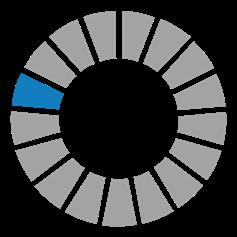
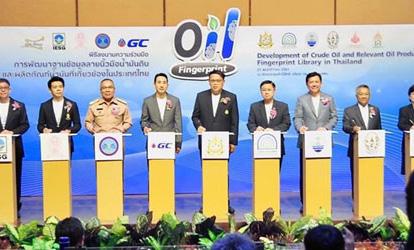
Associate Professor Siriporn Jongpatiwut, Ph.D., of the Petroleum and Petrochemical College, Chulalongkorn University is working rigorously on the issue of oil spills, which poses a significant threat to marine and coastal ecosystems worldwide, necessitating effective remediation and prevention measures. However, identifying spilled oils has proven to be a complex challenge, particularly as these oils undergo various weathering processes at sea, transforming them into tar balls before they reach shorelines. These weathering processes, which include evaporation, photo-oxidation, and biodegradation, bring about substantial changes in the physical and chemical composition of the oil. To address this challenge, biomarker compounds such as hopanes and steranes are commonly used for oil fingerprinting due to their high durability and stability.
In Thailand, a collaborative effort involving ten organizations, encompassing government and private sector groups, and spearheaded by the Pollution Control Department, Ministry of Natural Resource and Environment, was initiated through a Memorandum of Understanding (MOU) in November 2018. The central objective of this collaboration is the “Development of Crude Oil and Relevant Oil Product Fingerprint Library in Thailand.” As part of this partnership, the Petroleum and Petrochemical College plays a crucial role in analyzing oil fingerprints using advanced GCxGC TOF-MS technology. Additionally, the Pollution Control Department, in conjunction with its collaborators, has recently released the “Manual for Collecting and Analyzing Crude Oil, Spilled Oil, and Tar Balls.” This manual serves as a knowledge-sharing resource for relevant sectors involved in oil spill management.
An ongoing project, spanning from 2022 to 2024, focuses on the development of a comprehensive database containing information about crude oils commonly used in Thailand. This database is a vital step in the enhancement of crude oil identification capabilities in the country, thus contributing to more effective responses to oil spills, and aligning with the objectives of Sustainable Development Goal 14 (SDG 14) - Life Below Water.
In the pristine waters of Koh Phangan, Thailand, a groundbreaking collaboration involving Chulalongkorn University, and more specifically, the Aquatic Resources Research Institute (ARRI), led by Se Songploy, Ph.D., Walailak University, and Chevron Thailand Exploration and Production, has revitalized seven retired petrochemical platforms. These former industrial structures have been repurposed into artificial reefs in an innovative endeavor designed to assess their impact on the environment and local communities.
The project’s primary objective is to enhance marine resource conservation in the region by repurposing platforms previously dedicated to oil production. The installations were successfully completed in September 2020, marking a significant milestone. This forward-thinking initiative is directly in line with Sustainable Development Goal 14Life Below Water, emphasizing the critical importance of conserving marine resources and the positive influence on the livelihoods of local communities dependent on these vital ecosystems.
Through this visionary undertaking, Thailand is exhibiting its dedication to the preservation of marine life and the advancement of sustainable practices. While the project currently serves as a pioneer for the alternative utilization of retired petrochemical platforms within Thailand’s maritime boundaries, it also has the potential to inspire similar initiatives both nationally and globally.

Led by Associate Professor Pantana Torngern, Ph.D., at Chulalongkorn University’s Faculty of Science, this project has been ongoing since November 2020, contributing directly to Sustainable Development Goal 15 (SDG 15) - Life on Land. The project aims to monitor tropical forests’ responses to environmental changes, essential for their sustainable management.
The project includes two flux towers in Khao Yai National Park that track water and carbon fluxes in the forest ecosystem; continuous weather data collection and selfmade sap flow sensors for water flow rates are also part of this monitoring. Moreover, eddy covariance systems precisely measure CO2 absorption and water vapor loss.
Key goals include:
• Gaining insights into climate change’s impact on forests as climate regulators and CO2 mitigators.
• Focusing on successional forests, particularly in Southeast Asia.
• Seeking continuous funding to expand and create a data repository.
• Sharing data with educational institutions and researchers to inform forest and water management.
Initial funding came from the Swedish Research Council and the National Science and Technology Development Agency of Thailand. Subsequent phases have been supported by the National Research Council of Thailand and Chulalongkorn University.
The project has led to significant research outcomes, including three postgraduate students’ having their work published in reputable journals. Furthermore, Associate Professor Pantana Tor-ngern has gained national and international recognition for her contributions.
This comprehensive project aligns perfectly with SDG 15, offering crucial insights for the sustainable management of tropical forests.
In response to the critical Sustainable Development Goal 15 (SDG 15) - Life on Land, the project titled “Alternatives or Survival? Enhancing Risk Assessment in the Environmental and Health Systems of Intensive Agriculture among Farmers in the Watershed Area” is being conducted from October 2023 to September 2024. This initiative aims to address the pressing issue of sustainable land use and ecosystem preservation, with a specific focus on Ban Pha Daeng in Lampang Province.
The project focuses on soil and surface water sampling, chemical soil analysis, and interviews with farmers in order to assess the presence of glyphosate and atrazine in soil and surface water seasonally during the wet (May to October) and dry (November to April) seasons, allowing researchers to evaluate the environmental and health risks for farmers in the area, and analyze the resource utilization patterns concerning sustainable farming while preserving community well-being.
The project is under the direction of Department of Environmental Science, Faculty of Science, by Associate Professor Pasicha Chaikaew, Ph.D., in collaboration with other research units, including the Faculty of Economics at Chulalongkorn University and the Faculty of Science at Lampang Rajabhat University. Key stakeholders such as village chiefs and the Subdistrict Administrative Organization (SAO) are also actively involved. The primary beneficiaries of this project are the farmers and residents of Ban Pha Daeng, Tambon Ban Rong, Wang Nua District, Lampang.
As a result of this study, corn farmers who are primarily engaged in livestock feed production have gained a deeper understanding of the critical connection between water sources, the local environmental impact of corn farming, and the persistent use of chemical pesticides. Specifically, they have become acutely aware of the heightened environmental consequences of farming on steep hillsides compared to flatlands. This newfound awareness has prompted them to explore alternative livelihoods that are safe, sustainable, and conducive to long-term resource conservation, significantly contributing to community resilience.
Significant time and costs have been saved for local agencies such as the Ban Rong Subdistrict Administrative Organization, community health service organizations, the Lampang Environmental and Pollution Control Office 2, and educational institutions in Lampang Province. Moreover, the research data can serve as a valuable resource for planning future campaigns or policies.
The study area, especially the fifth sector of Ban Pha Daeng where corn cultivation is most extensive, has provided a robust platform for an integrative study approach. This approach encompasses risk assessment and economic analysis, effectively reflecting the environmental and economic assessments rooted in the specific needs of this small-scale community. The results can be extrapolated to similar contexts at the subdistrict and district levels.

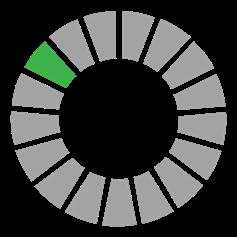

Phu Chong Na Yoi National Park in Ubon Ratchathani is offering new hope for biodiversity and community development. Led by Assistant Professor Natapot Warrit, Ph.D. from the Faculty of Science, this project focuses on studying the park’s insect life, especially pollinators, in an effort to transform the park into an eco-friendlier tourist spot.
Aligned with UN Sustainable Development Goal 15 - Life on Land, this project raises environmental awareness, conserves species, and boosts the local economy.
The project’s impact has been far-reaching. A new species of bee has been discovered; the new species is named “Bee Yard Amber Phu Chong” (phuchongensis). The word “phuchong-” comes from the name of Phu Chong Na Yoi National Park in Ubon Ratchathani Province, where this bee was first discovered. The “-ensis” is a Latin suffix meaning “originating in.”
Moreover, local communities have become active participants in conservation activities, reinvigorating endangered plant and animal species. Remarkably, sustainable ecotourism has emerged as a vital source of income, significantly reducing the need for rural-to-urban migration in search of employment, and bolstering family bonds.
Ultimately, Phu Chong Na Yoi National Park and its neighboring communities will reap the greatest rewards from this endeavor. This project, characterized by its holistic approach to development, exemplifies the harmonious coexistence of nature and humanity, and stands as an exemplary model of sustainable progress, promising a brighter and more harmonious future for both the environment and its inhabitants.
In collaboration with the Phu Fa Development Center under the Patronage of Her Royal Highness Princess Maha Chakri Sirindhorn, Chulalongkorn University’s Faculty of Communication Arts, led by Assistant Professor Munyat Akarachntachote, Ph.D., launched the R–radio network FM 102 MHz project. This initiative empowers children and youth in Nan Province’s Bo Kluea and Chaloem Phra Kiat Districts to learn, create radio programs, and contribute to local environmental conservation efforts.
Faculty members and students from the Department of Mass Communication played a vital role by designing training courses, hosting radio program production camps, and creating radio programs and short films. These activities have involved 124 students from primary school to high school, instilling in them a sense of responsibility for safeguarding the region’s natural resources and ecosystems.
This project significantly supports Sustainable Development Goal 15 (SDG 15) - Life on Land, by promoting environmental conservation and educating youth about the importance of preserving northern Thailand’s natural beauty. It aligns with SDG 15’s objectives of protecting terrestrial ecosystems, sustainable forest management, combating desertification, and halting biodiversity loss, making it a valuable contributor to achieving these global sustainability goals.
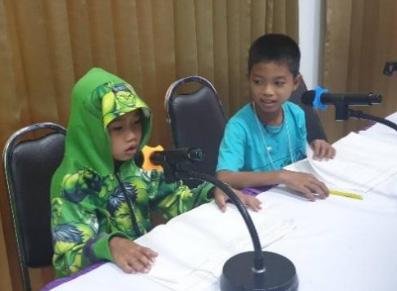

In Thailand, the pursuit of social justice has gained significant momentum over the past decade; however, the multifaceted nature of this concept remains a challenge due to varying interpretations and limited resources available in the Thai language. To address these issues, a practical and action-oriented approach has emerged. This initiative, funded by the Thai Health Promotion Foundation, recognizes the potency of Transformative Leadership as a driving force for effective social change.
The project, led by Sayamol Charoenratana, Ph.D., the Leader of the Human Security and Equity Research Unit, Social Research Institute, consists of two components:
• Evaluating existing national and international training programs to identify opportunities for improvement. The objective is to ensure that Thai programs can stand shoulder-to-shoulder with their global counterparts in leadership development.
• Developing contemporary training programs, including identifying target customer groups, and conducting various practical training exercises customized for these specific groups.
This initiative resonates profoundly with Sustainable Development Goal 16 (SDG 16) - Peace, Justice, and Strong Institutions. Furthermore, the objectives of utilizing social innovation outputs include:
• Enhancing Competitive Training Programs: This fosters excellence and market competitiveness, aligning with SDG 16’s call for accountable and inclusive institutions.
• Experimenting with Targeted Training: By experimenting with different training approaches, the project ensures that it caters to specific audience needs, contributing to more inclusive and just societies.
• Developing Sales Channels: This not only expands the reach of training programs but also aligns with SDG 16’s emphasis on accessible and responsive institutions.
• Exploring Business Strategies: The initiative explores sustainable business strategies, echoing SDG 16’s vision for strong, inclusive institutions.
• Evaluating Social Return: Lastly, by evaluating the social return on investment, the project measures its impact on societal fairness and justice, a fundamental aspect of SDG 16.
This initiative not only responds to the challenges of social justice in Thailand but also actively contributes to achieving SDG 16. It empowers transformative leaders, reduces disparities, and fosters strong, inclusive institutions, paving the way for a more just and equitable society.
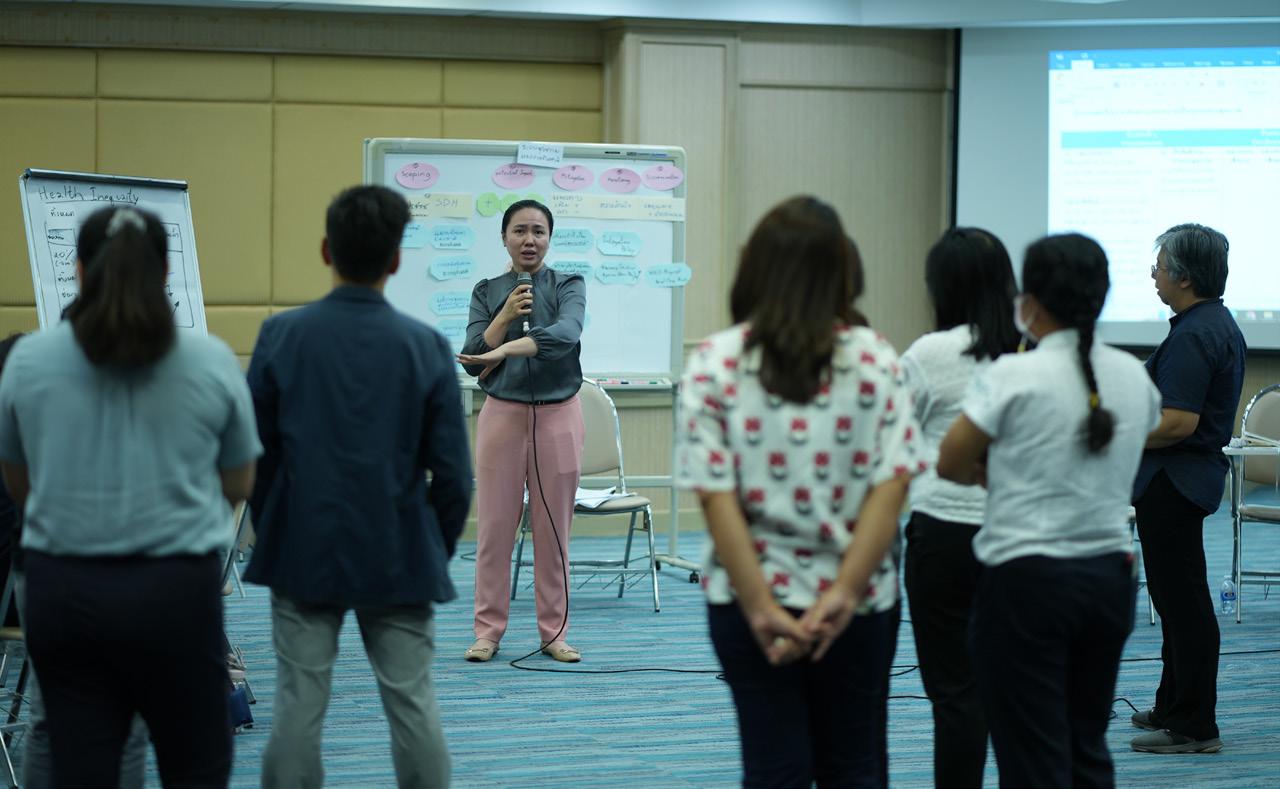

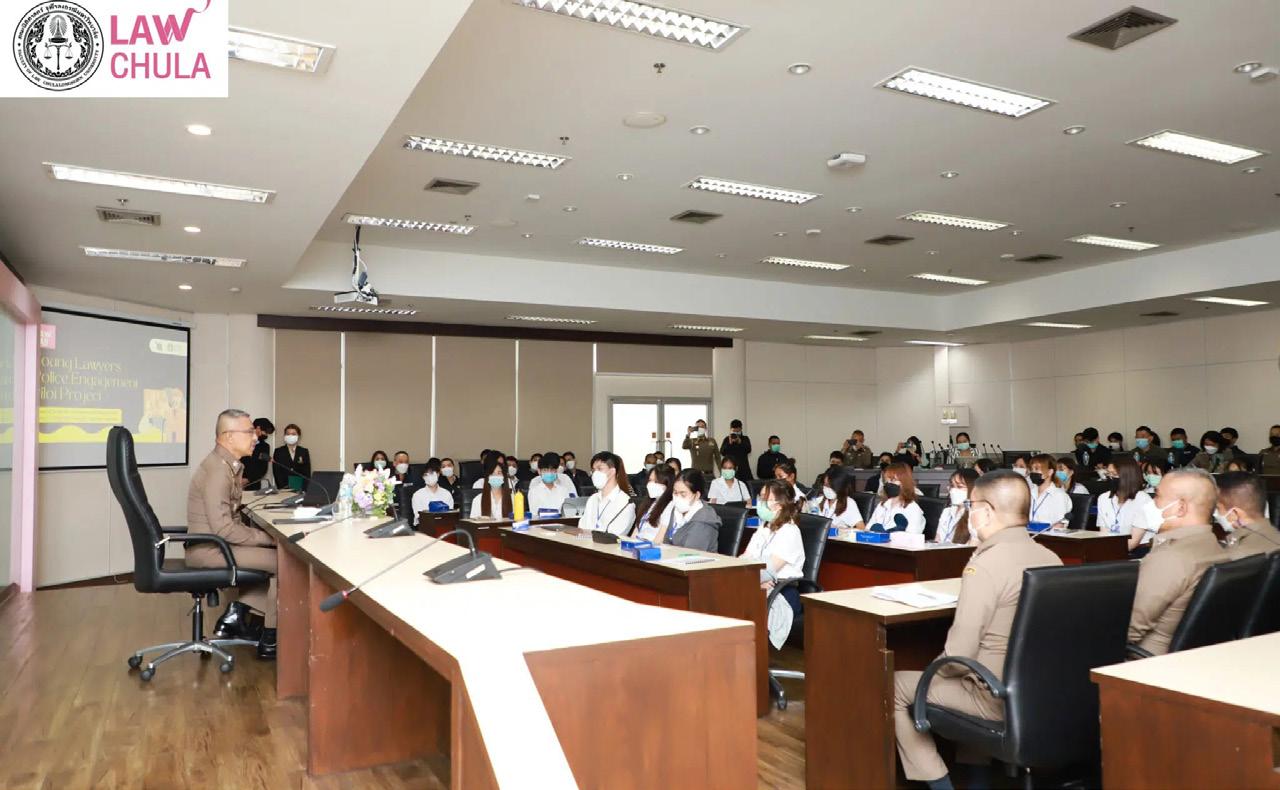
In alignment with UN Sustainable Development Goal 16, the Royal Thai Police and Chulalongkorn University’s Faculty of Law, under the leadership of Assistant Professor Pareena Srivanit, Ph.D., the Dean of the Faculty, have launched the “Special LawLAB: Young Lawyers – Police Engagement Pilot Project.” Having commenced on August 30, 2022, this groundbreaking initiative bridges the gap between law students and contemporary police investigations in the era of 5G technology.
Twenty-five Chulalongkorn University law students, ranging from the 2nd to 4th year, were meticulously selected for this self-learning Young Lawyers – Police Engagement Pilot Project, an endeavor that facilitates academic and practical collaborations with police officers across diverse departments, fostering a distinctive learning experience.
The project’s alignment with the Faculty of Law’s LawLAB offers students invaluable insights into investigative processes and equips aspiring lawyers with practical, real-world understanding, enabling them to contribute significantly to legal development. Simultaneously, it offers law enforcement officers fresh perspectives from a diverse student group.
Crucially, this pilot project enriches students’ practical skills, preparing them to be forward-thinking lawyers who integrate real-world experiences into their practice. In consonance with Sustainable Development Goals 16 and 17, it advances a robust judicial system and collaborative partnerships, particularly with youth groups.
This initiative symbolizes a progressive collaboration between law enforcement and youth, akin to England’s Youth Commission Model on Police and Crime. It recognizes the abilities of young individuals, dismantles stereotypes, and builds a more inclusive legal framework. In a rapidly changing society, such partnerships empower future legal professionals and enhance law enforcement’s understanding of youth perspectives, fostering a more inclusive and forward-looking legal ecosystem.
In a transformative effort led by Assistant Professor Thanee Chaiwat, Ph.D. from Chulalongkorn University’s Faculty of Economics, the “People-Centric Justice” project aimed to narrow the divide between the public and the legal system in Thailand. Running from 2022 to 2023 with support from the Thailand Institute of Justice, the project sought to make the legal process more accessible and efficient, fostering trust in the country’s legal system.
This initiative focused on understanding the legal challenges faced by members of vulnerable groups, and aligning the justice system with their needs. It consisted of two key components: examining the legal interactions of these groups, and developing tailored mechanisms for efficient and comprehensive access to justice.
Significantly, the Thailand Institute of Justice was a close collaborator in this initiative, thereby amplifying its impact. Notably, this project was crafted as a model for legal systems within the ASEAN (Association of Southeast Asian Nations), and was recently showcased at the United Nations conference in Vienna on May 26, 2023, during a session focused on “Toward People-Centered Justice: Advancing Collaboration of Data in Southeast Asia.” This presentation served as a pioneering example of People-Centric Justice in action.
In essence, this project responds to UN Sustainable Development Goal 16 by promoting a legal system that works for everyone, particularly vulnerable communities, thus advancing fairness and accessibility in justice.
The College of Population Studies, in collaboration with the Ministry of Social Development and Human Security, as well as other government and non-profit organizations, and network partners, held an online consultation and an onsite meeting at the BANGKOK MIDTOWN Hotel on Tuesday, June 14, 2022 with the goal of presenting information, exchanging data, and sharing opinions and recommendations on the topic of older people.
The team was led by Associate Professor Ruttiya Bhula-Or, Ph.D., Deputy Dean of College of Population Studies, Dr. Nopphawan Photphisutthiphong, Dr. Chadatan Osatis, Lecturer of College of Population Studies, Chulalongkorn University, and other qualified experts from agencies like the Department of Older Persons, Ministry of Social Development and Human Security, Office of the National Economics and Social Development Council, Ministry of Interior, Ministry of Justice, Ministry of Labour, Ministry of Education, Ministry of Commerce, Office of the Permanent Secretary, Ministry of Justice, Ministry of Transport, Ministry of Digital Economy and Society, Ministry of Public Health, Department of Women’s Affairs and Family Development, Department of Local Administration, Ministry of Interior, Department of International Trade Promotion, and the Ministry of Commerce. In addition, representatives from the Foundation for Woman (FFW), Foundation For Older Persons’ Development (FOPDEV), National Housing Authority, ThaiHealth Organization, Kenan Foundation Asia were also in attendance.
This discussion aimed to facilitate a review and appraisal of the implementation of the Madrid International Plan of Action on Ageing (MIPAA). The voluntary national survey and report on MIPAA implementation are essential to the Asia-Pacific Regional Review and Appraisal in 2022. This report will be a part of the global review and appraisal in 2023 and will be included in the 2023 report for the United Nations Decade of Healthy Aging, 2021-2030.



The Knowledge Hub for Regional Anti-corruption and Good Governance Collaboration (KRAC), under the leadership of Assistant Professor Torplus Yomnak, Ph.D., and hosted by the Faculty of Economics at Chulalongkorn University, is dedicated to becoming a globally recognized center of excellence in anti-corruption and ethical governance. In collaboration with partners like the United Nations Office on Drugs and Crime (UNODC), the National Research Council of Thailand, the Office of the National Anti-Corruption Commission, HAND Social Enterprise, and the Faculty of Law, Chulalongkorn University, KRAC aims to create a robust ecosystem for anti-corruption efforts.
The establishment of KRAC has already yielded significant outcomes. It has served as a platform for showcasing academic research, articles, courses, projects, and innovations related to various anti-corruption initiatives in the country. KRAC has also successfully nurtured a network of cooperation at the regional level, emphasizing fairness and integrity in governance practices. Furthermore, the center has effectively disseminated knowledge, technology, and innovations related to anti-corruption throughout the ASEAN region, attracting a significant number of Thai and international researchers, experts, instructors, and students who engage in collaborative work and research studies at the center.
The center’s future focus includes comprehensive analysis and assessment of its operations, leading to the creation of academic and practical knowledge in anti-corruption. It aims to align policies with the evolving situation in Thailand, and to work efficiently with national and regional networks to advance anti-corruption initiatives. In essence, KRAC seeks to contribute substantially to the effective and sustainable transformation of anti-corruption efforts in the country.
The work of KRAC directly aligns with Sustainable Development Goal 16 (SDG 16)Peace, Justice, and Strong Institutions. It promotes justice through its focus on combating corruption, fosters strong and accountable institutions, and contributes to creating a fair and equitable society in Thailand. KRAC’s efforts to establish a regional network for ethical governance further reinforce its alignment with SDG 16’s objectives related to peace, justice, and strong institutions.
Led by Pat Niyomsilp, Ph.D., and hosted by the Faculty of Law at Chulalongkorn University, LawLab was established to provide students and the public with insights into legal issues and legal operations related to business, with a particular focus on laws crucial to Thailand’s future economy and society. Within this initiative, the “LawLAB for Human Rights” program was launched in 2021. It aimed to engage law students in defending human rights and civil liberties in Thailand, particularly in cases that required compliance with the International Covenant on Civil and Political Rights (ICCPR).
This program not only educated students but also raised awareness among the general public about the significance of safeguarding human rights and civic freedoms in Thailand. Further, it addressed the challenges and obstacles faced by human rights lawyers, providing students with a well-rounded understanding of the legal landscape. Moreover, students gained insights into the Sustainable Development Goals (SDGs), particularly Goal 16, which advocates for peaceful, just, and inclusive societies, access to justice, and effective, accountable, and inclusive institutions. The training included observation of public demonstrations, documentation of human rights cases and political cases, and practical legal skills, all in collaboration with organizations like Thai Lawyers for Human Rights (TLHR), Human Rights Lawyers Association, EnLawThai Foundation (EnLAW), iLaw, and Zen-Dai.
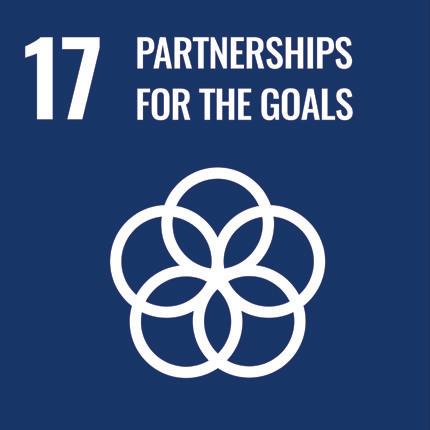
Chula Neuron, operated by Chulalongkorn University General Education Center, is a digital knowledge repository designed to support high-quality online education and activities for a diverse audience. It encompasses general education subjects and CUVIP (Chulalongkorn University Virtual Interactive Platform) activities, making learning accessible to students, staff, alumni, high school students, and the general public. Moreover, it enables self-directed and lifelong learning through diverse and flexible online learning methods. Additionally, Chula Neuron features a personal credit bank system that aggregates learning data to encourage continuous and lifelong learning.
The Chula Neuron project strongly aligns with Sustainable Development Goal 17 (SDG 17) - Partnerships for the Goals, by fostering various collaboration and partnerships:
Digital Development Fund Support: The project received support from the Digital Economy and Society Development Fund in the fiscal year 2022, highlighting the collaboration between public and private sectors to advance digital literacy and human resources in the country.
Collaboration with External Organizations: Chula Neuron has established partnerships with various external organizations, such as True Digital Academy, the National Health Security Office (NHSO), and the Stock Exchange of Thailand (SET), aimed at expanding the reach and impact of its educational programs.
In terms of knowledge and skills, Chula Neuron offers a diverse range of online courses that cater to the needs of individuals and society. These courses cover subjects such as GenEd (General Education), CUVIP, Chula MOOC, CU Engineering, general digital skills, and introduction to the digital age. Currently, Chula Neuron hosts approximately 160 online courses, addressing the learning needs of a wide audience.
Apart from being a hub for digital learning, Chula Neuron is also a proof to the power of partnerships and collaborations in advancing education and digital literacy. By providing accessible and high-quality education to a broad spectrum of learners, it contributes significantly to SDG 17’s vision of enhancing partnerships to achieve the Sustainable Development Goals.
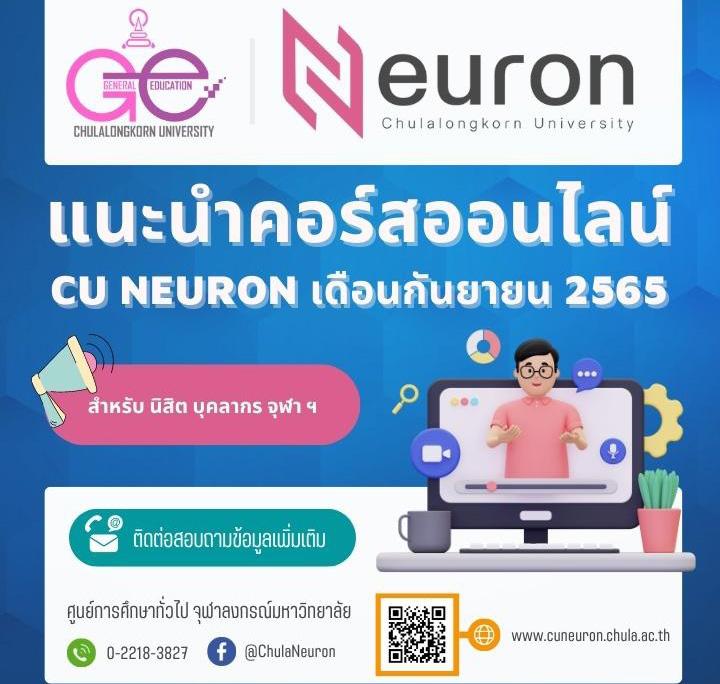


The Chula Volunteer and Cultural Exchange Activities Hub, led by Ms.Arunya Pakdee, the Director of Division of Student Activities, Office of Student Affairs, organizes activities year-round with the goal of fostering cross-cultural learning. Its mission is to facilitate the exchange of knowledge about both Thai and international cultures, drawing from the wealth of Thai wisdom to promote sustainable living and harmonious societies in the present and future. Additionally, it aims to cultivate positive relationships among students from Chulalongkorn University and partner institutions within its network. This initiative strongly aligns with the Sustainable Development Goals of the United Nations, specifically Goal 17 (SDG 17) - Partnerships for the Goals.
This program empowers participants to enhance their academic skills and broaden their understanding of volunteer activities and cultures, encompassing both Thai and international perspectives. These efforts are taking place within the context of our rapidly changing global landscape. Core activities include hands-on training, exchange programs, and discussions aimed at addressing emerging global issues. Moreover, the program offers opportunities for international travel to facilitate experiential learning.
The project comprises two key components: activity enhancement, and hosting visiting universities. The central focus of these initiatives is to promote global success for students and staff, encourage active global engagement, address pressing global challenges, and create an international environment at both the university and national levels. Collaborative partnerships with the Office of International Affairs and the Global Network are essential for achieving these objectives.
The Office of Student Affairs plays a vital role in overseeing and coordinating universitystudent interactions, with a specific emphasis on international students. Regarding activities and operations, students take the lead within the Chula International Volunteer Hub project, which has been in operation since 2019. This program has experienced remarkable growth, with participation from over 80 students spanning all faculties at Chulalongkorn University. These students actively engage in various activities, with 60% currently participating, 30% in preparation for engagement, and 10% having traveled for international activities. All participants have embraced these activities to expand their opportunities for international engagement.
In conclusion, the Chula Volunteer and Cultural Exchange Activities Hub exemplifies the principles of SDG 17 by fostering collaboration and partnerships among students and universities, contributing to a more inclusive and sustainable world.
In response to evolving educational paradigms, Chulalongkorn University introduced the Chula The Master Program, redefining the alumni-university relationship. Departing from traditional alumni engagement, this initiative envisions a dynamic partnership, tapping into the wealth of alumni knowledge.
Managed by the Development Center and Alumni Relations Center, it aims to encourage alumni to co-create educational content, and offers inclusive lifelong learning to all, regardless of background. With digital accessibility, this project provides convenient registration and resource access.
Aligned with UN Sustainable Development Goal 17 - Partnerships for the Goals, this program fosters knowledge exchange and support, and creates inclusive, sustainable partnerships, benefiting society. Chula The Master Program is a visionary approach to alumni engagement, exemplifying how partnerships drive broader social and educational goals, and it provides a model for universities to empower alumni effectively.

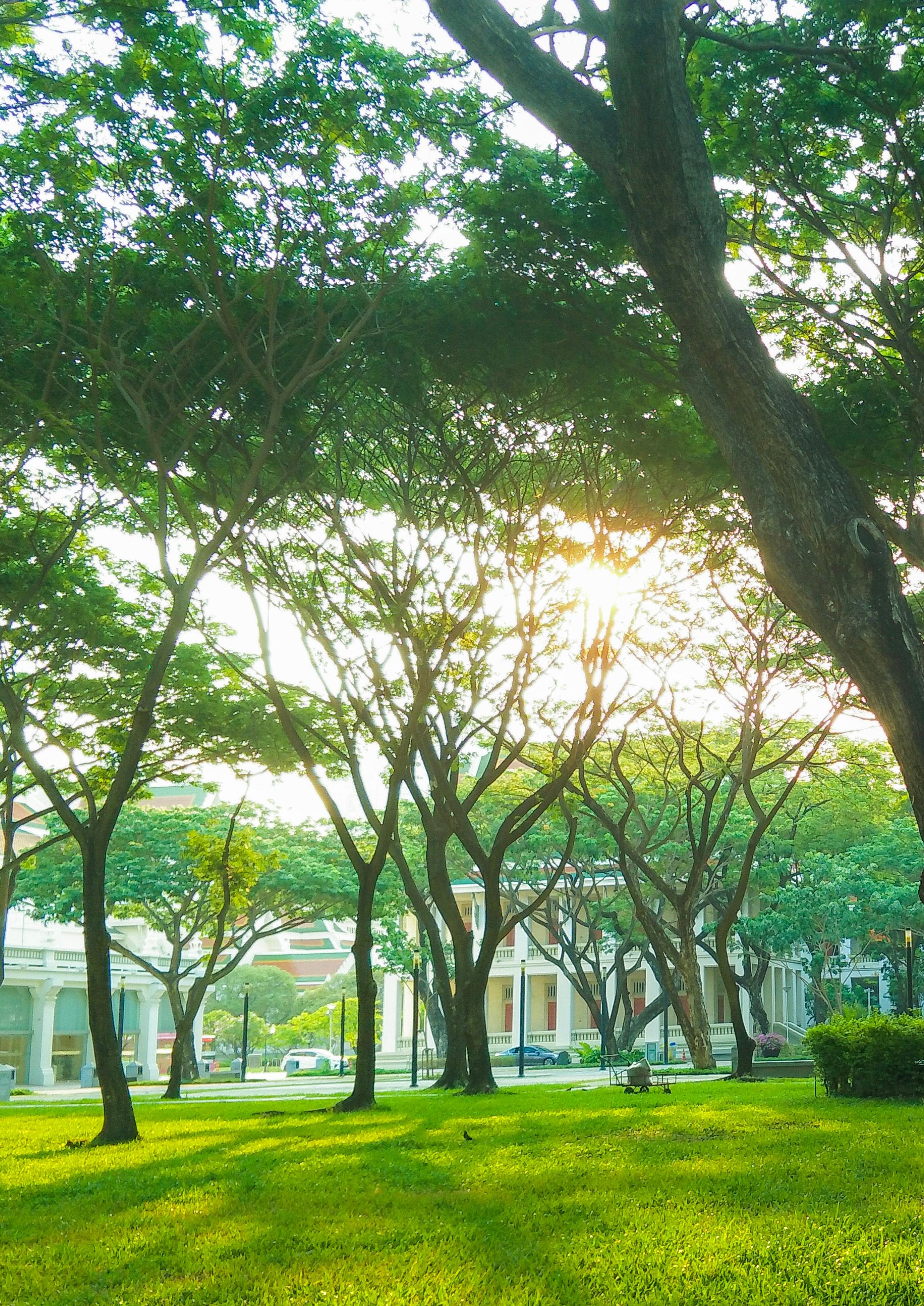
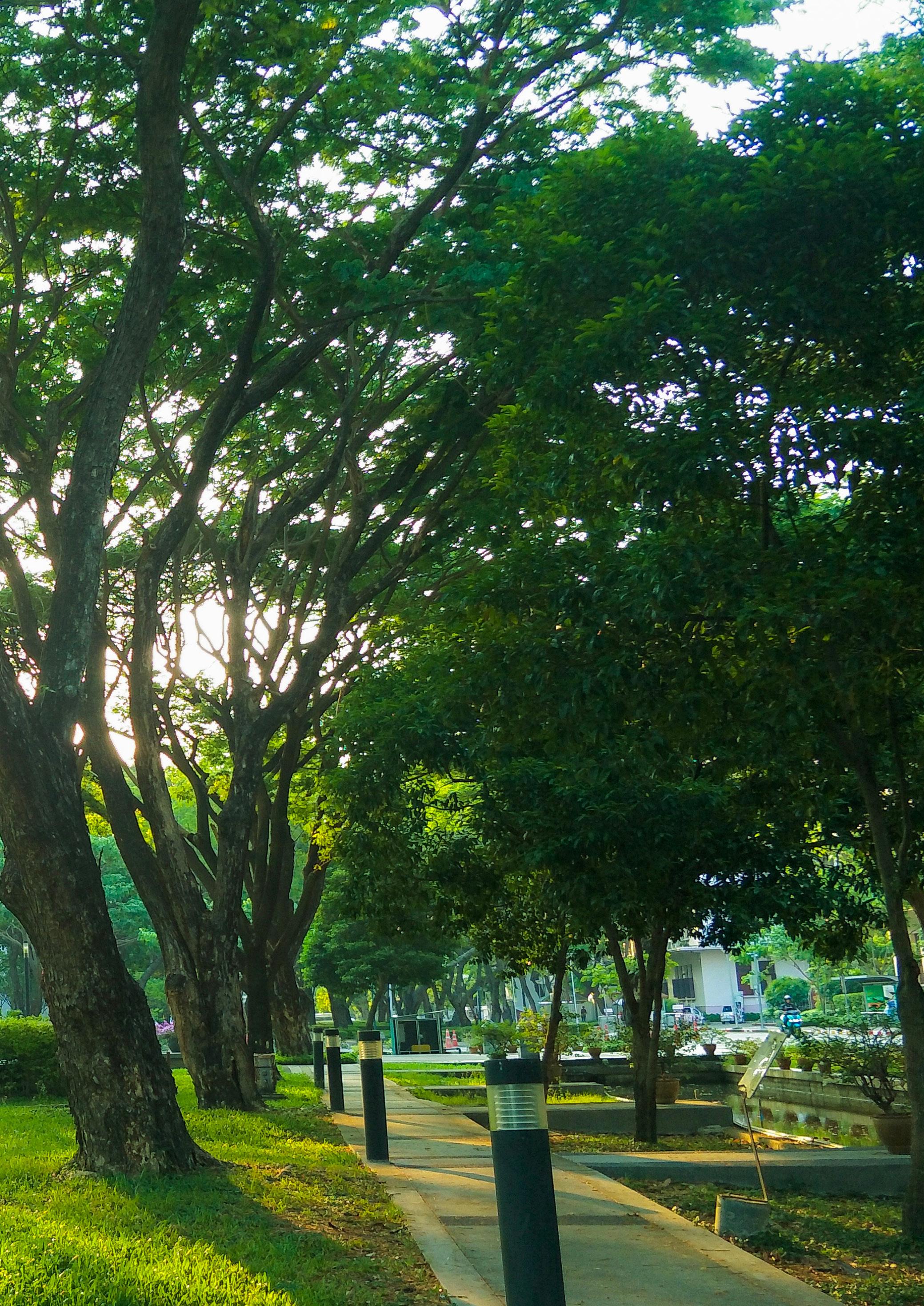
Advisors:
Professor Bundhit Eua-arporn, Ph.D.
Professor Narin Hiransuthikul, M.D., M.P.H., Ph.D.
Editor-in-Chief:
Assistant Professor Vorapat Inkarojrit, Ph.D.
With Support on Content & Photos from:
All Academic and Research Units
Chief Transformation and Strategic Office
Office of Academic Affairs
Office of Art and Culture
Office of Human Resources Management
Office of International Affairs and Global Network
Office of Physical Resources Management
Office of Research Affairs
Office of Students Affairs
Office of Planning and Budgeting
Office of Property Management
Office of Fiscal Management, Accounts and Supplies
Office of Information Technology
Chulalongkorn University Communication Center
Center of Learning for the Region
General Education Center
Chulalongkorn University Health Service Center
CU Innovation Hub
Chulalongkorn University Alumni Relations
Learning Innovation Center
Center of Law and Legal Affairs
University Risk Management Center
Kanyasorn Tansubhapol
Editing & Proofreading Services: Language Institute, Chulalongkorn University
Neighbour Media Co., Ltd.
Layout & Design:
Neighbour Media Co., Ltd.
Vorapat Inkarojrit
Chulalongkorn University Sustainability Report 2022-2023. -Bangkok : Chulalongkorn University, 2023. 68 p.
1. Chulalongkorn University.
2. University and colleges -- Thailand. I. Title. 378.593
ISBN 978-616-407-899-4

Version 03, Feb 05,2024